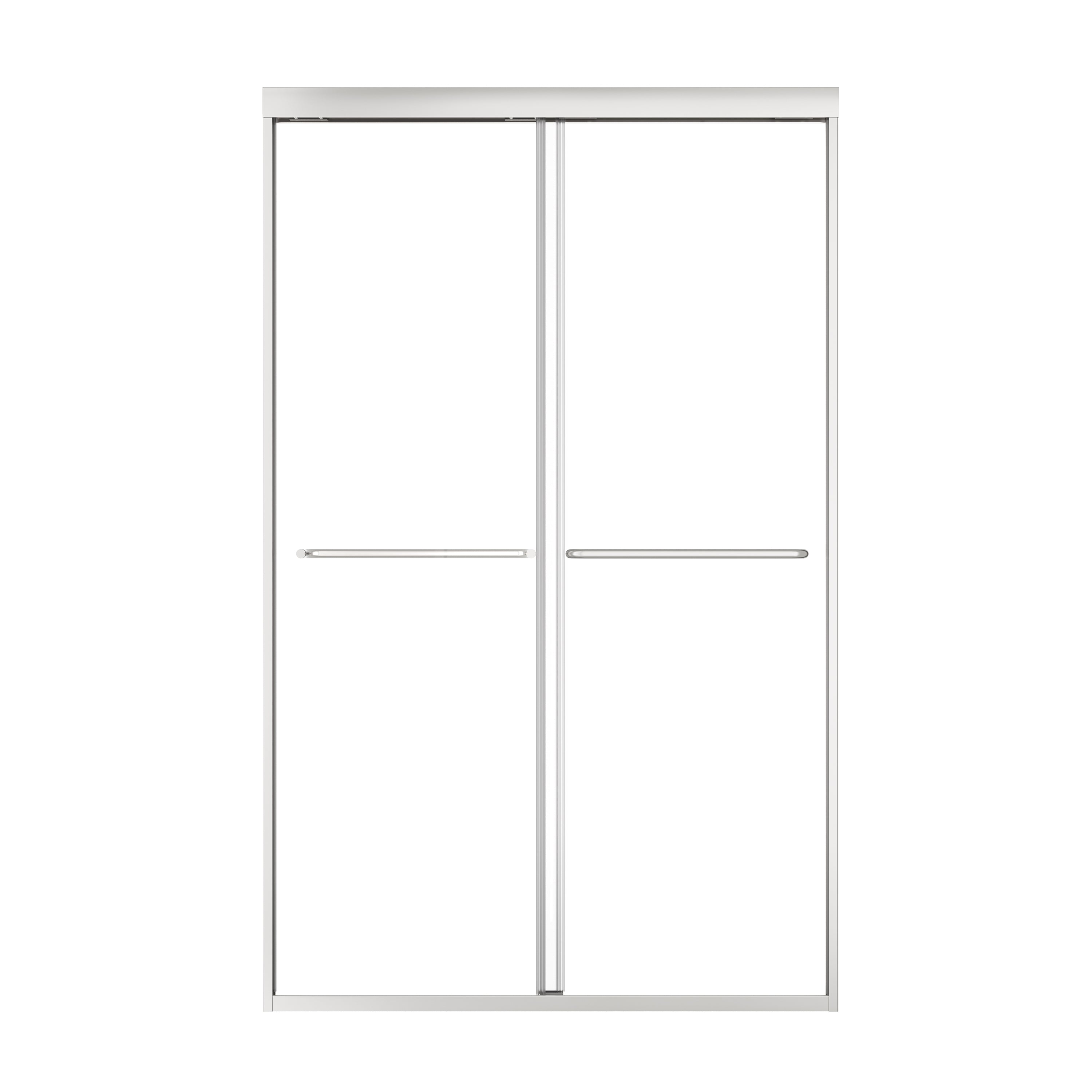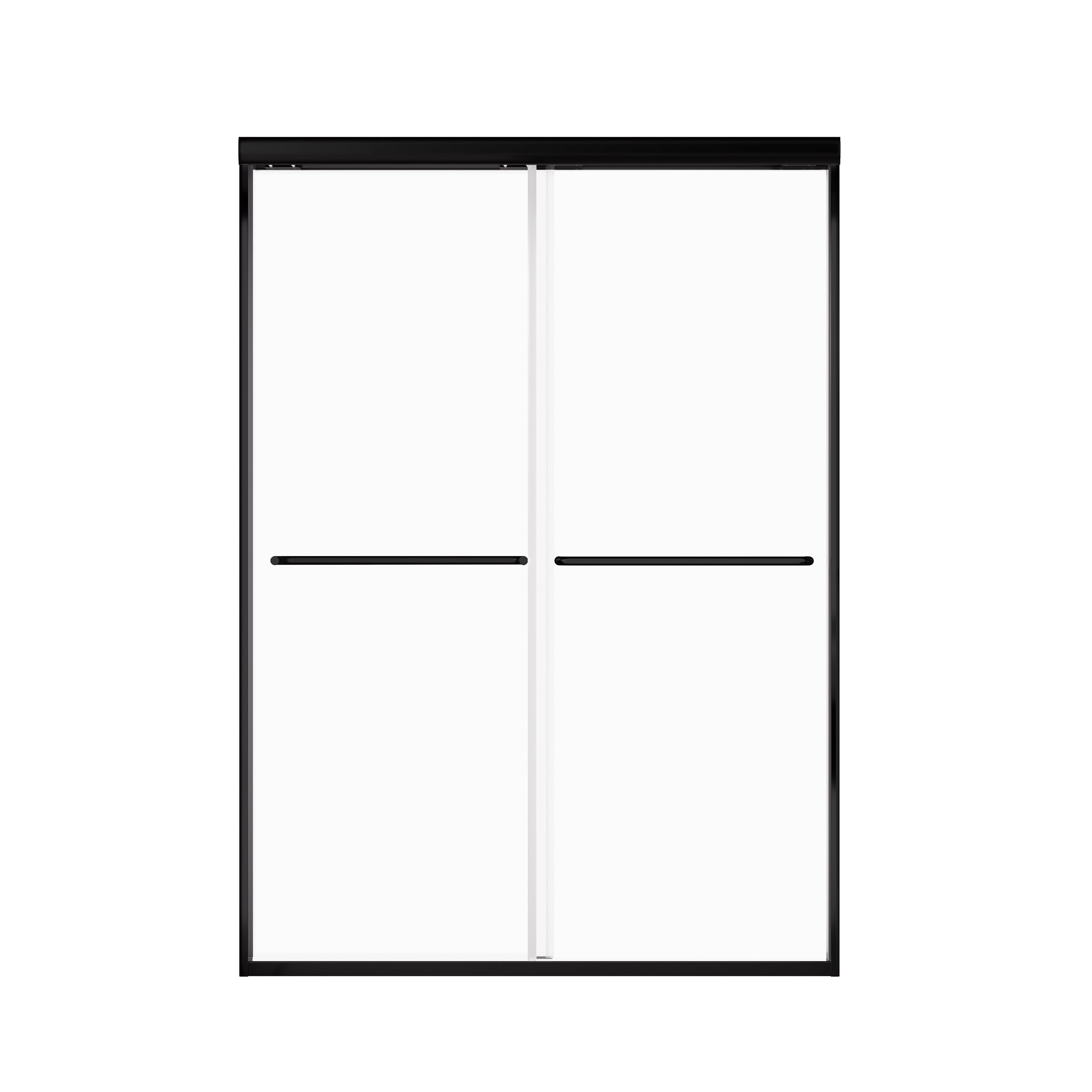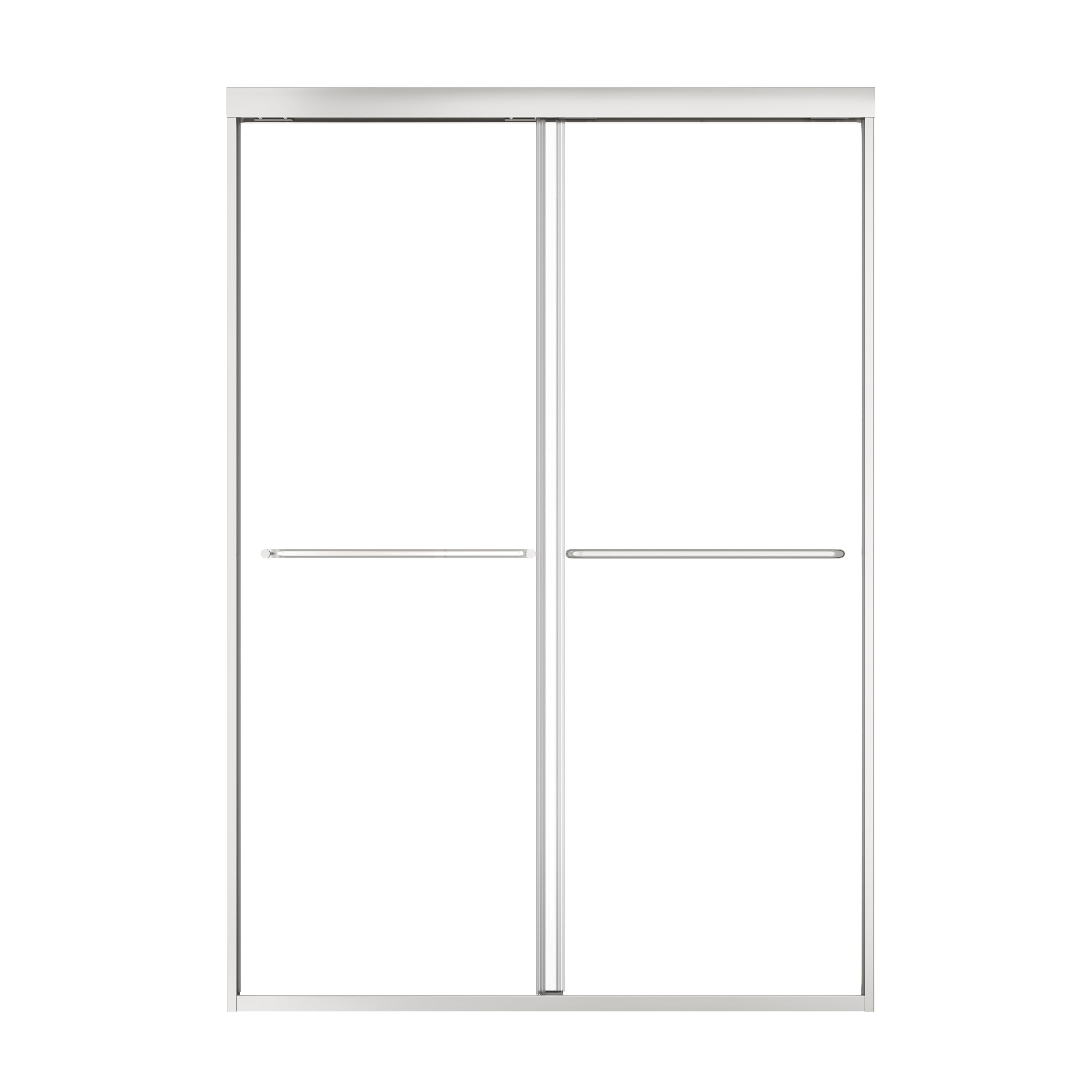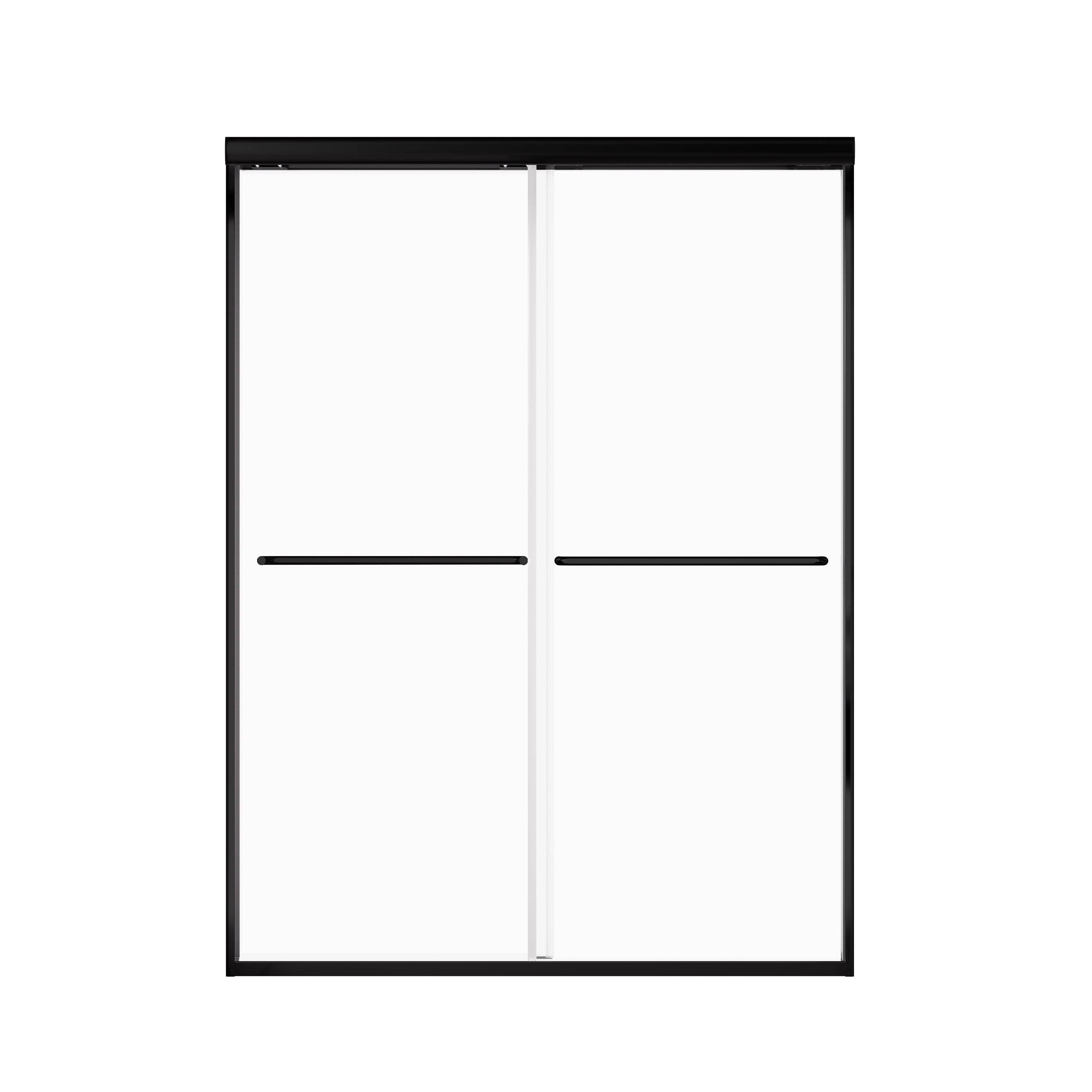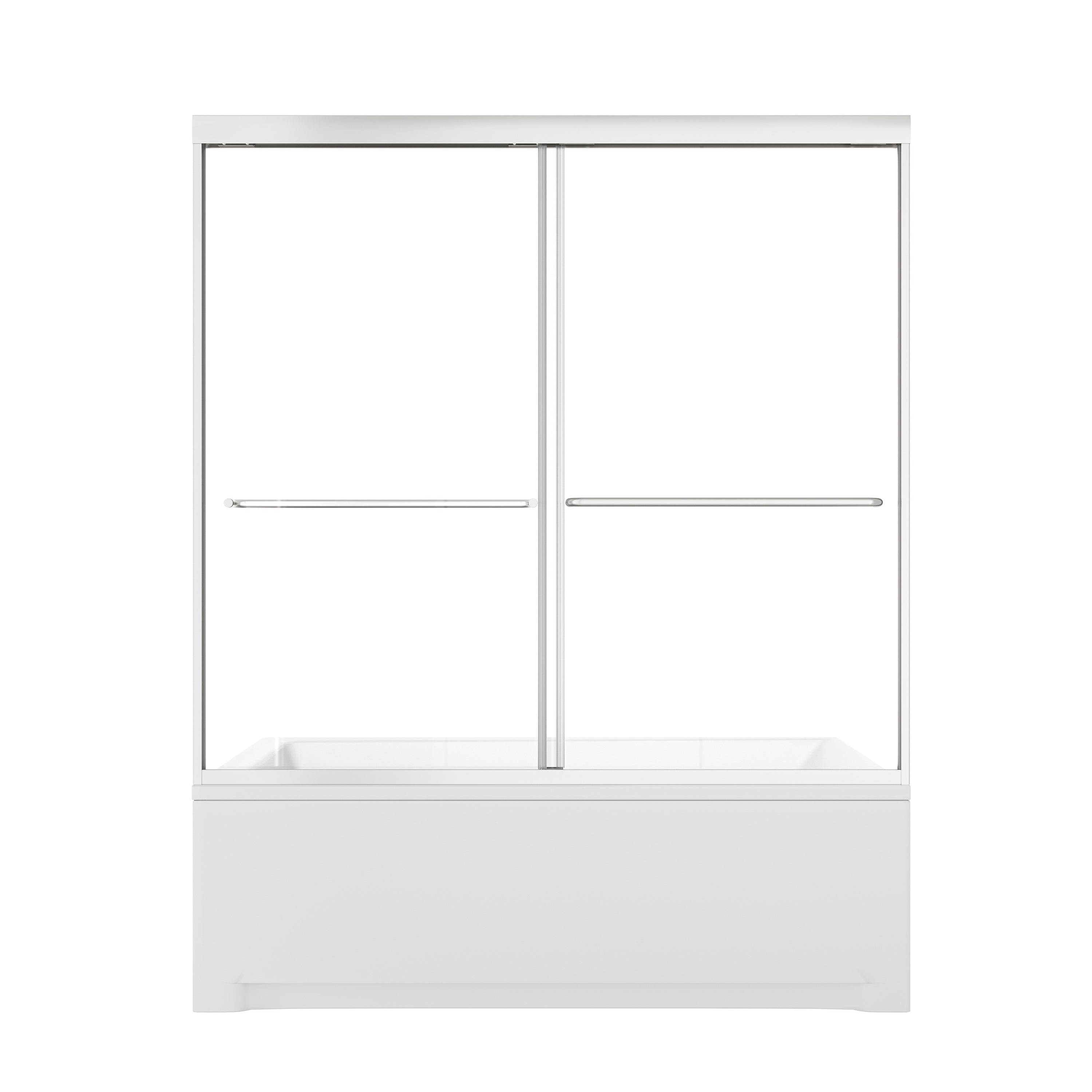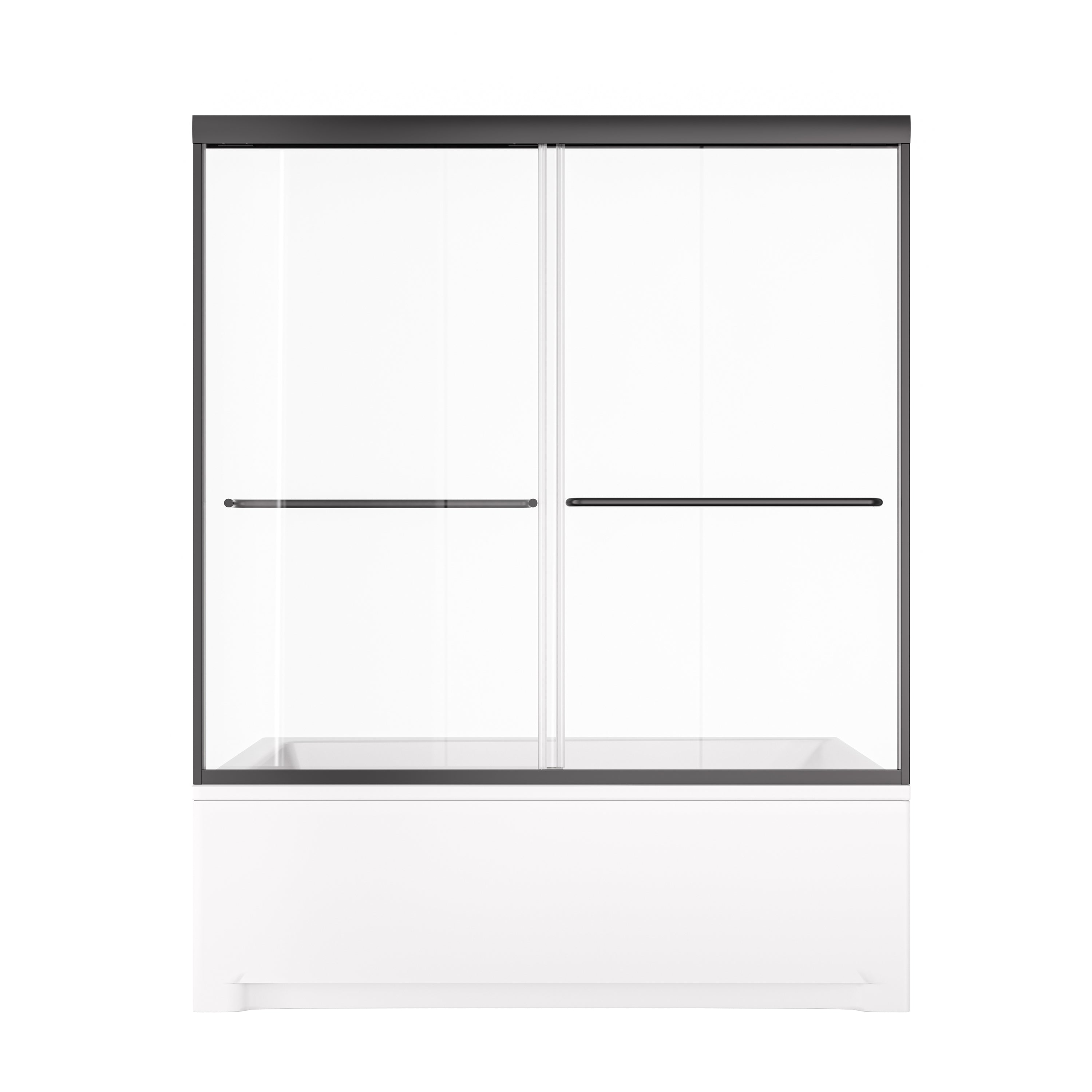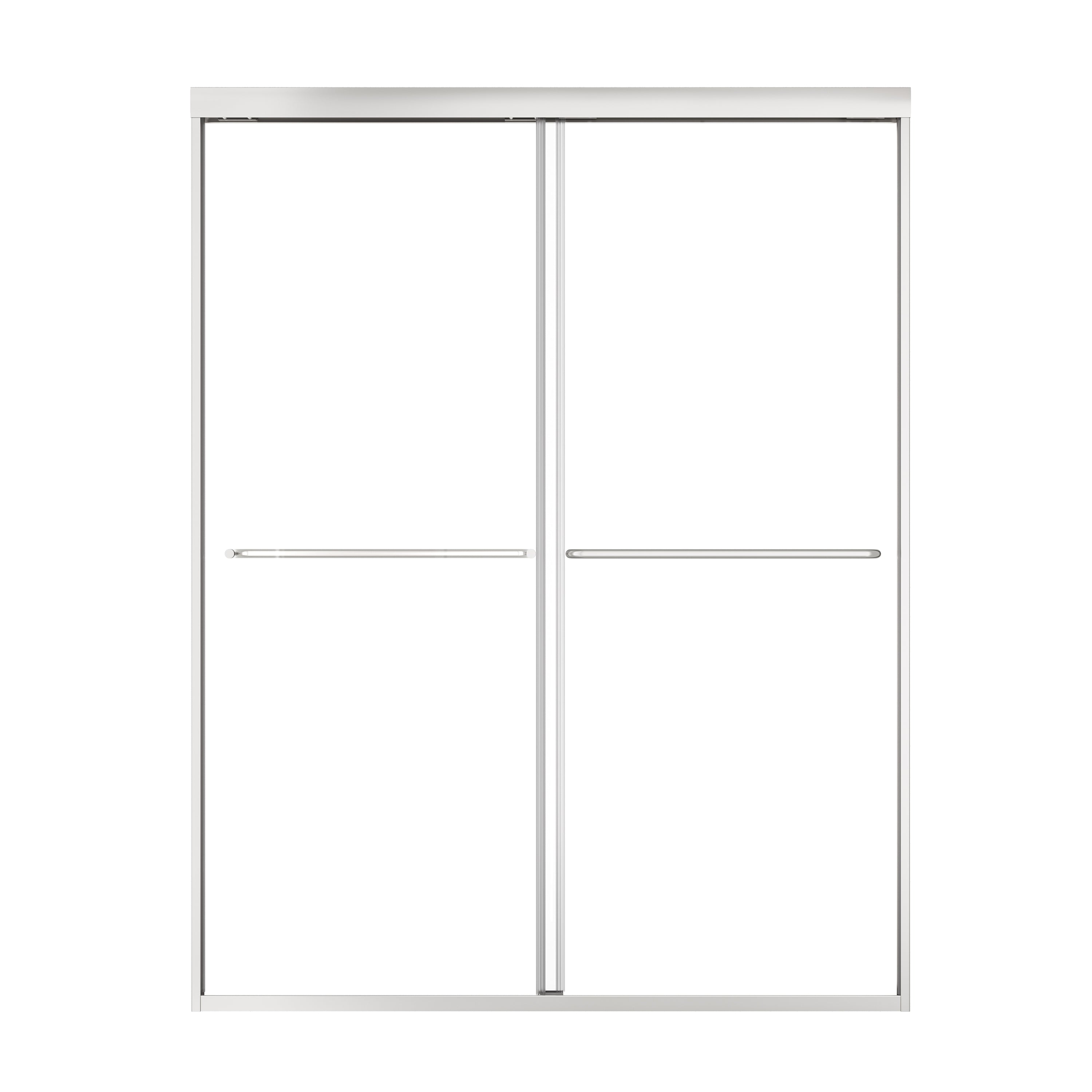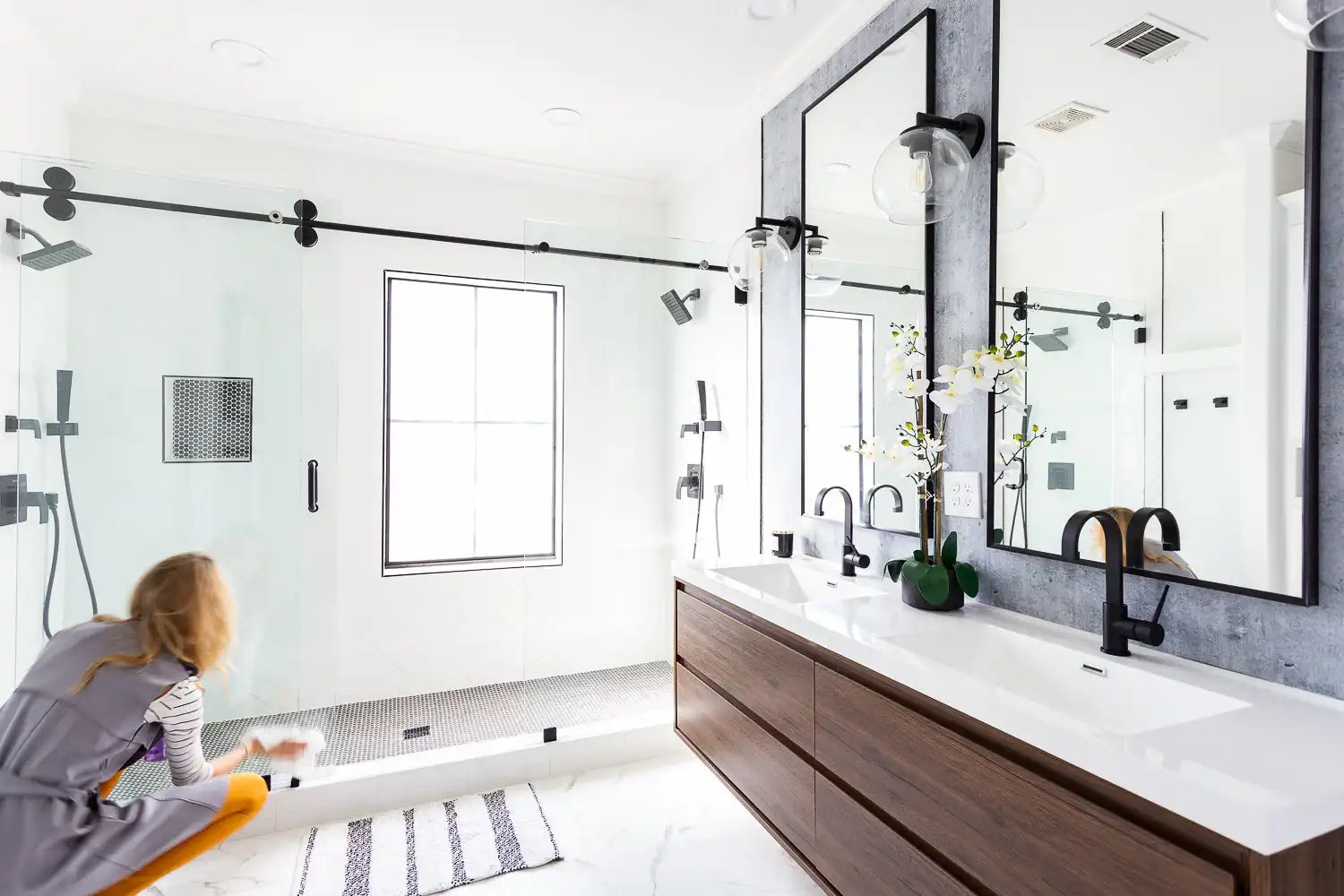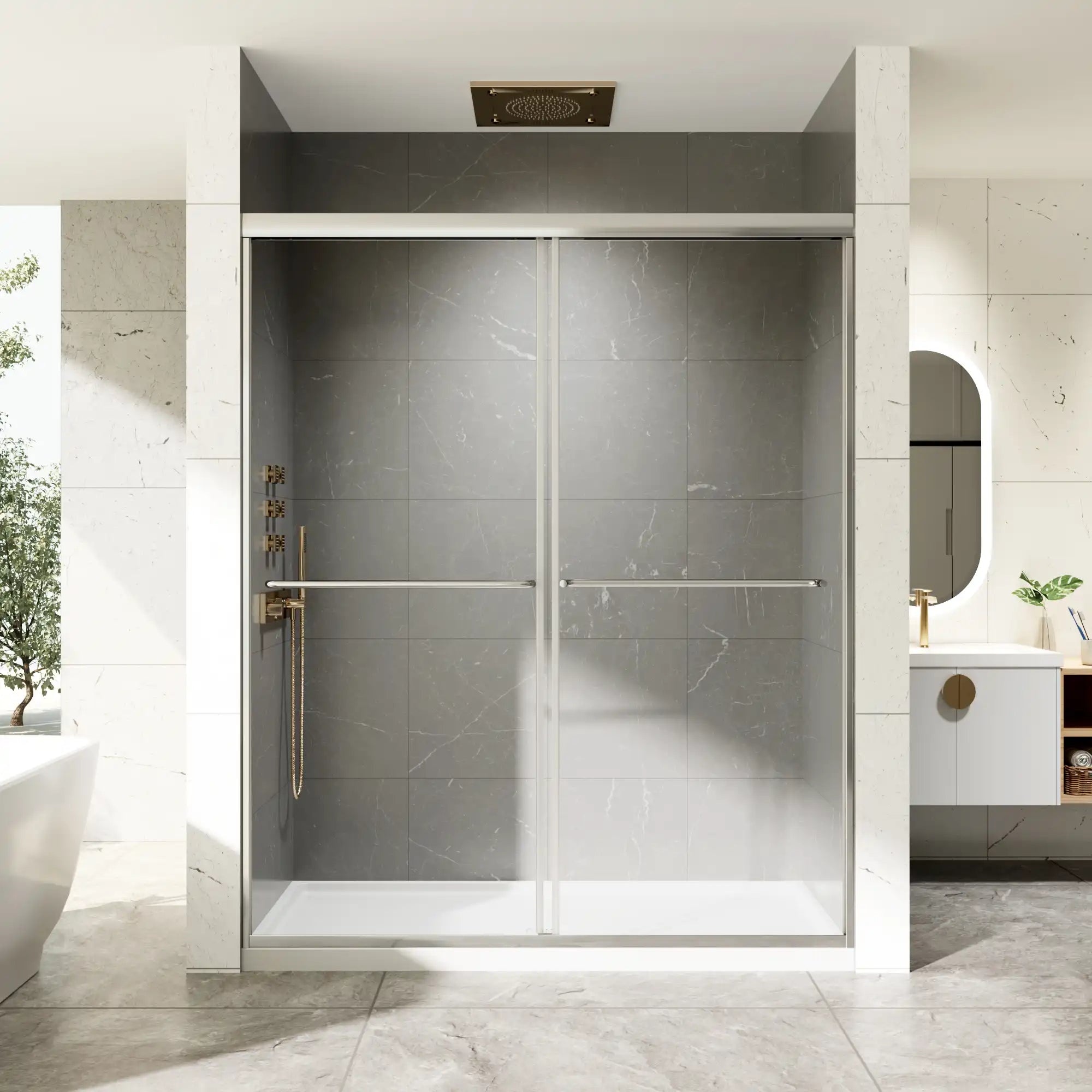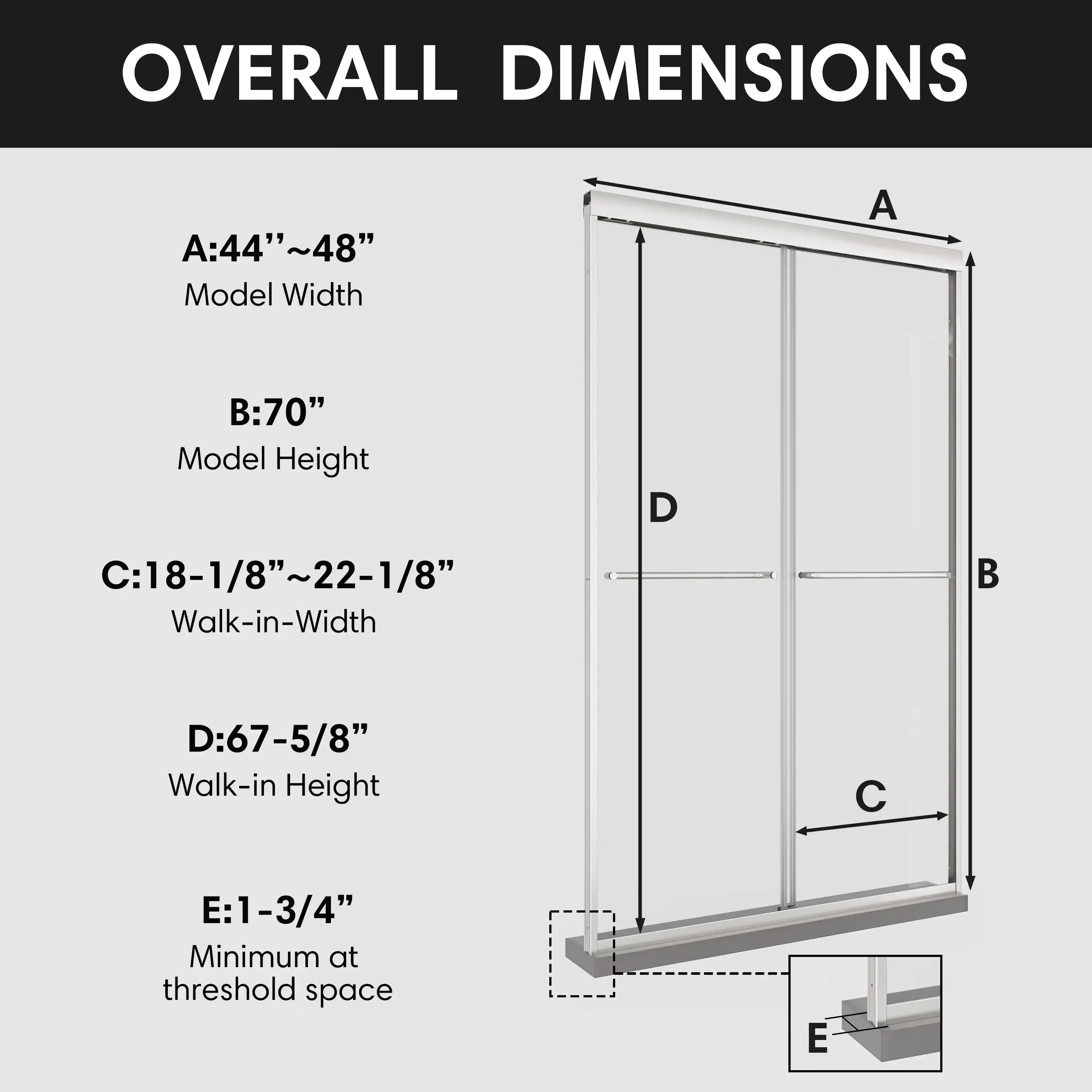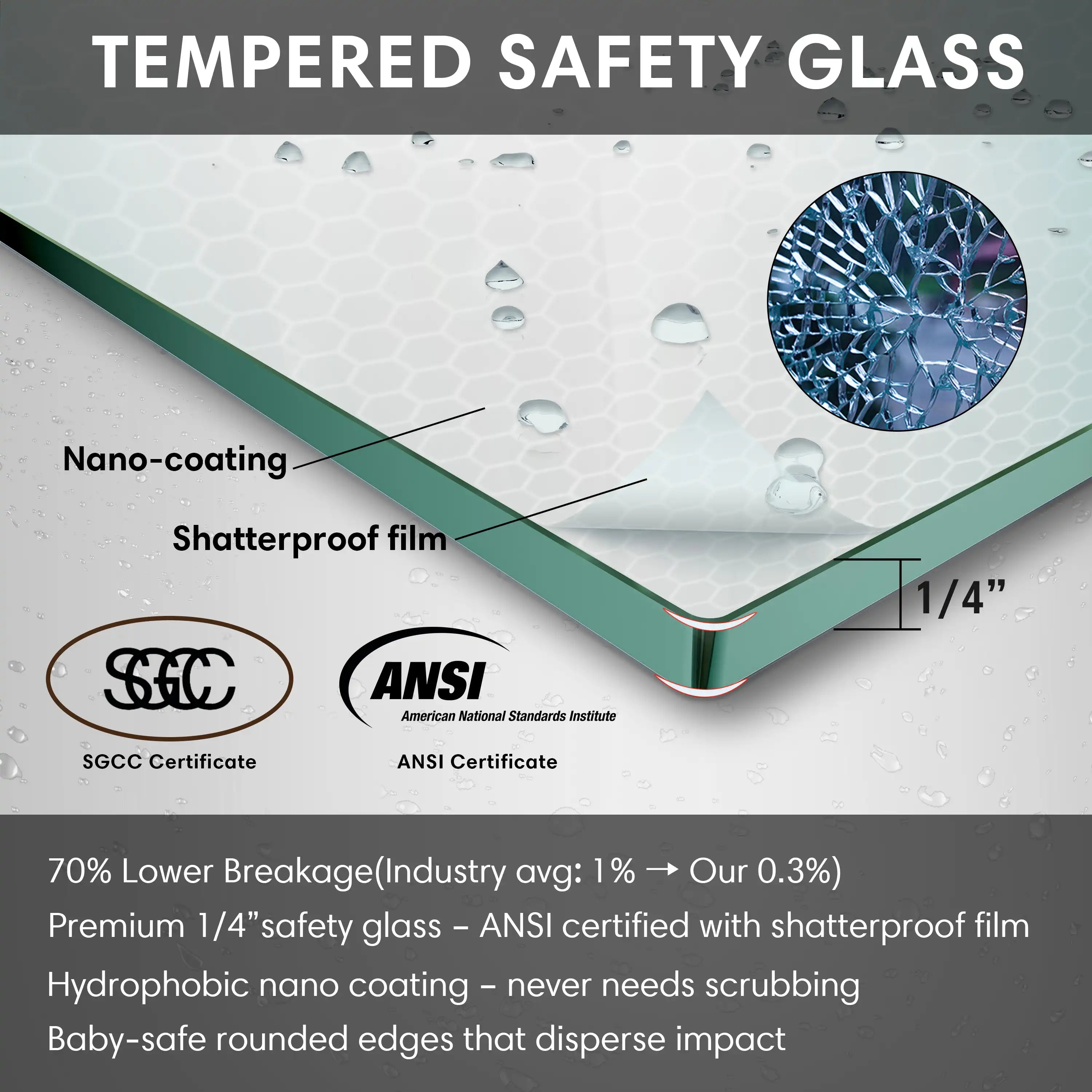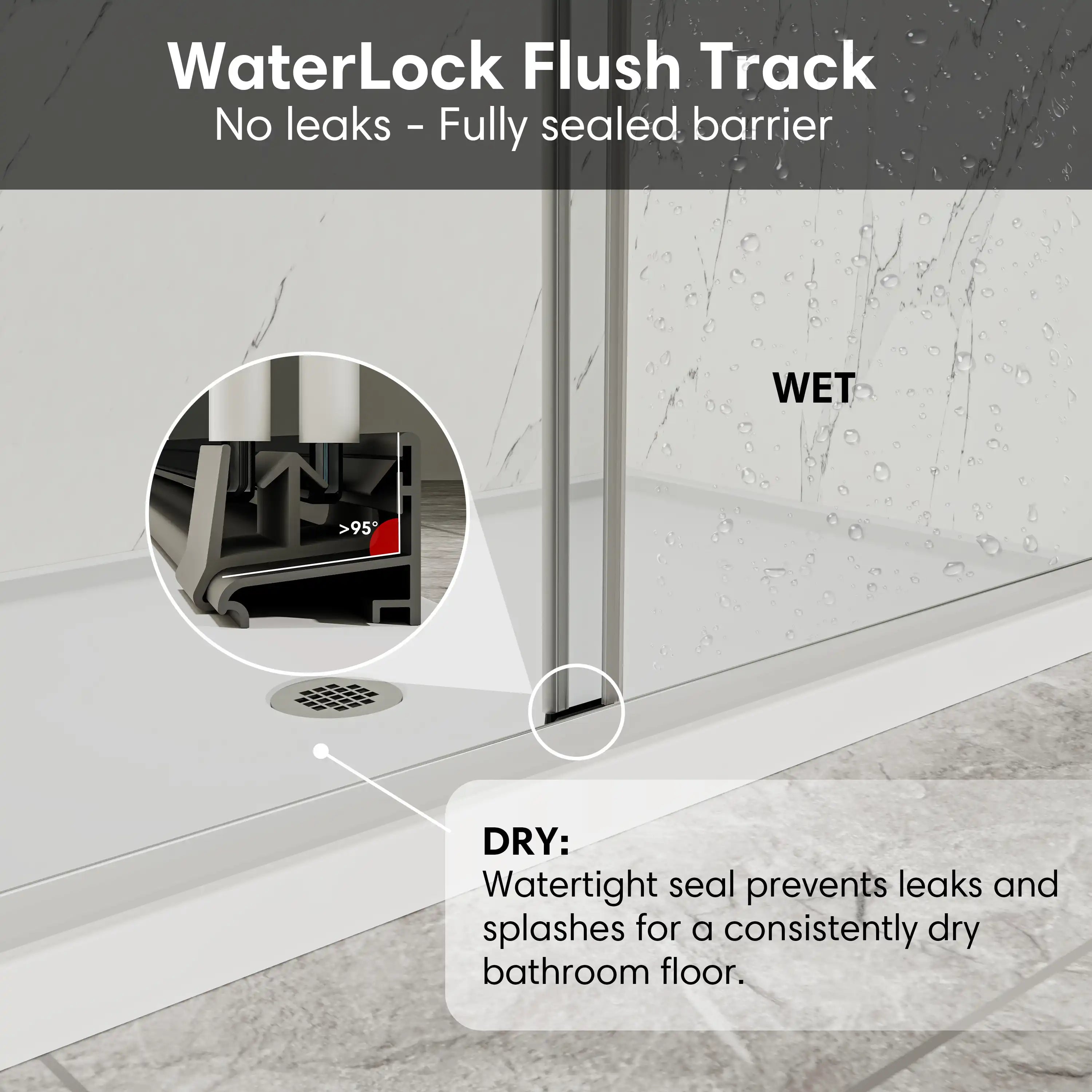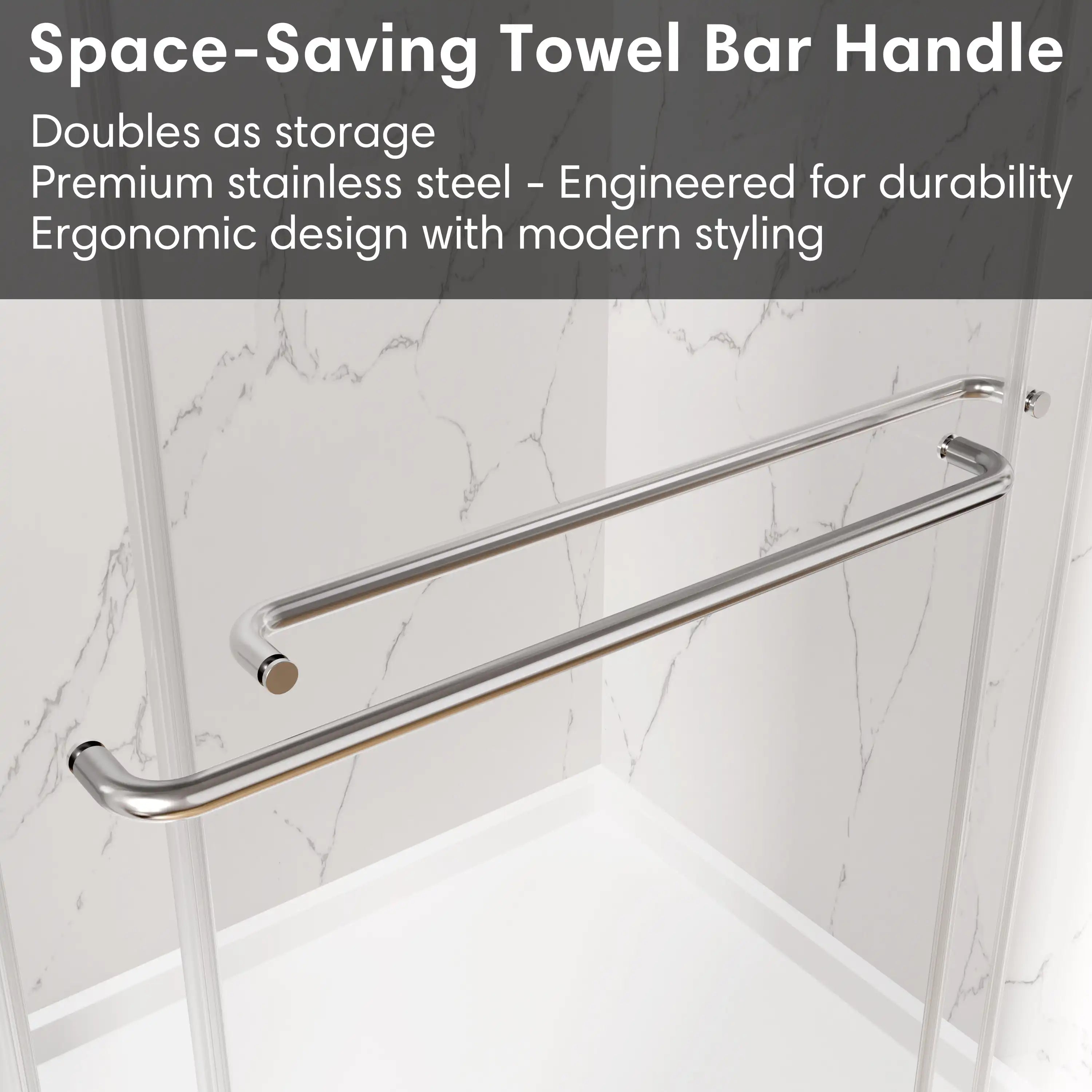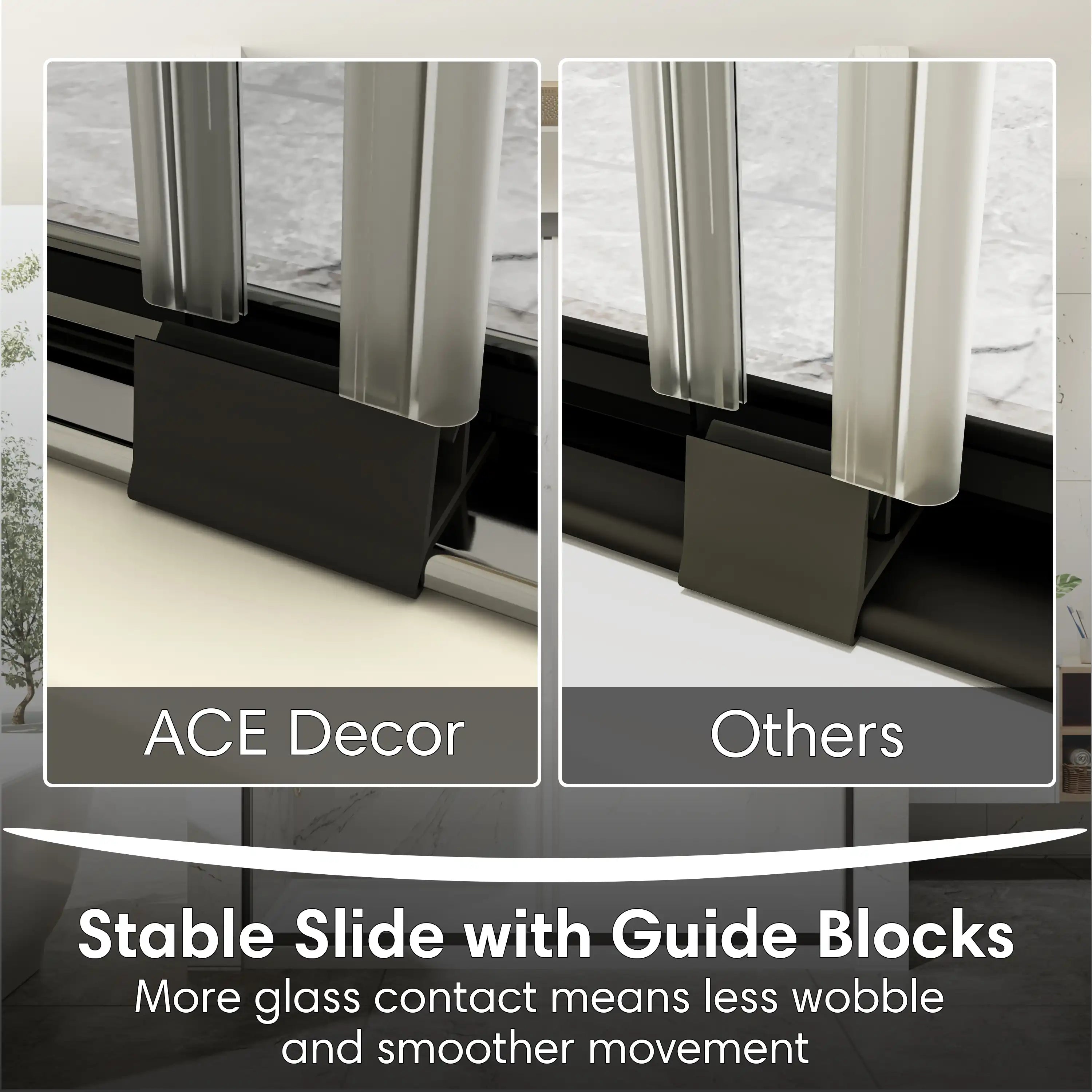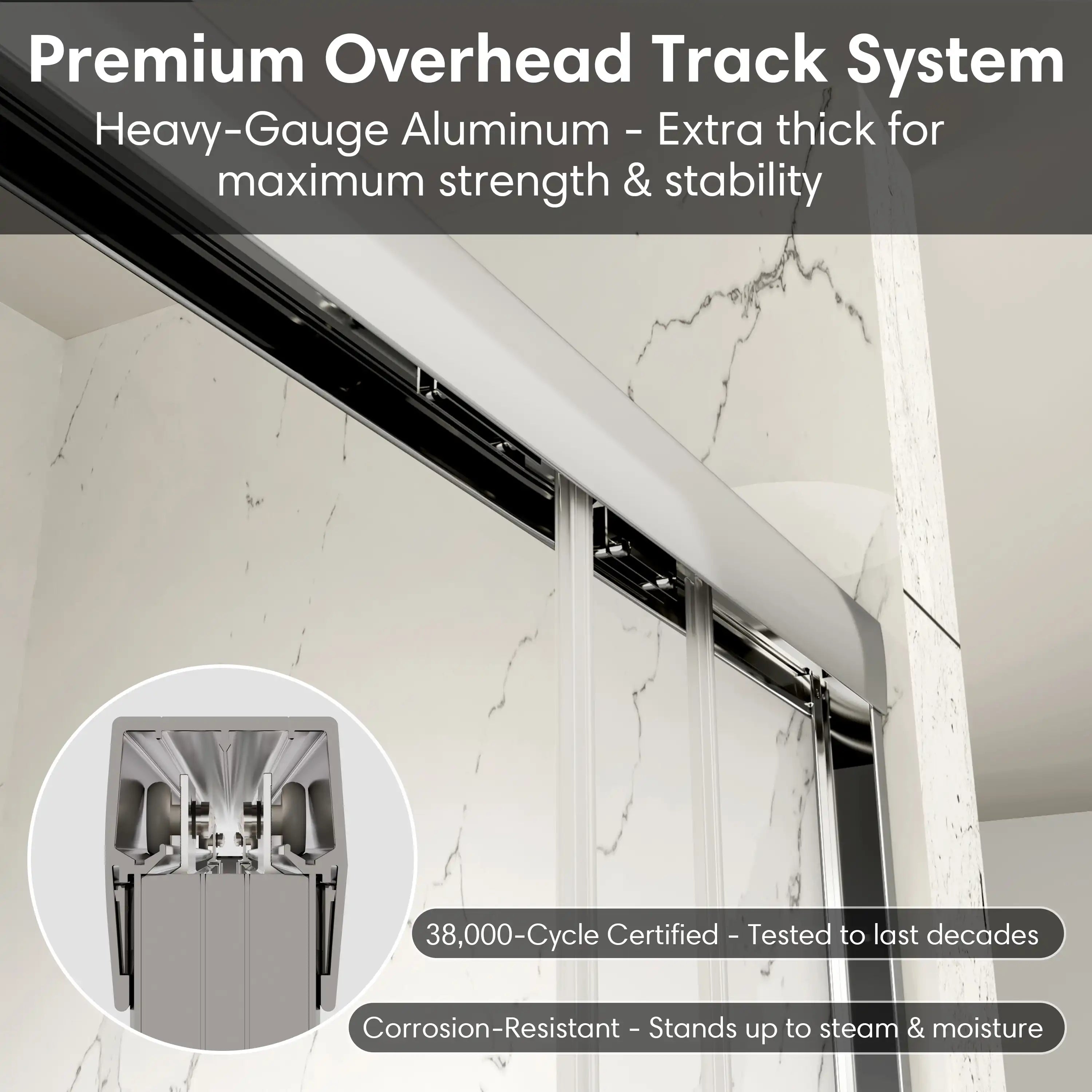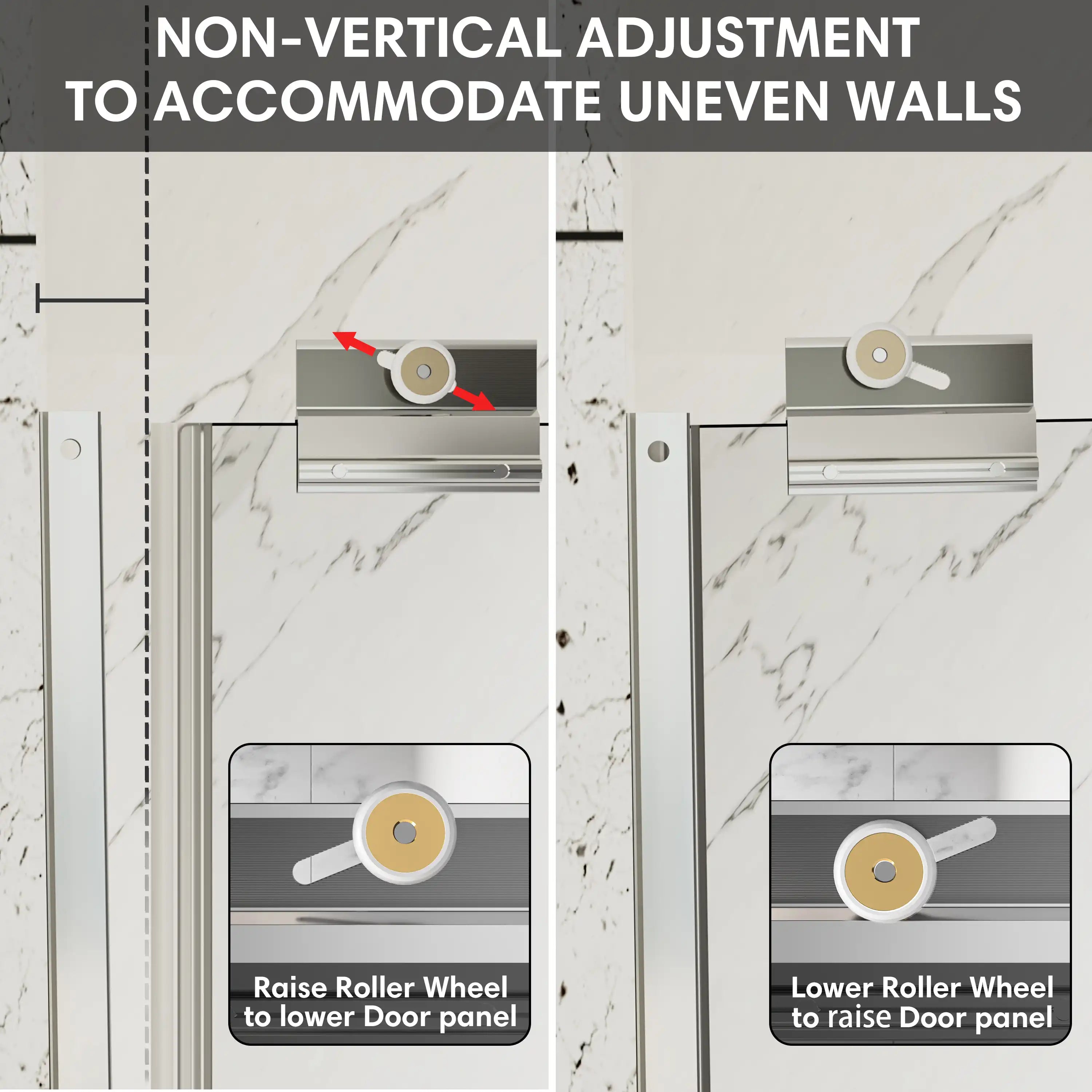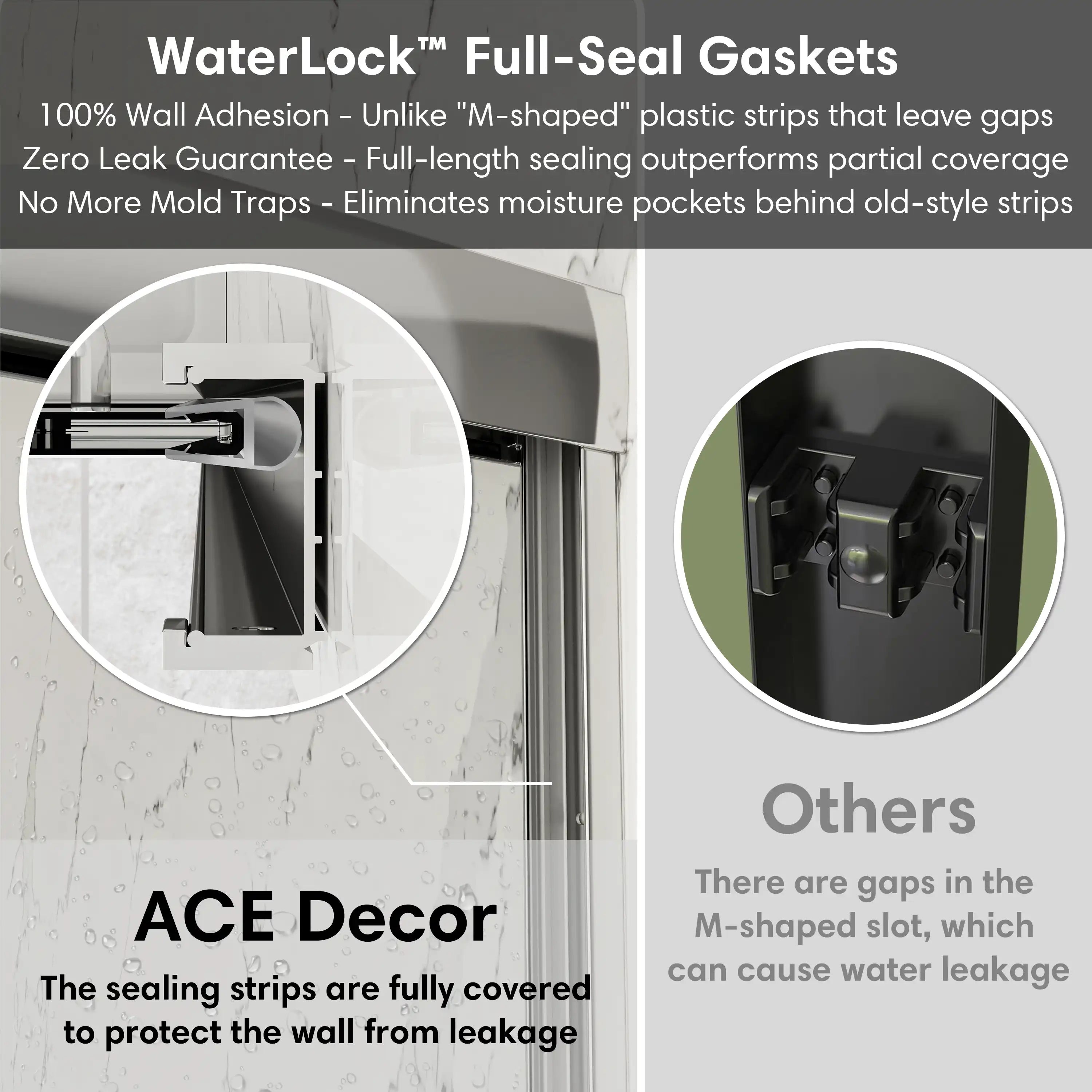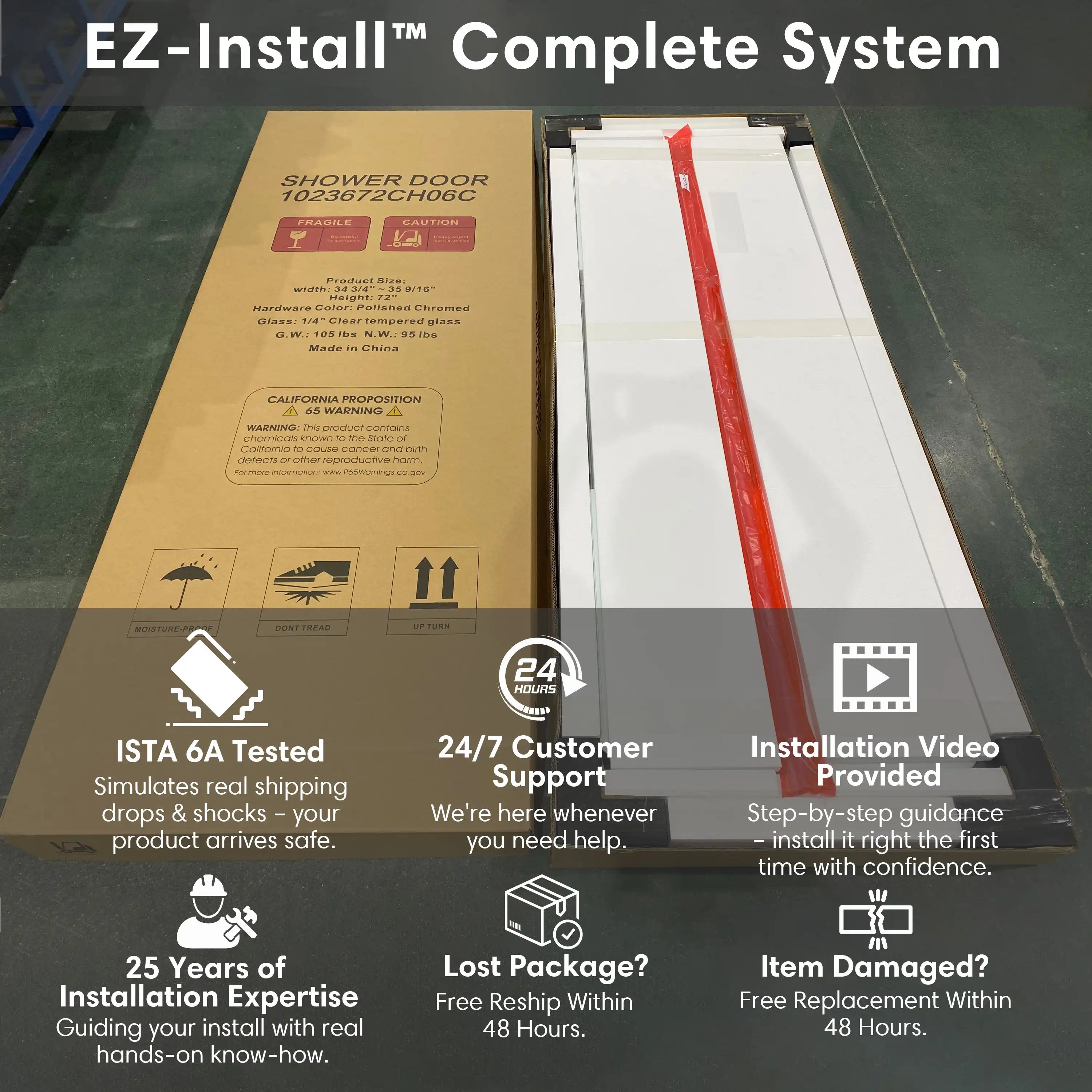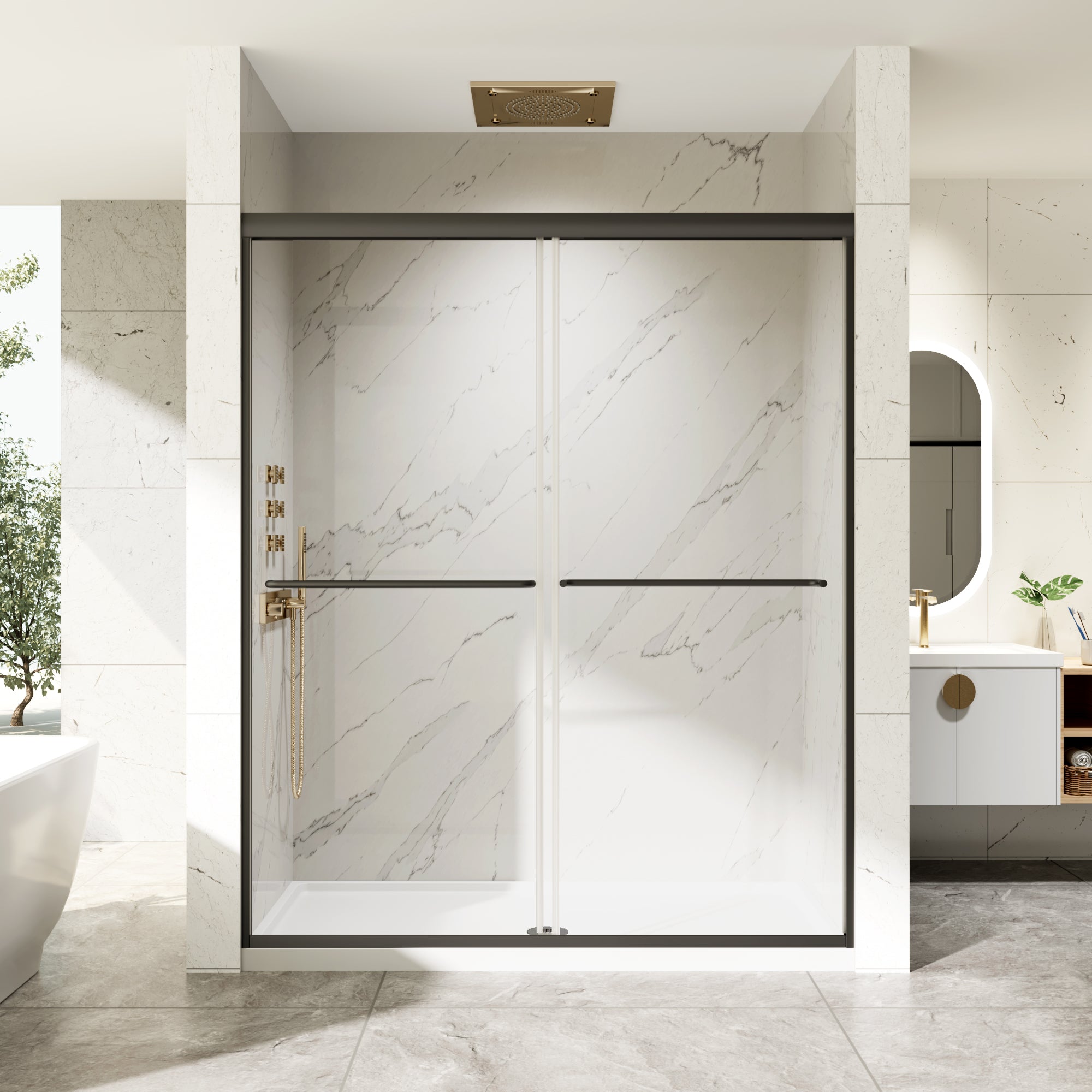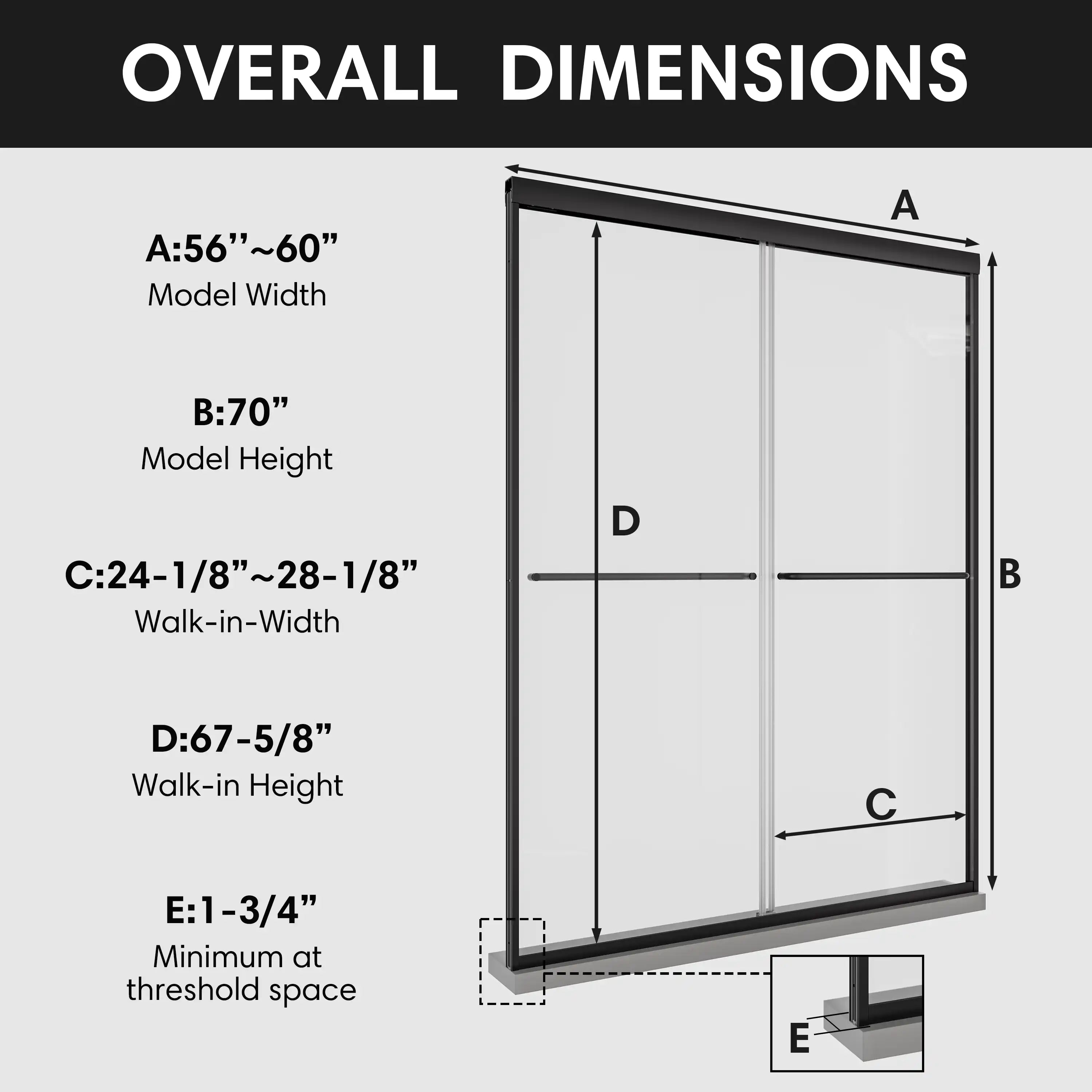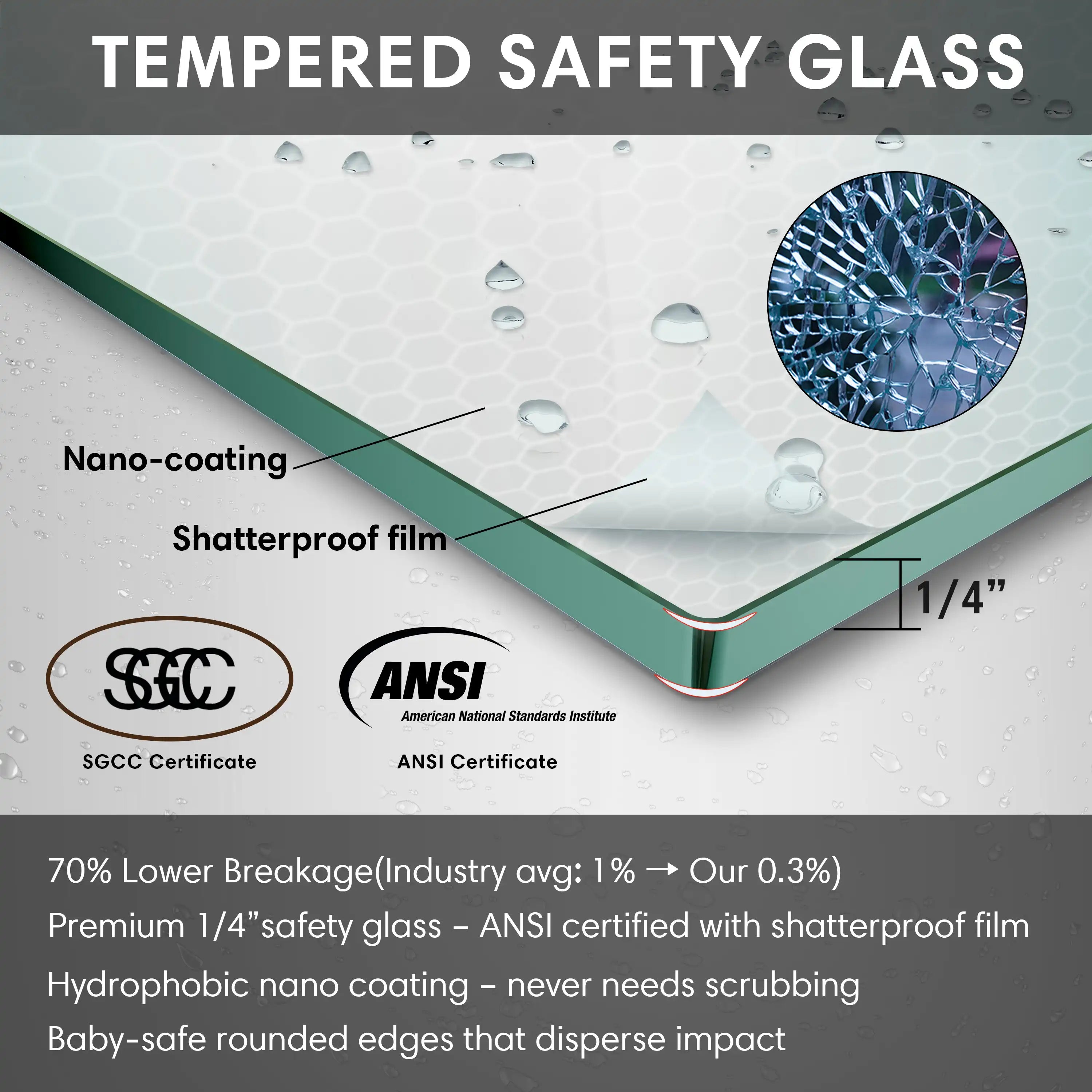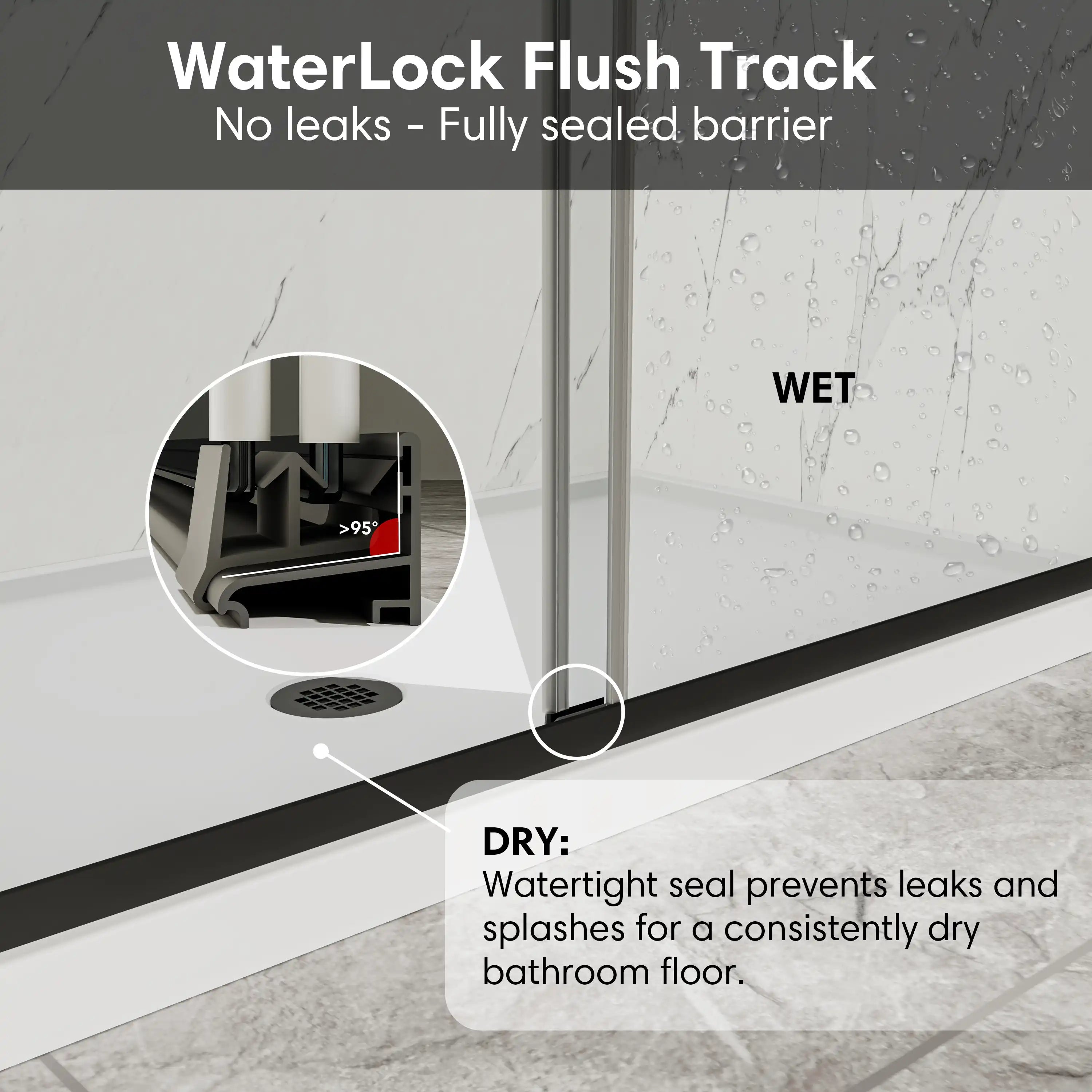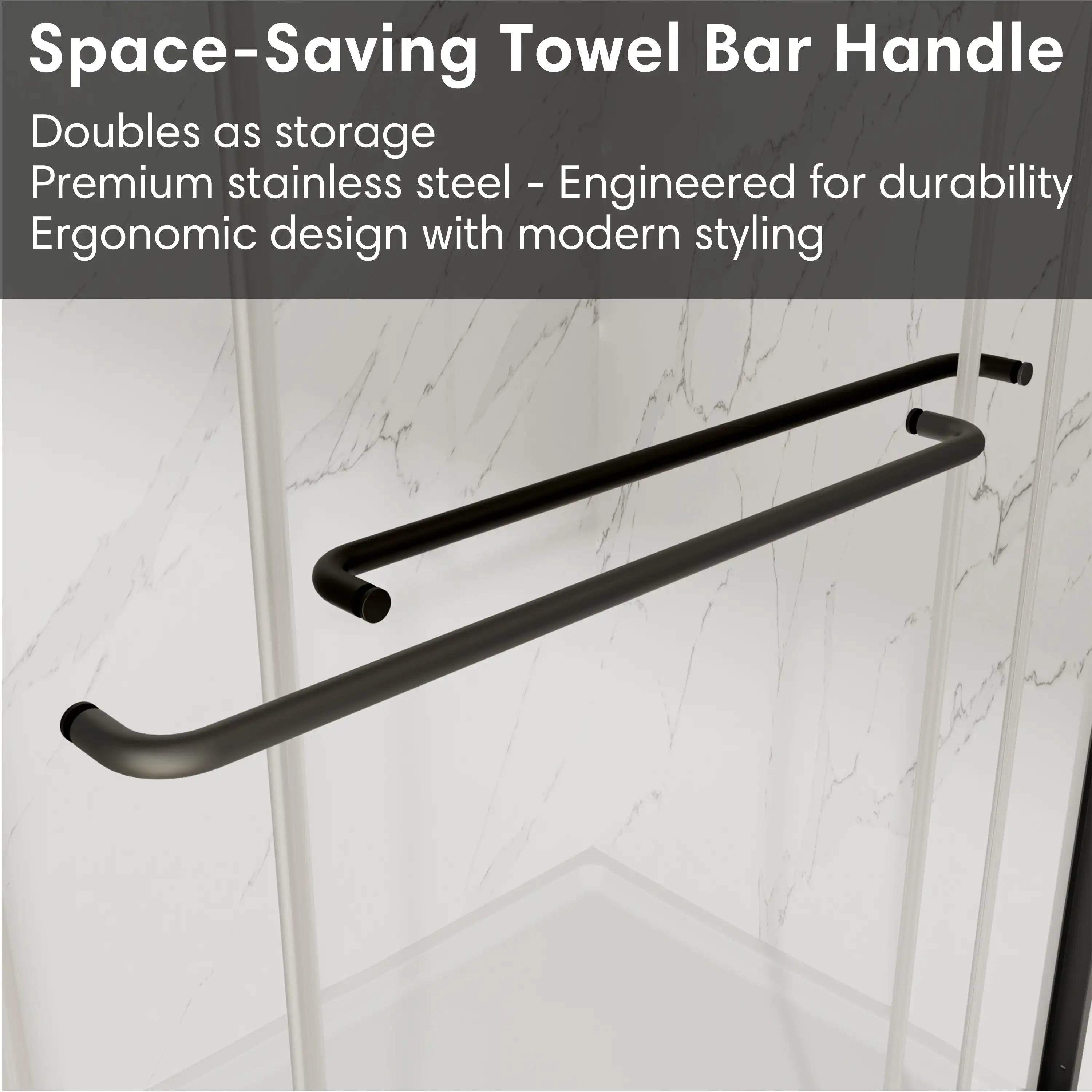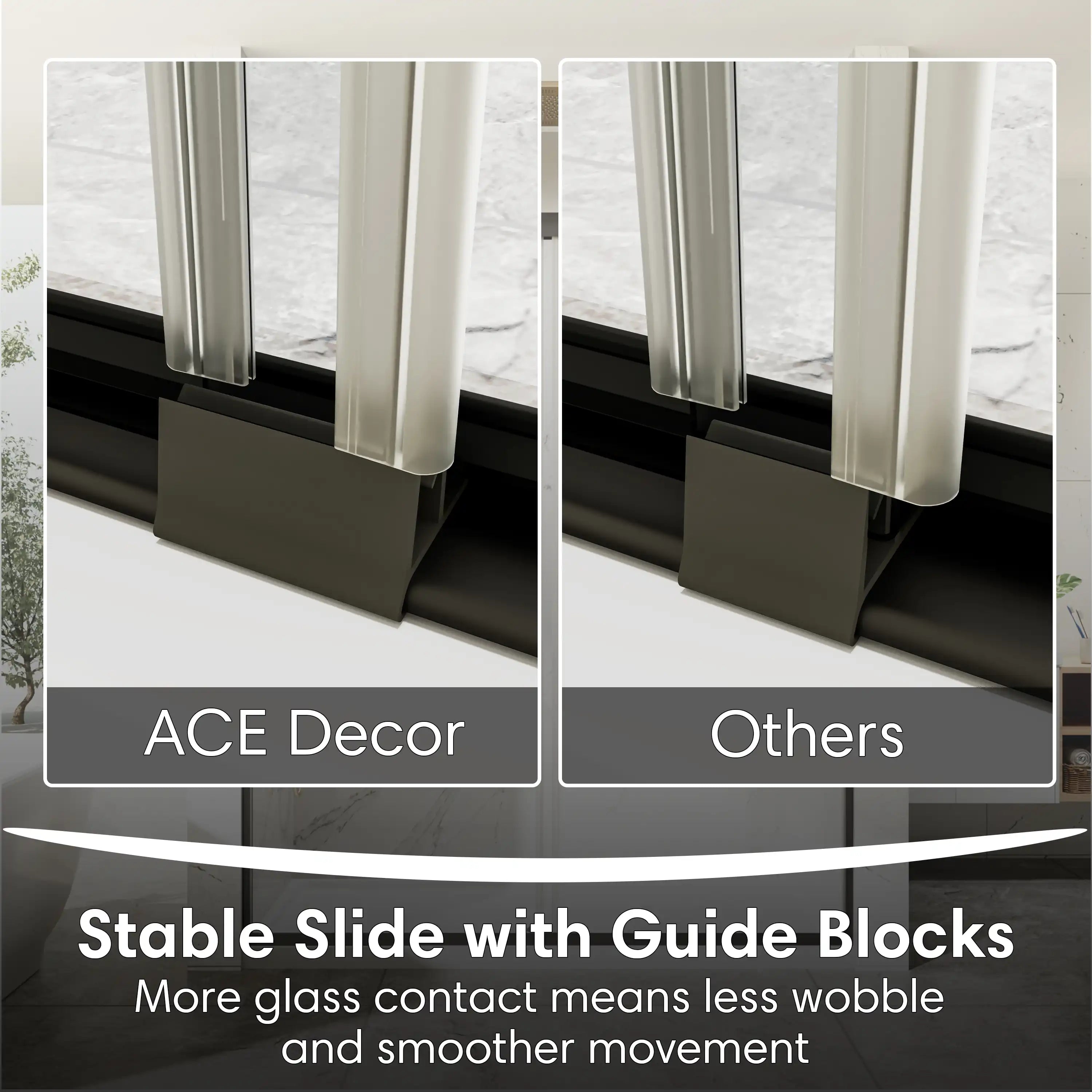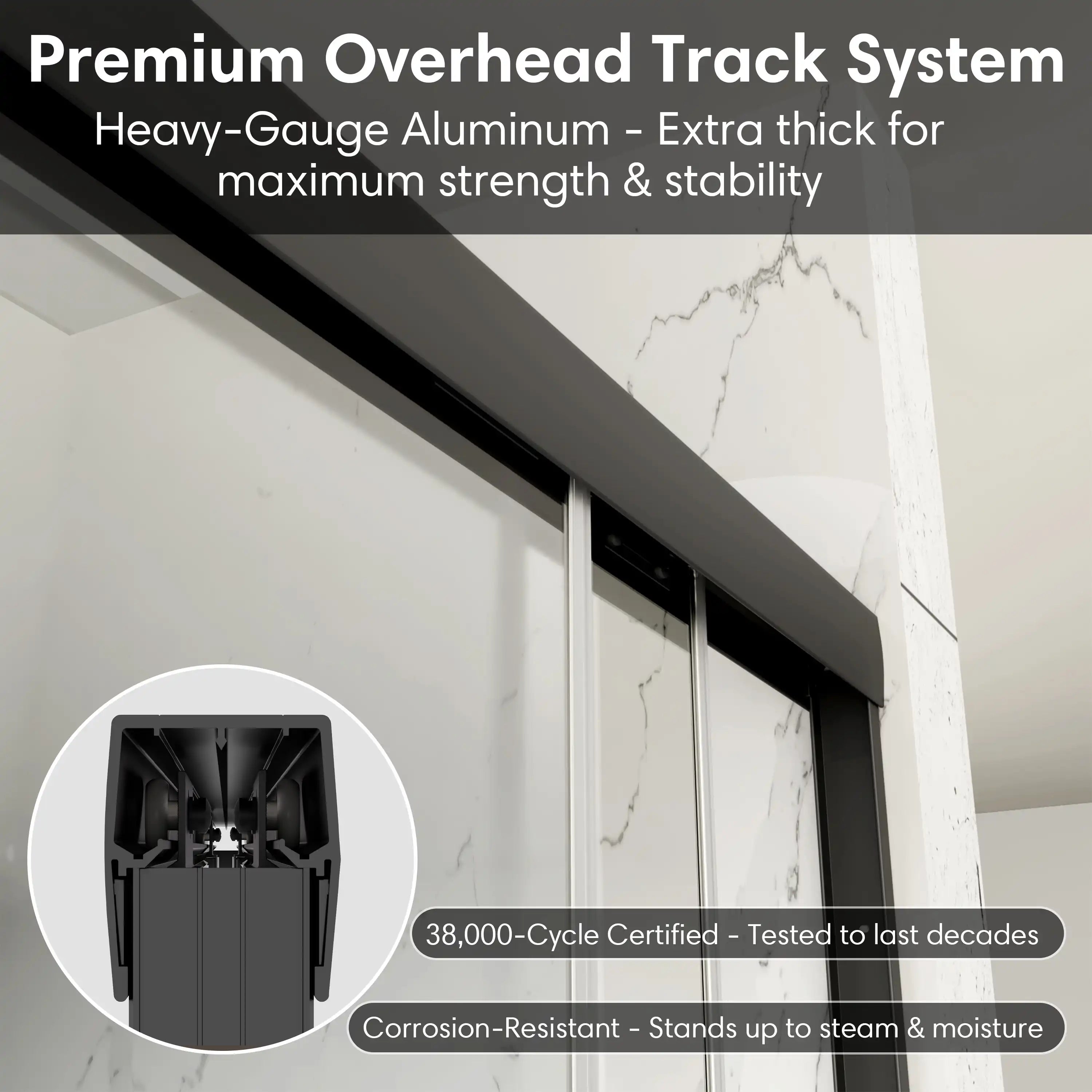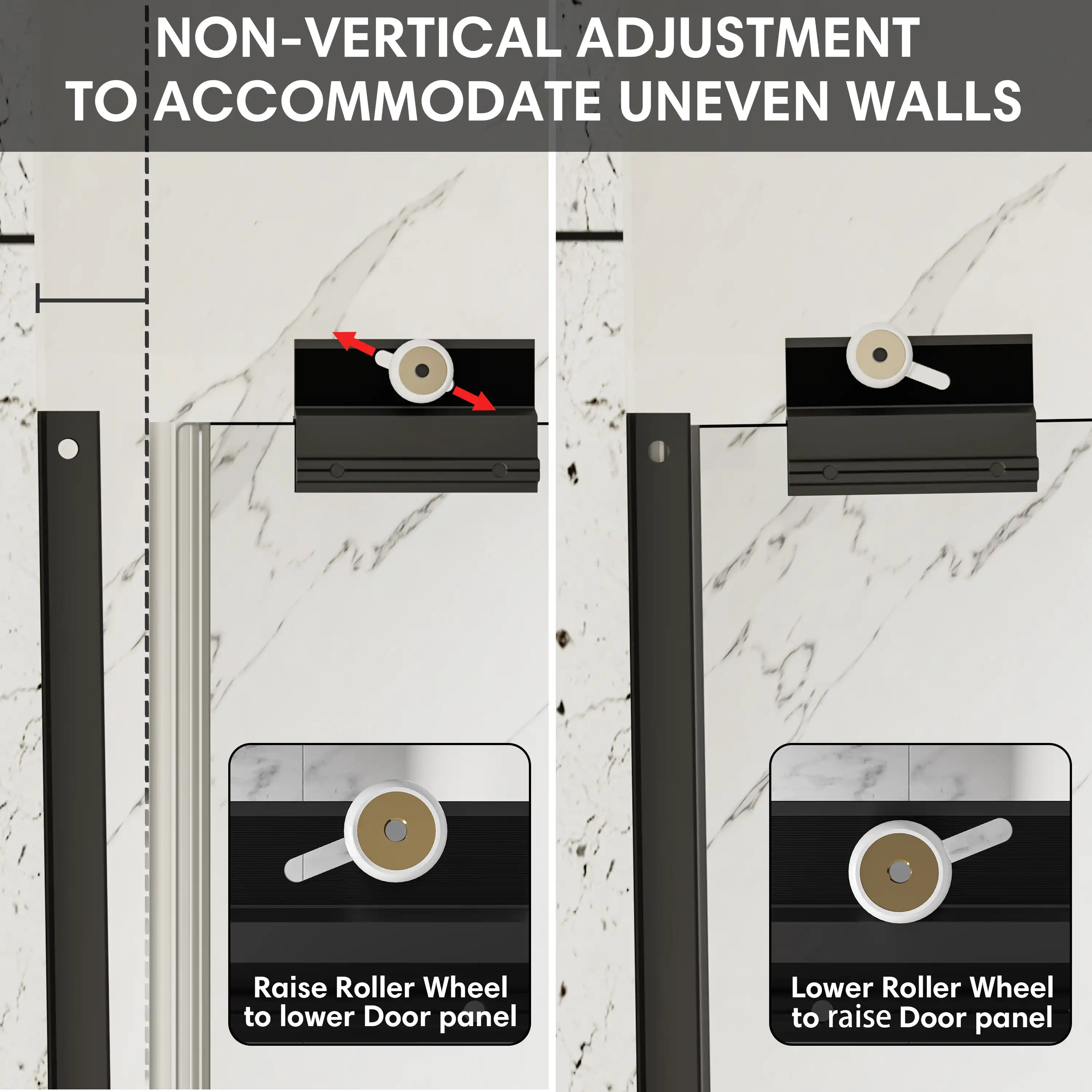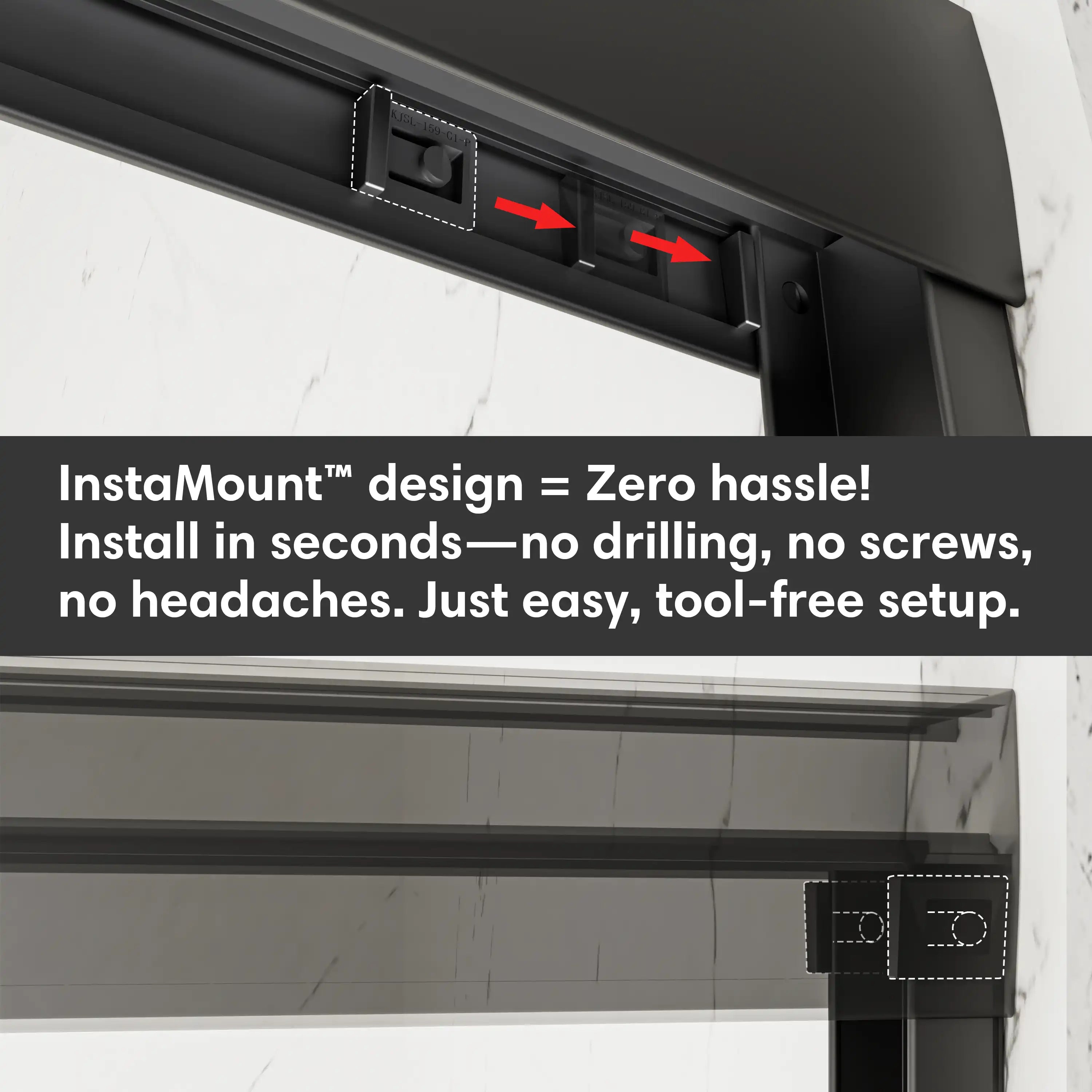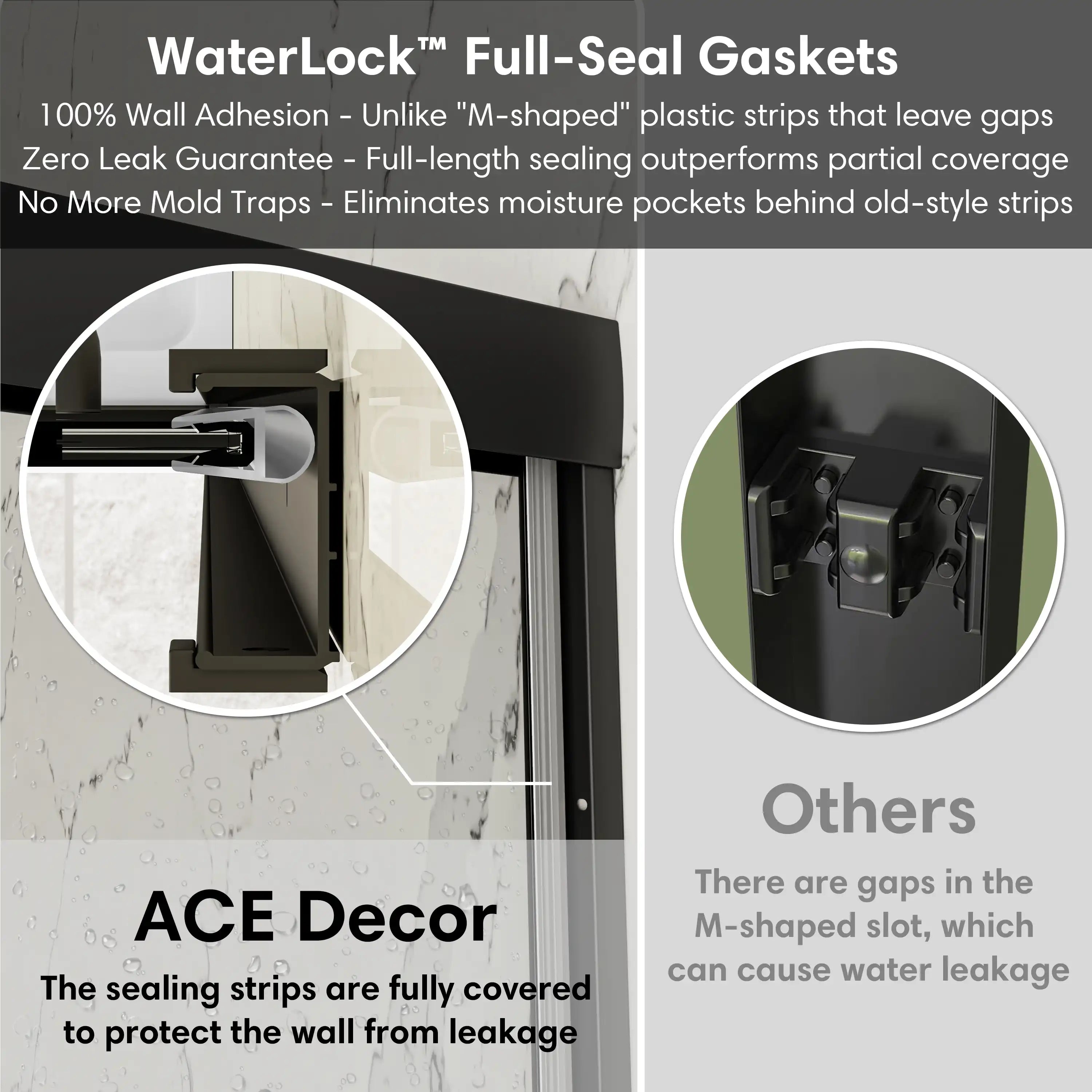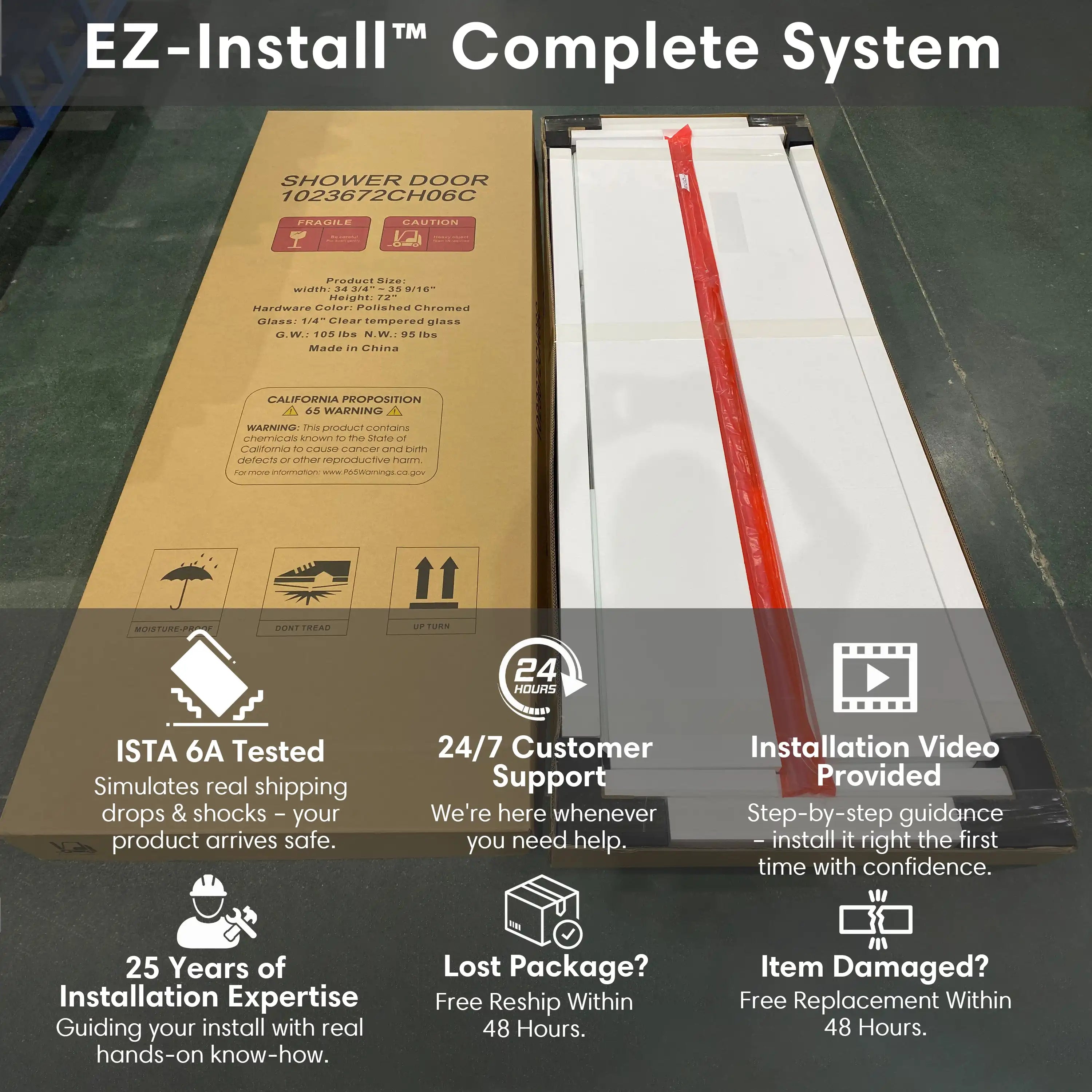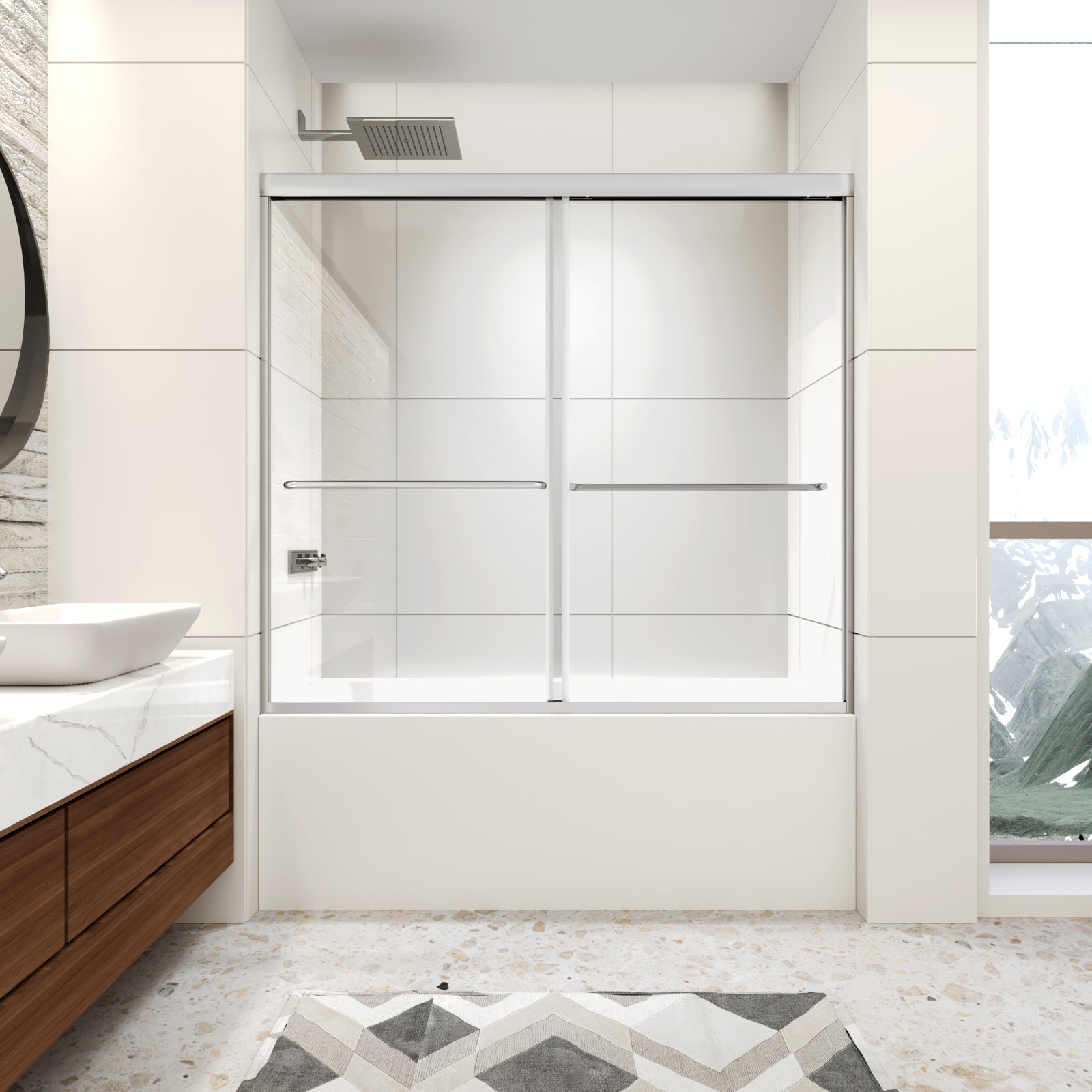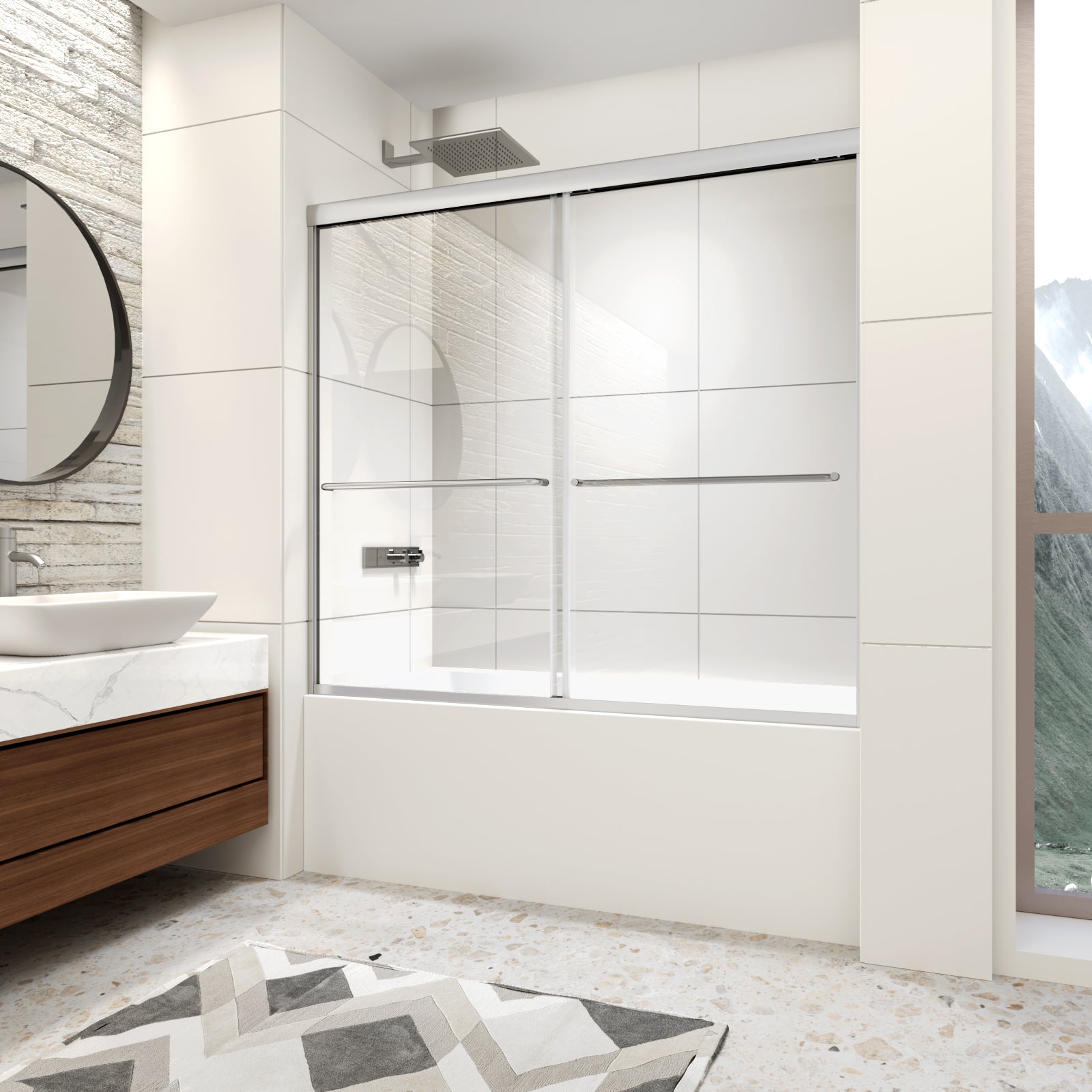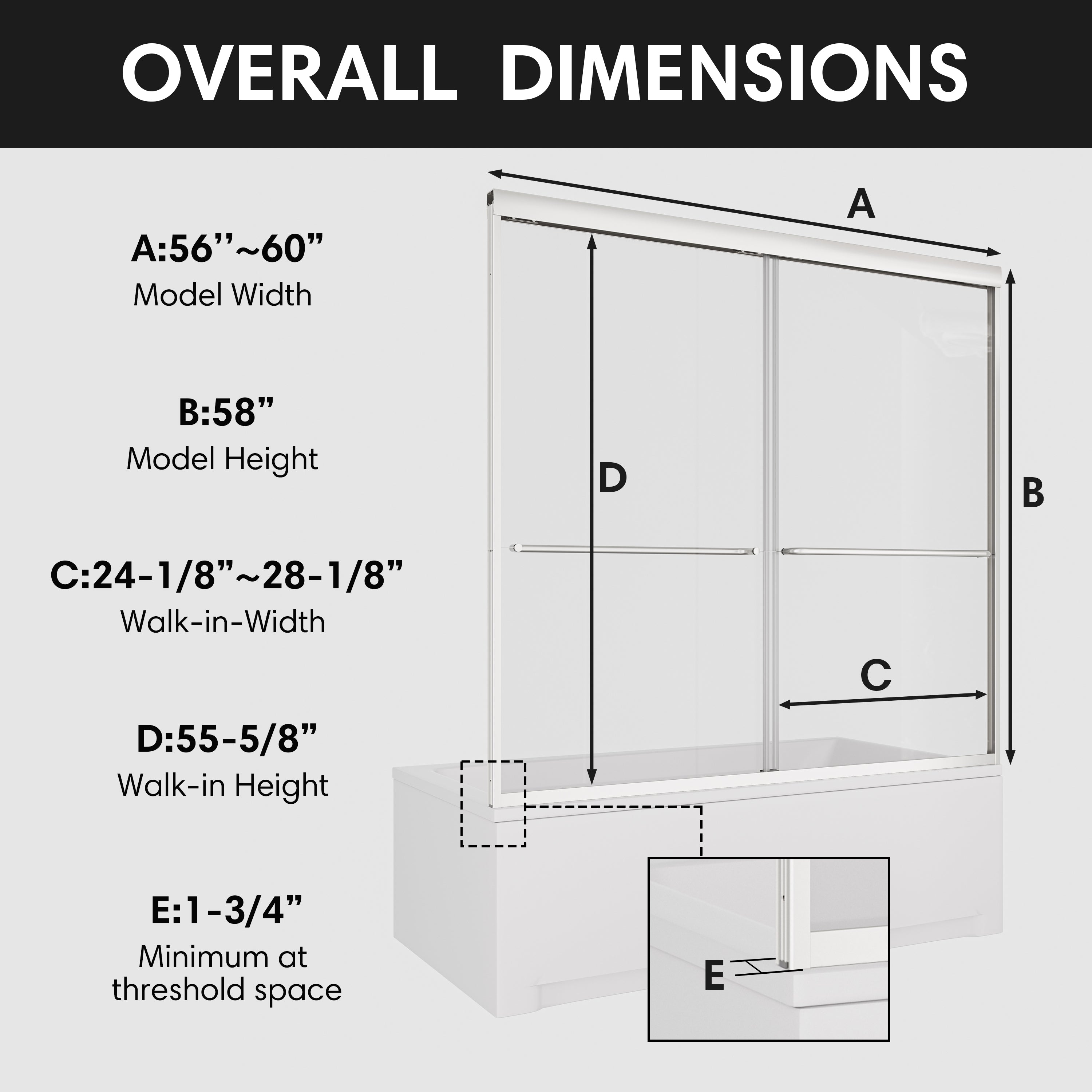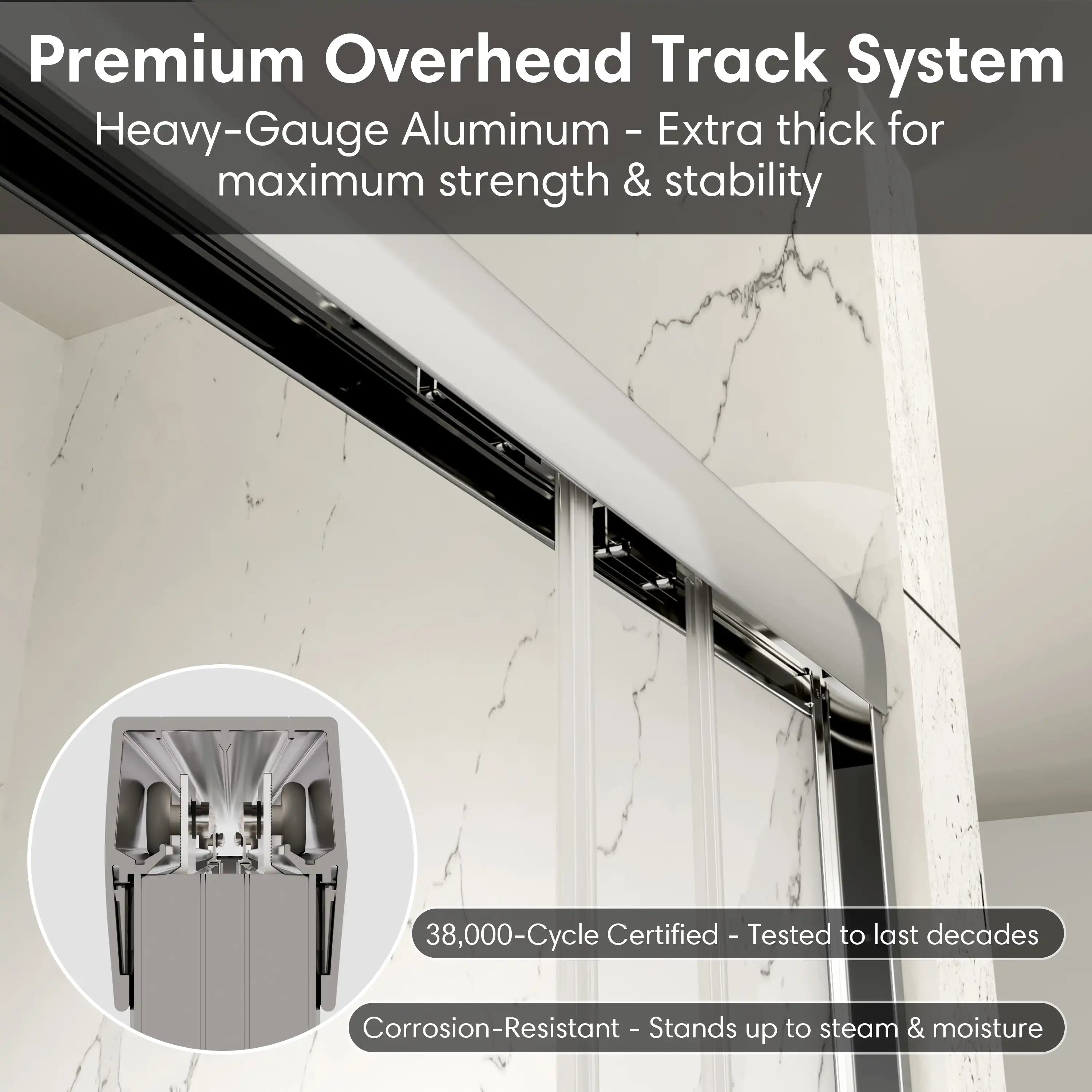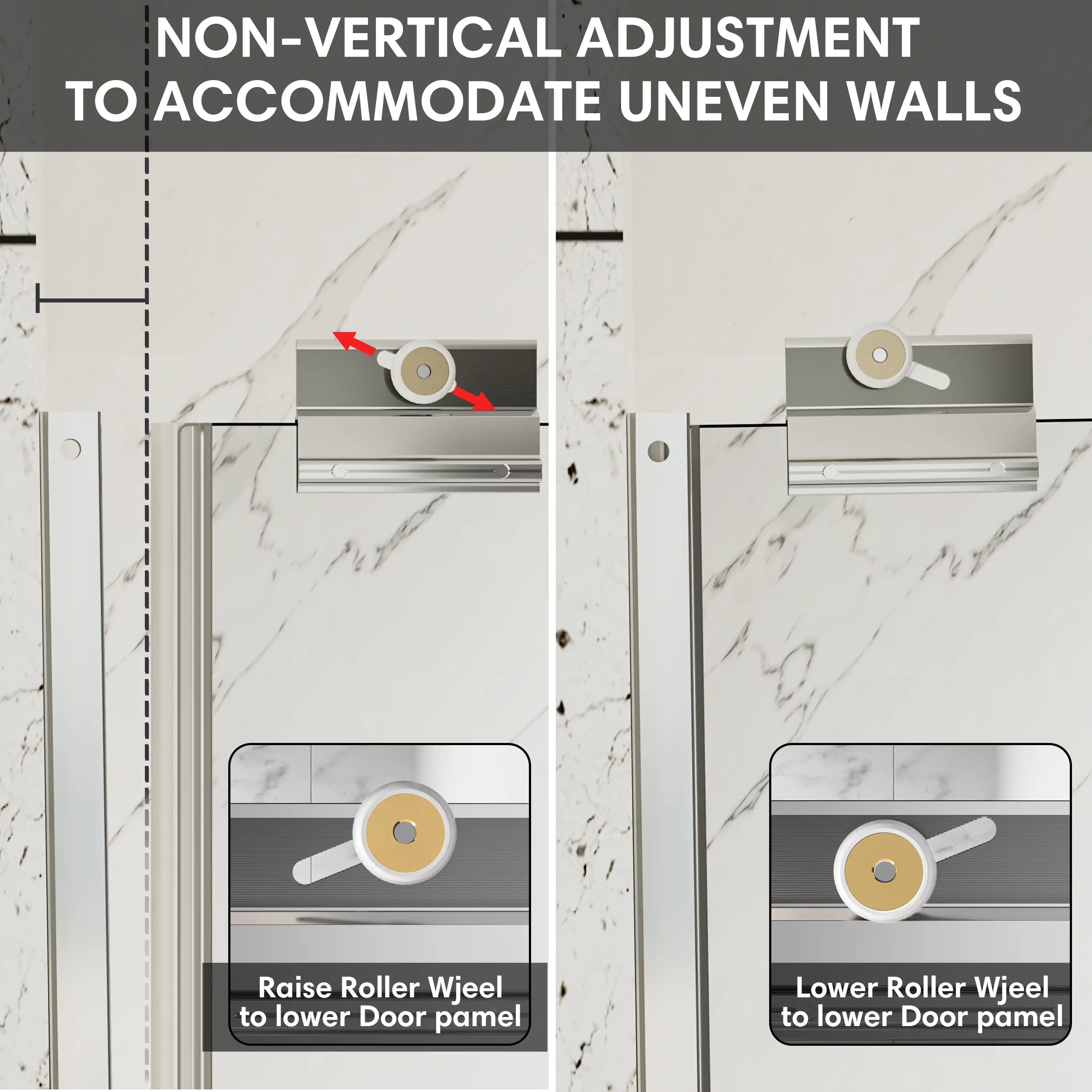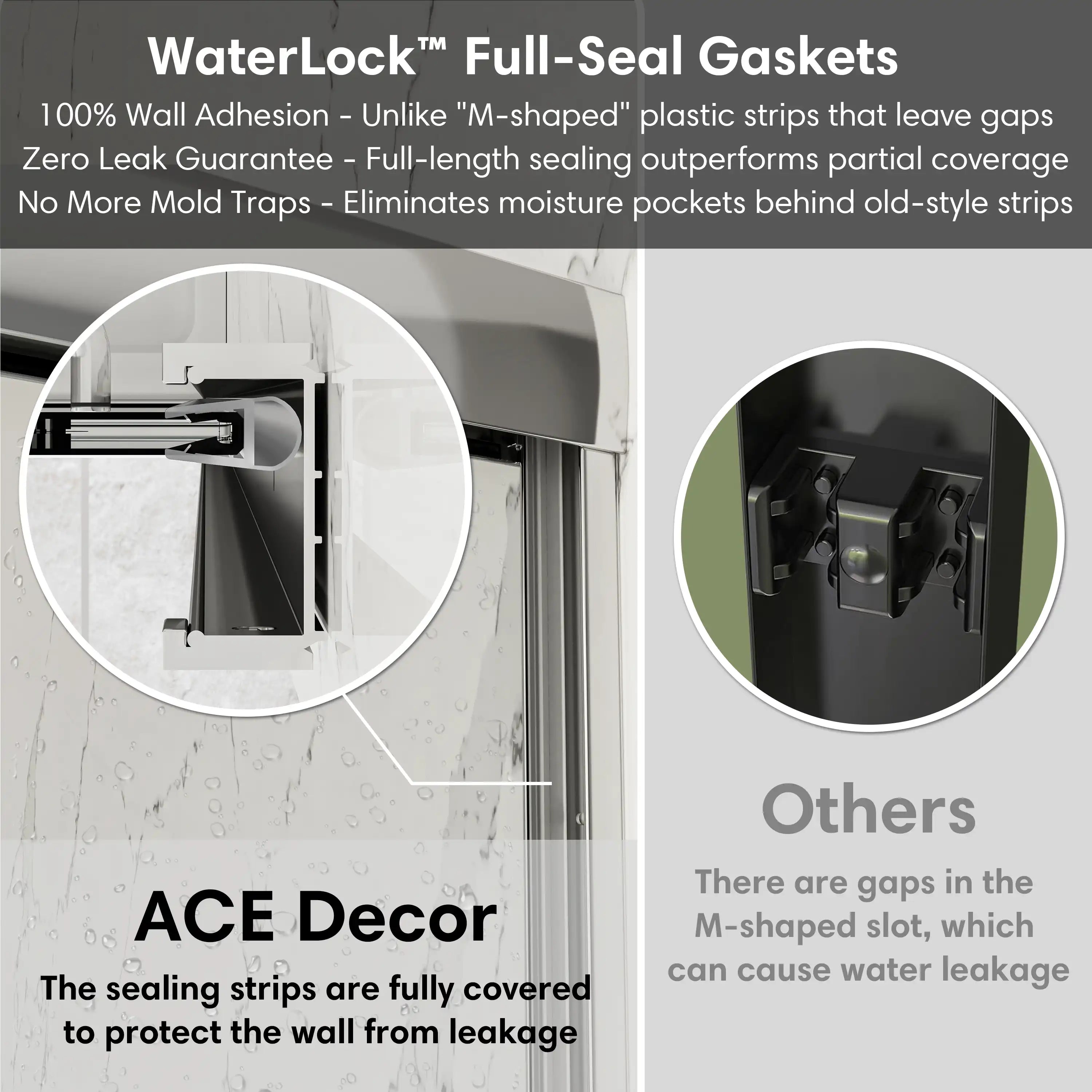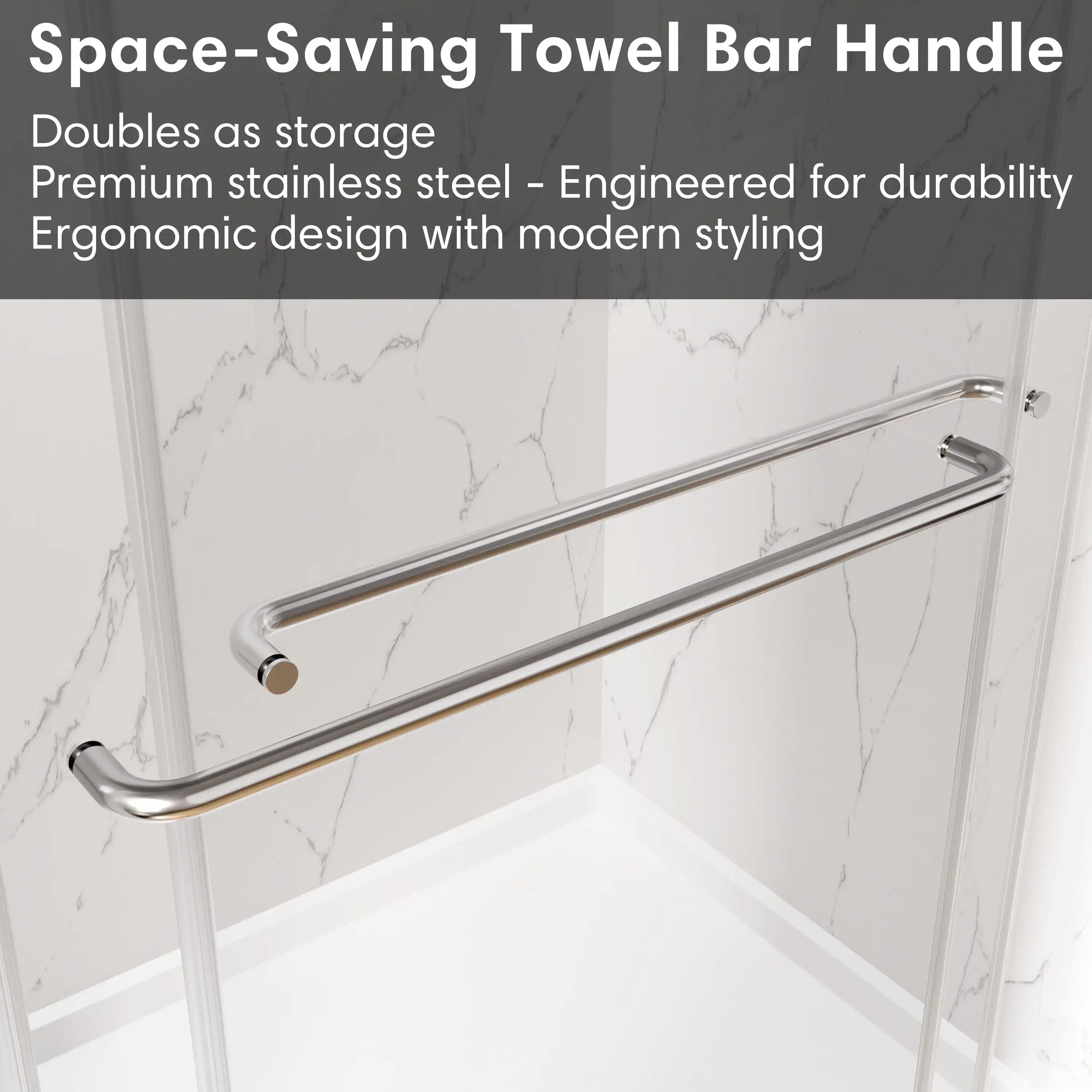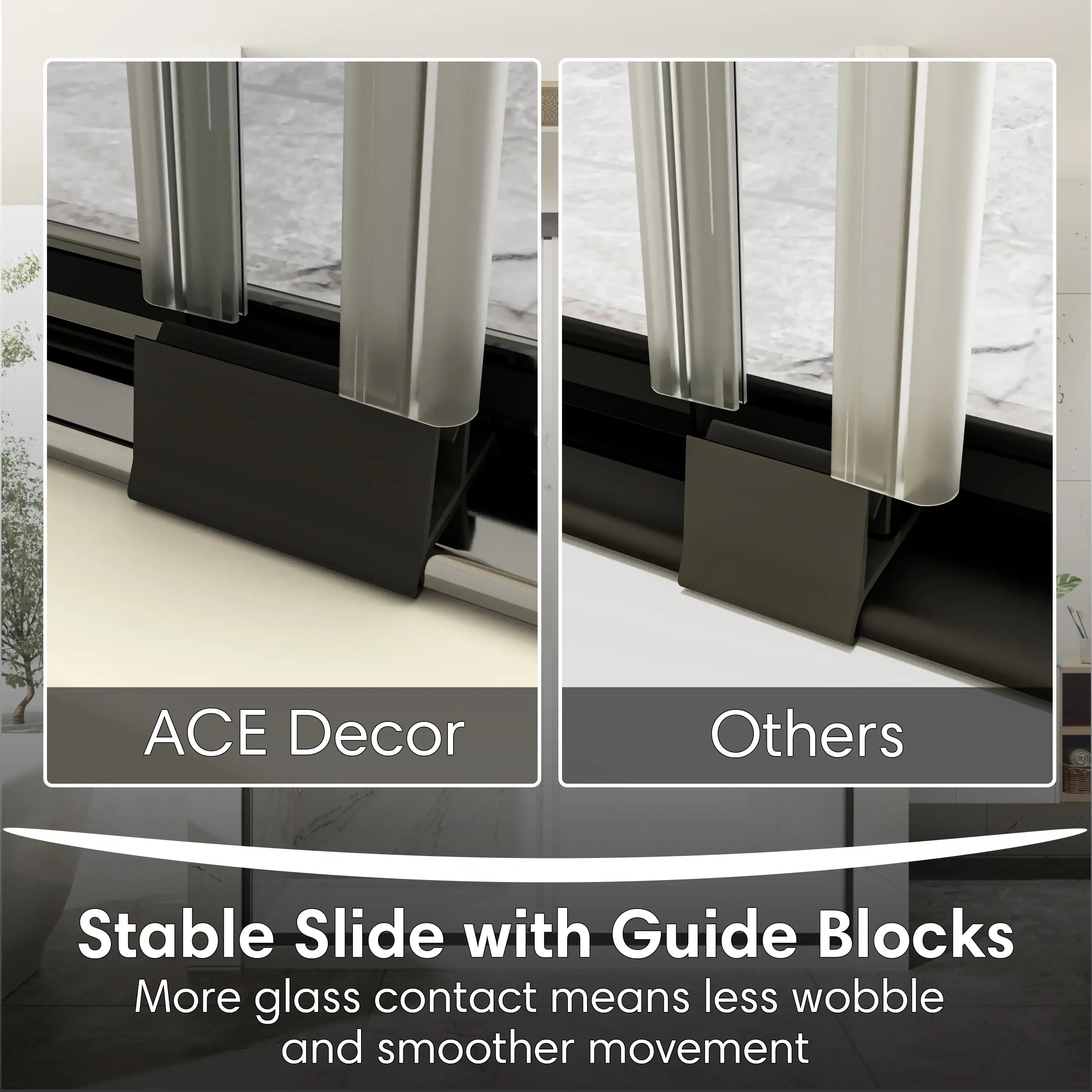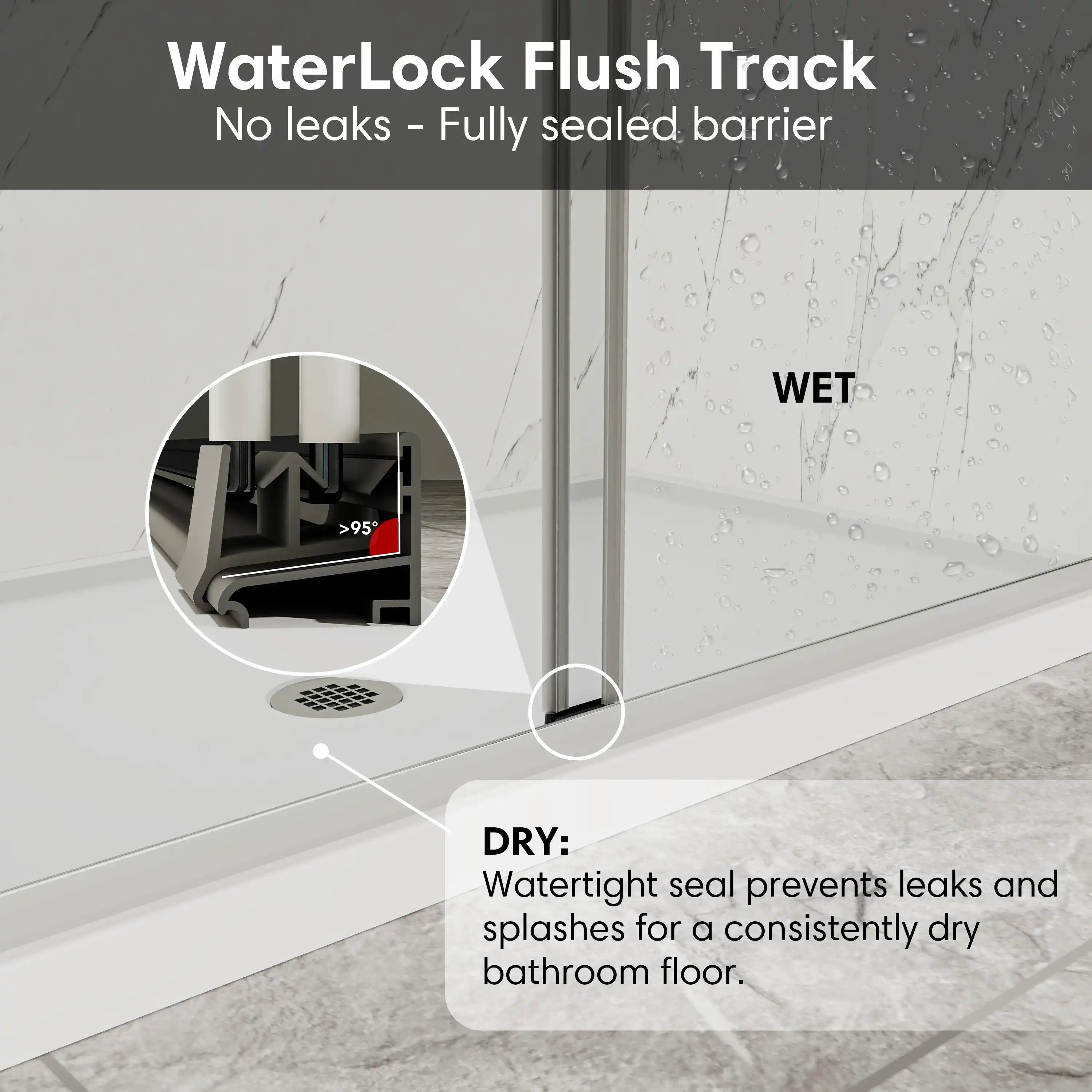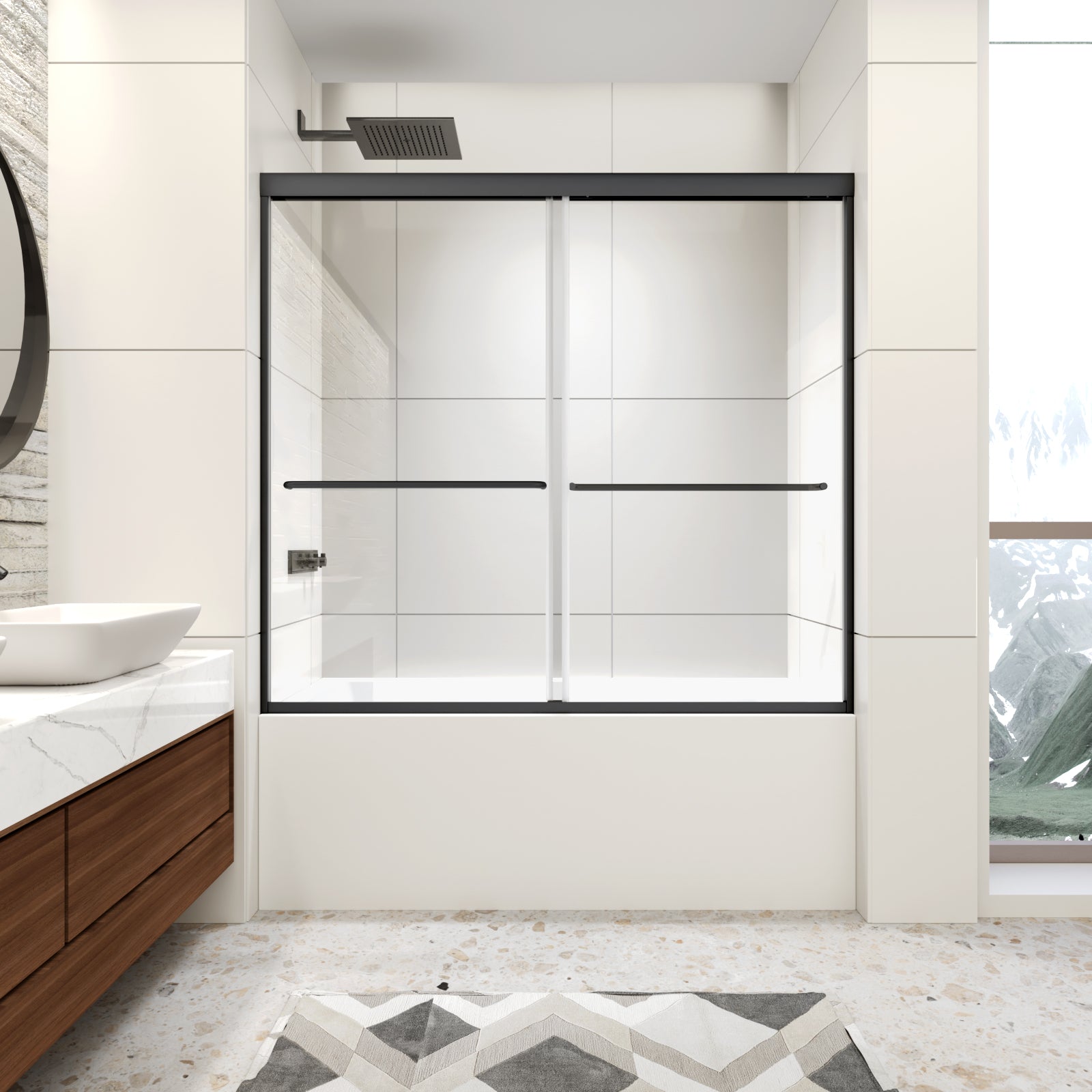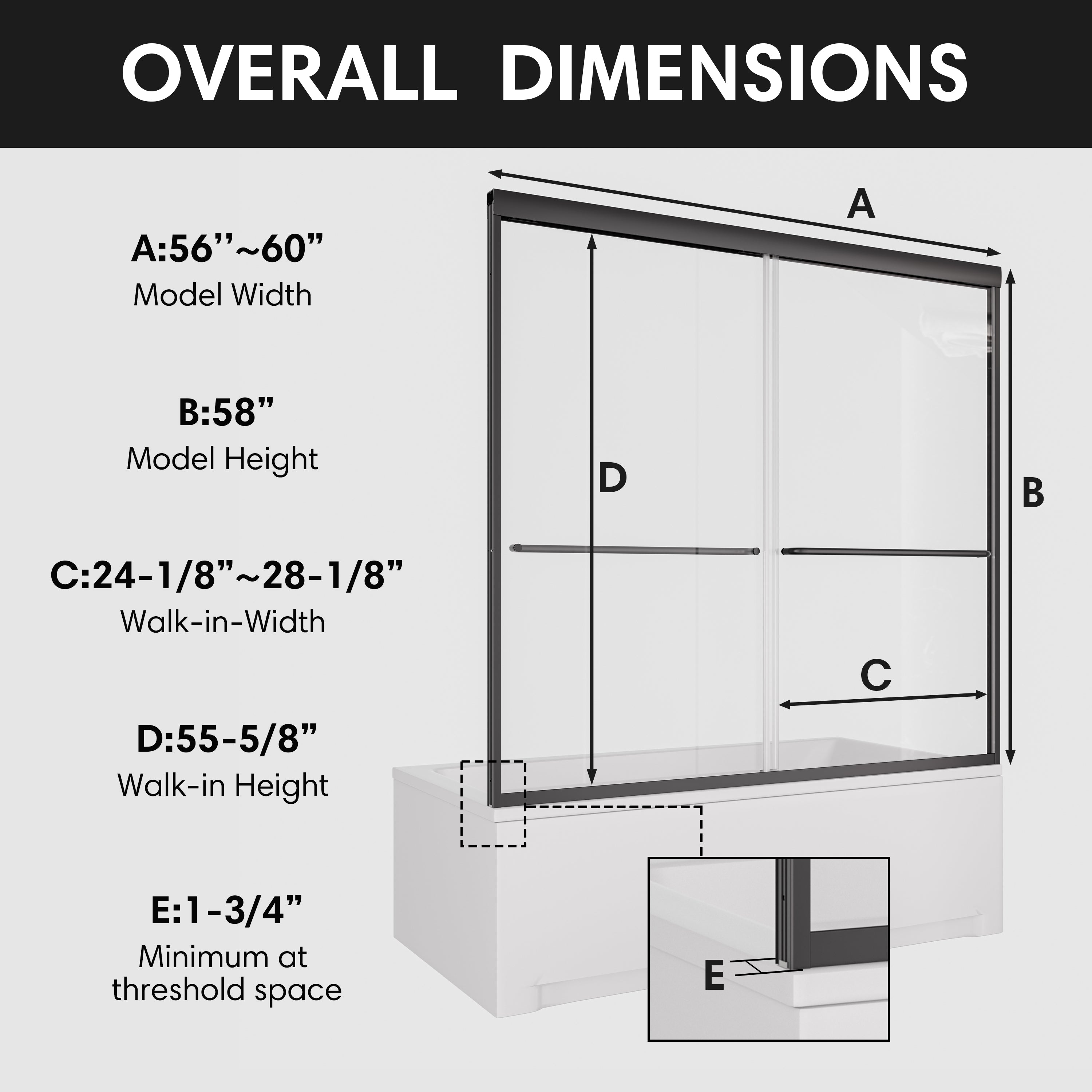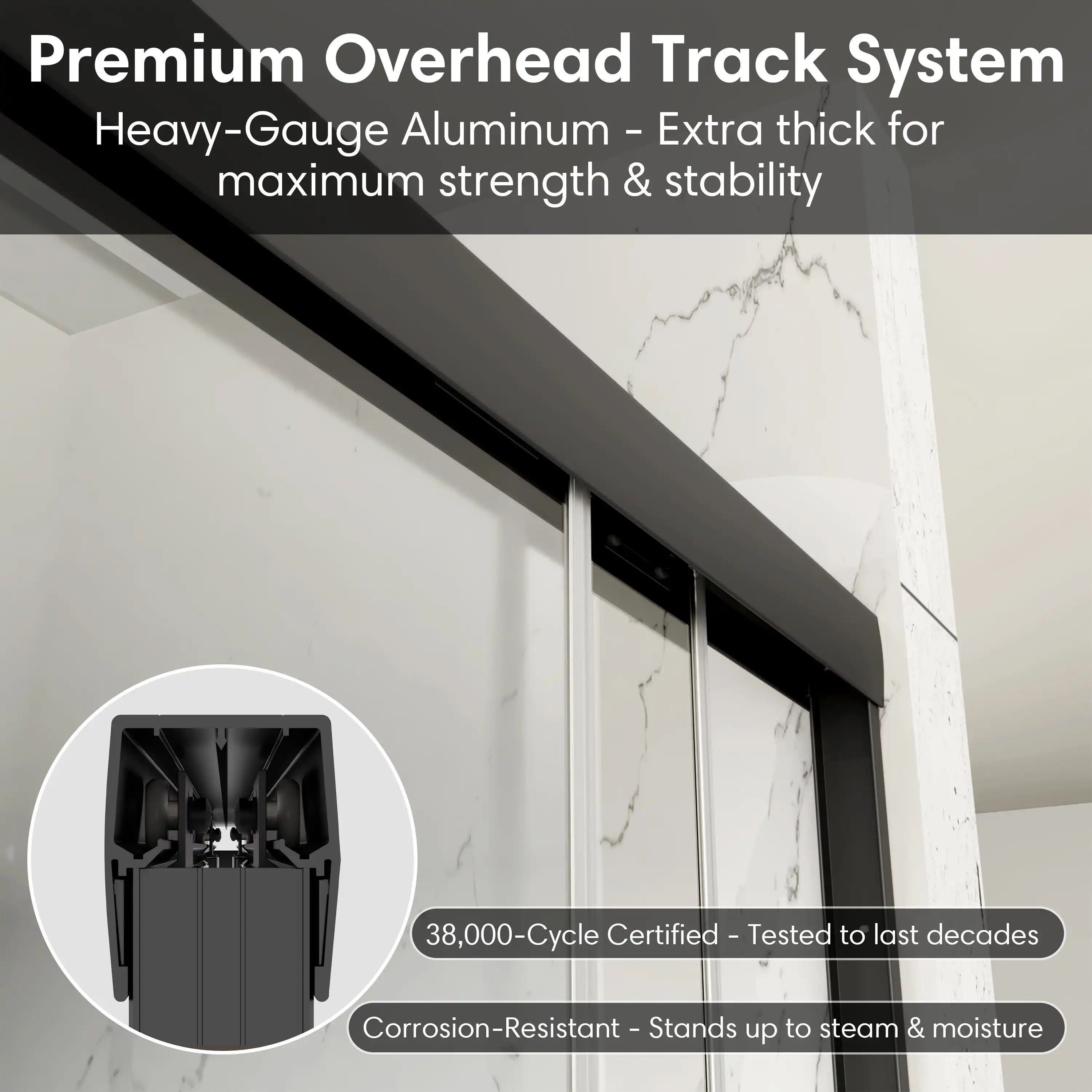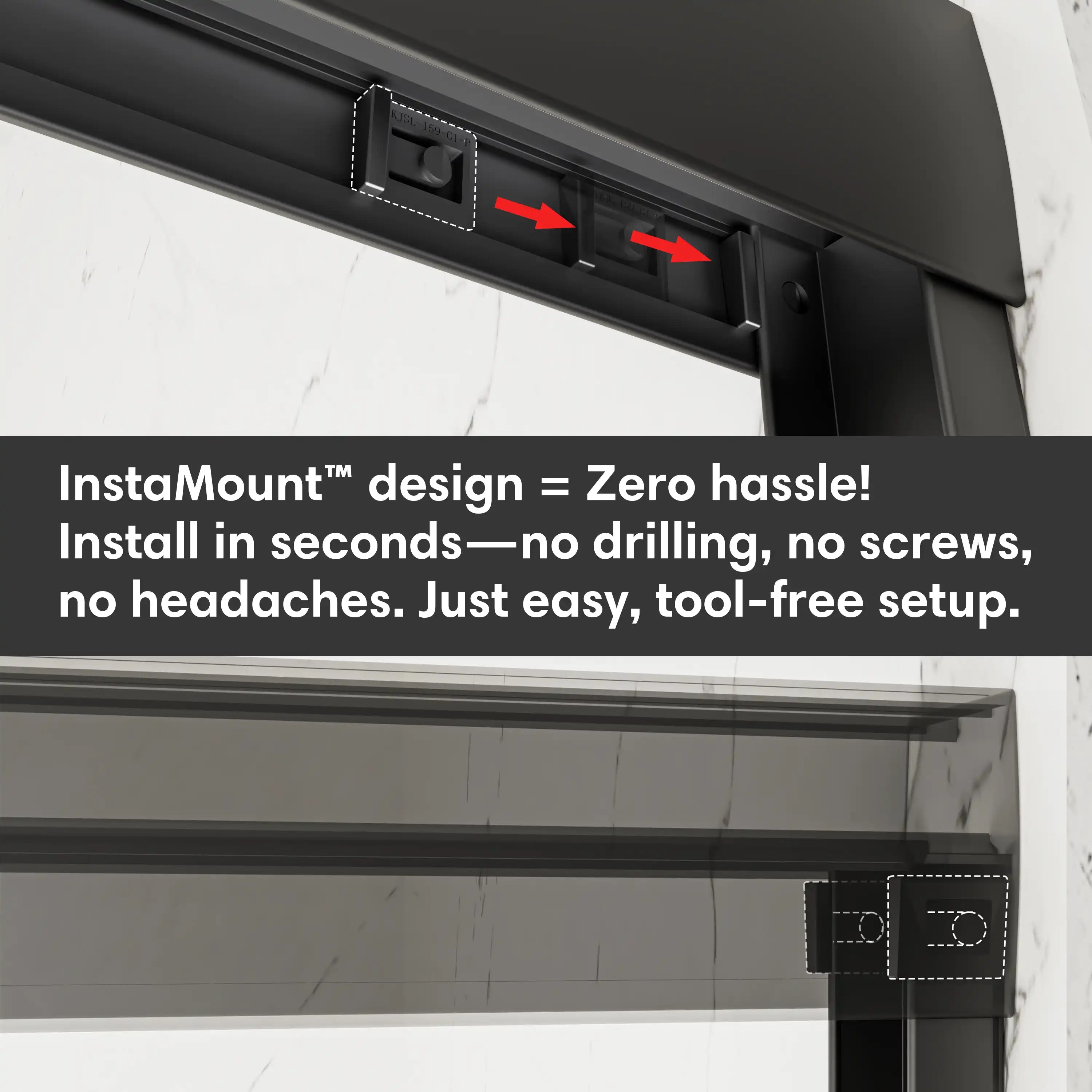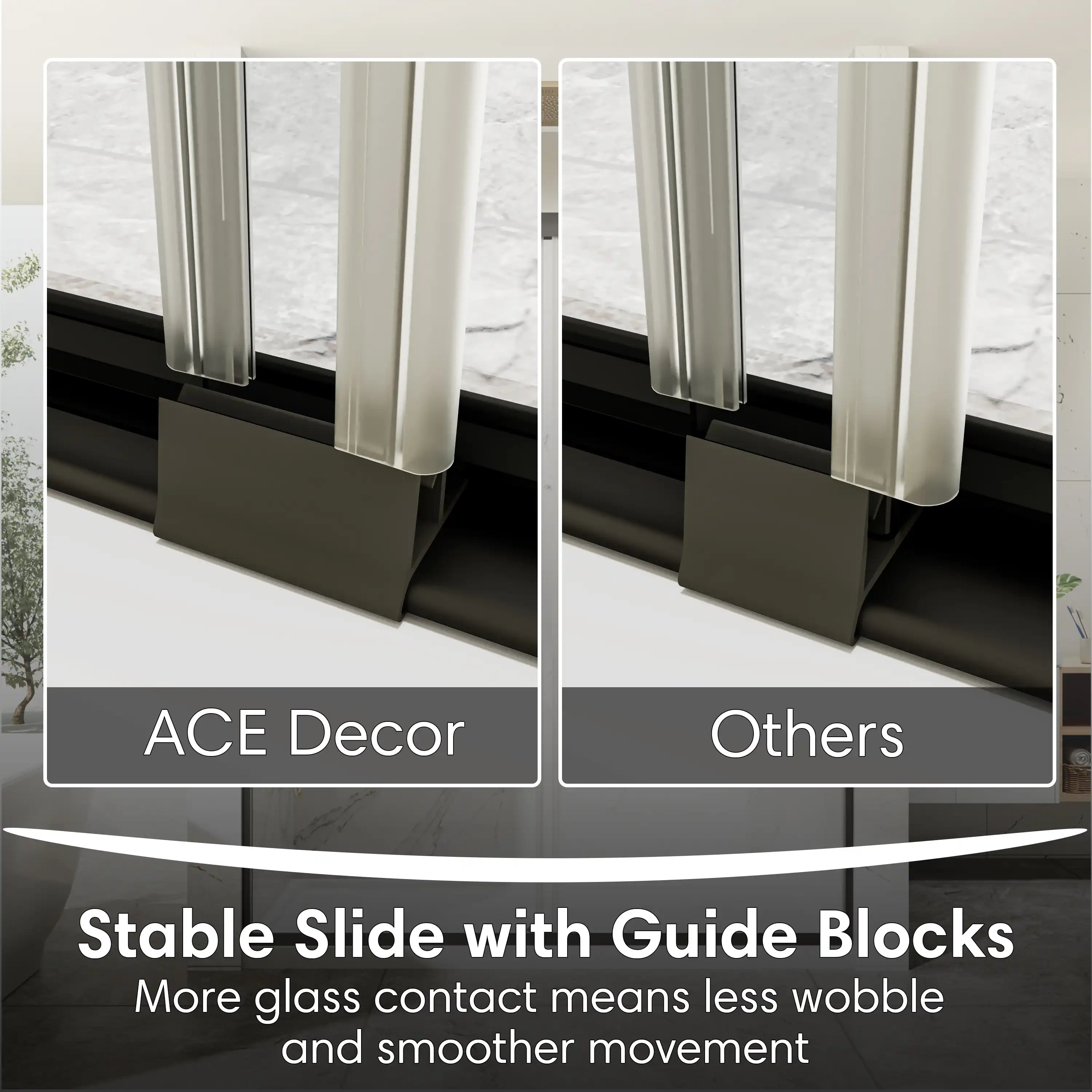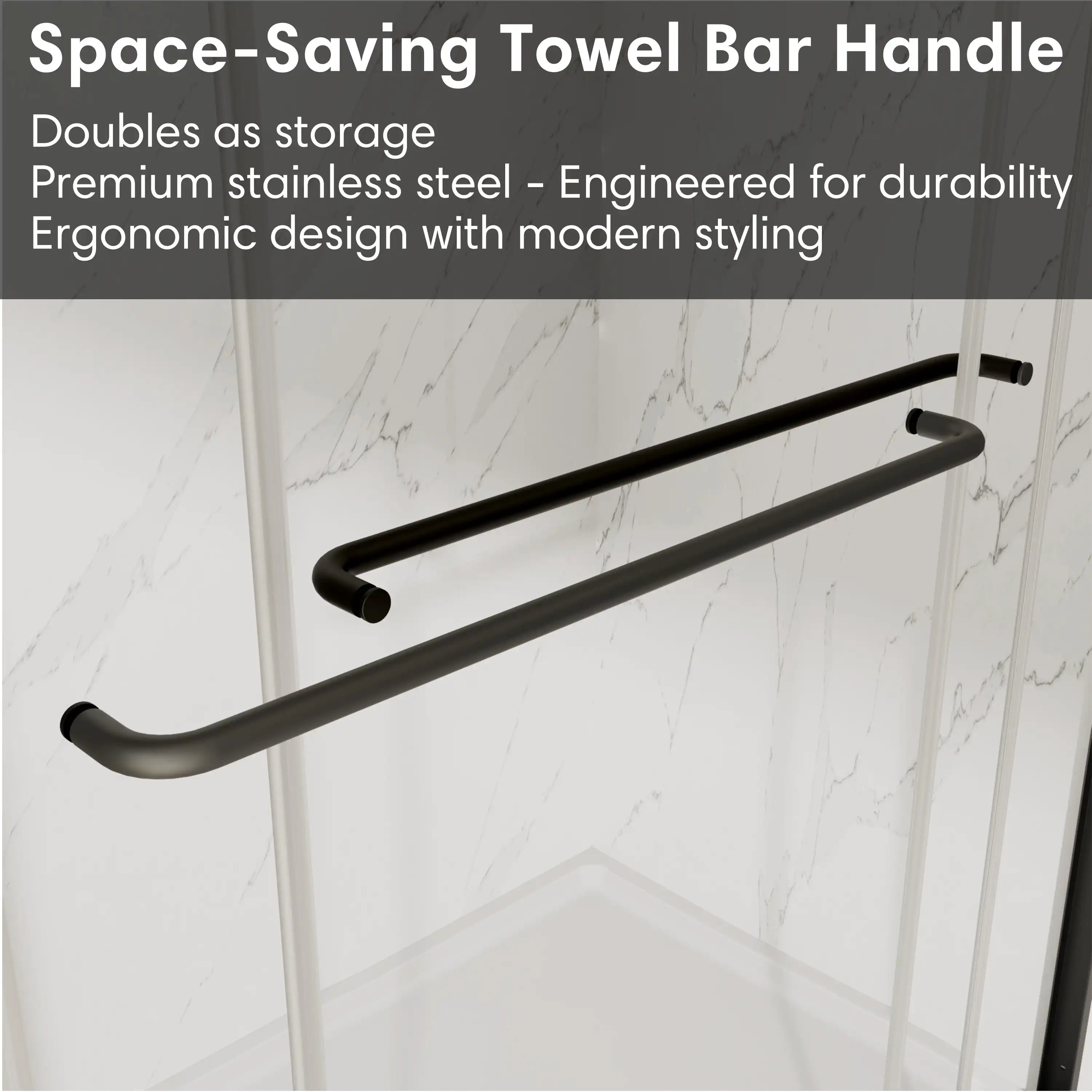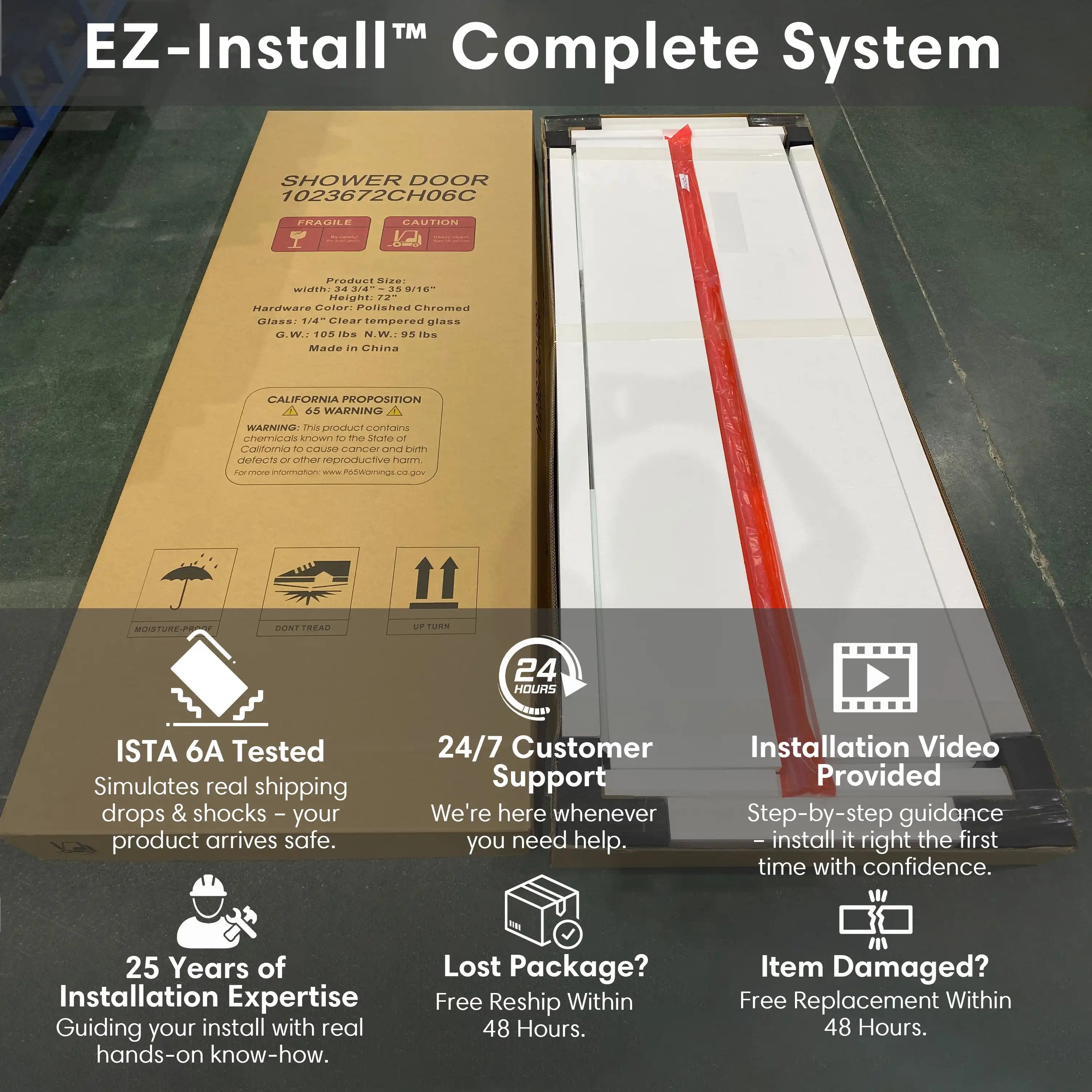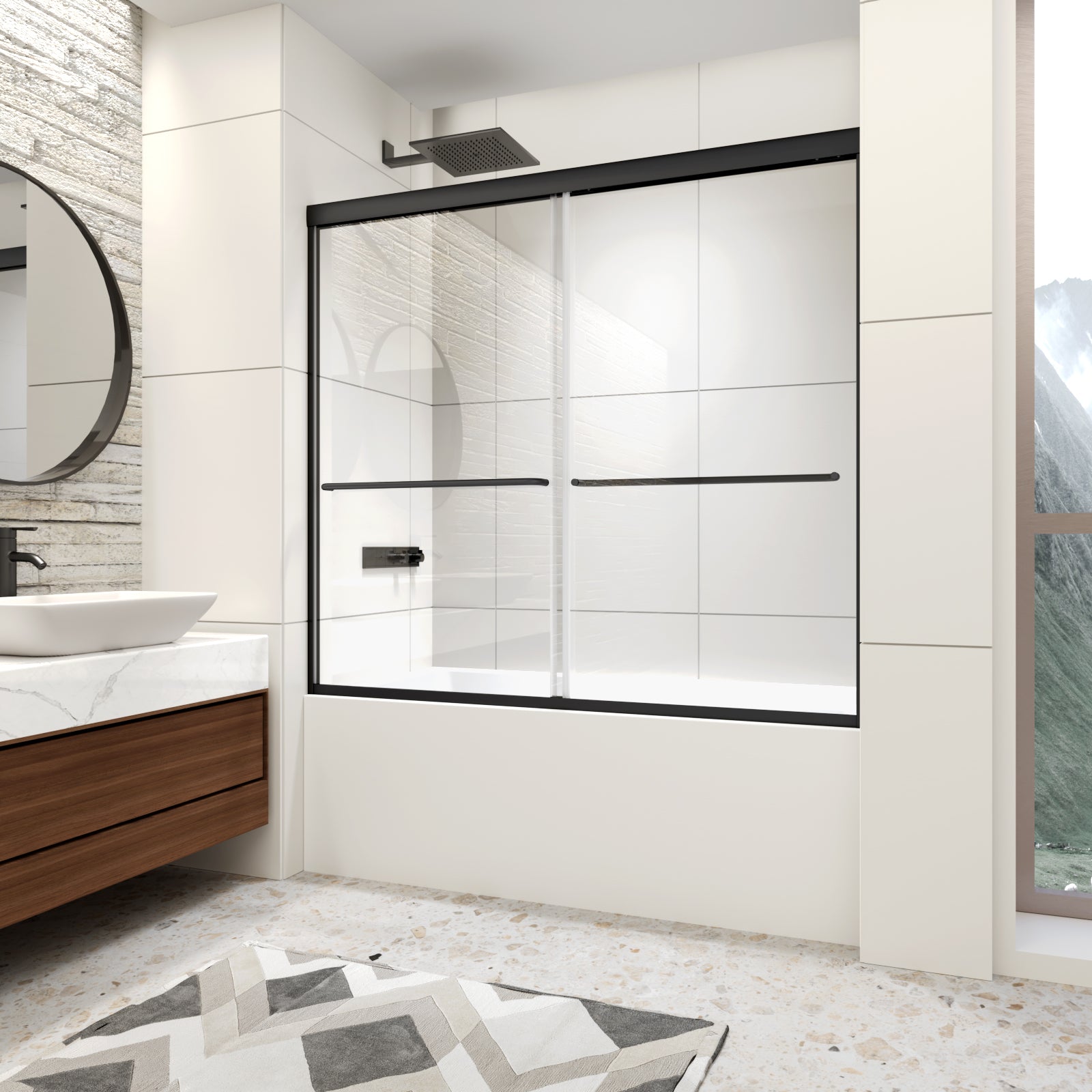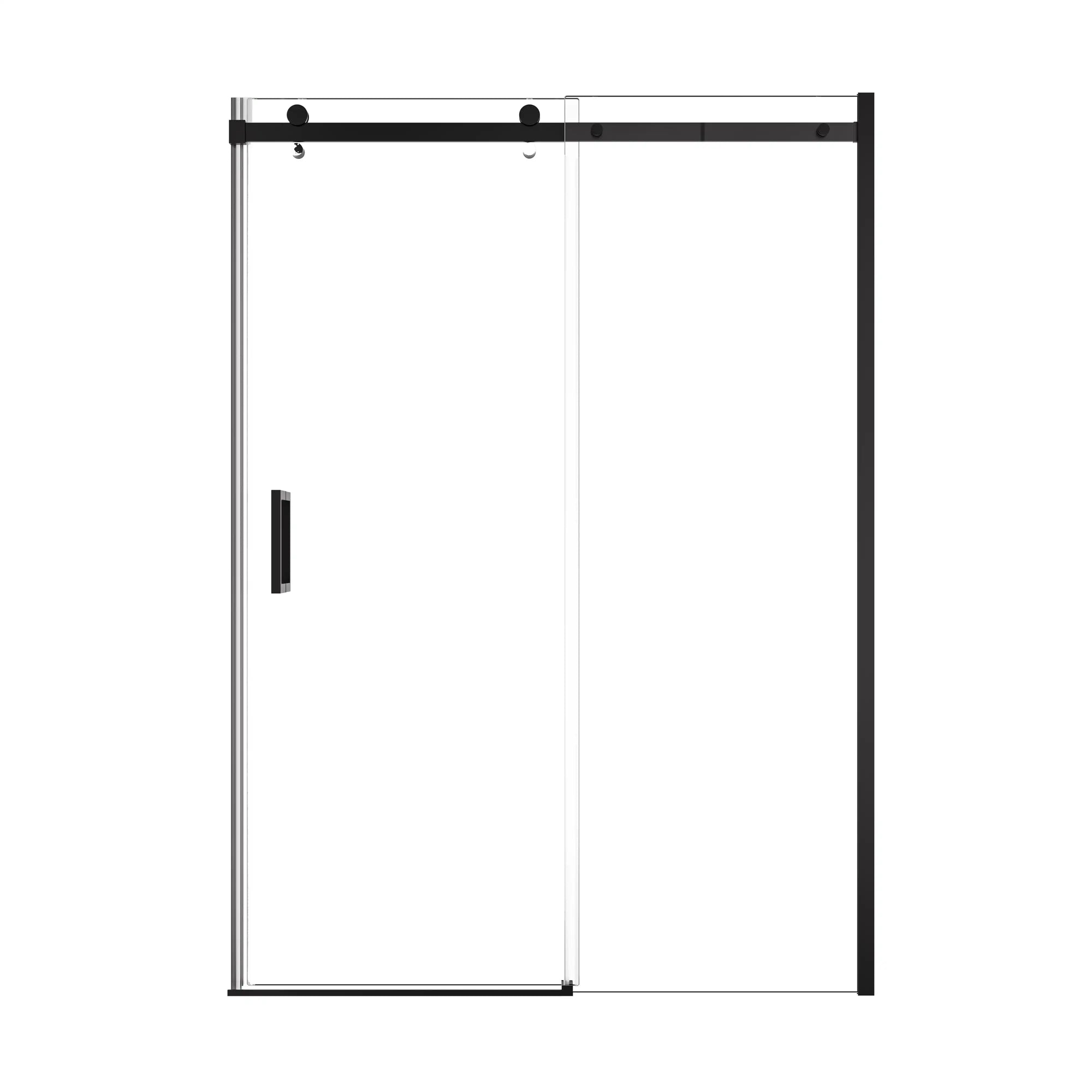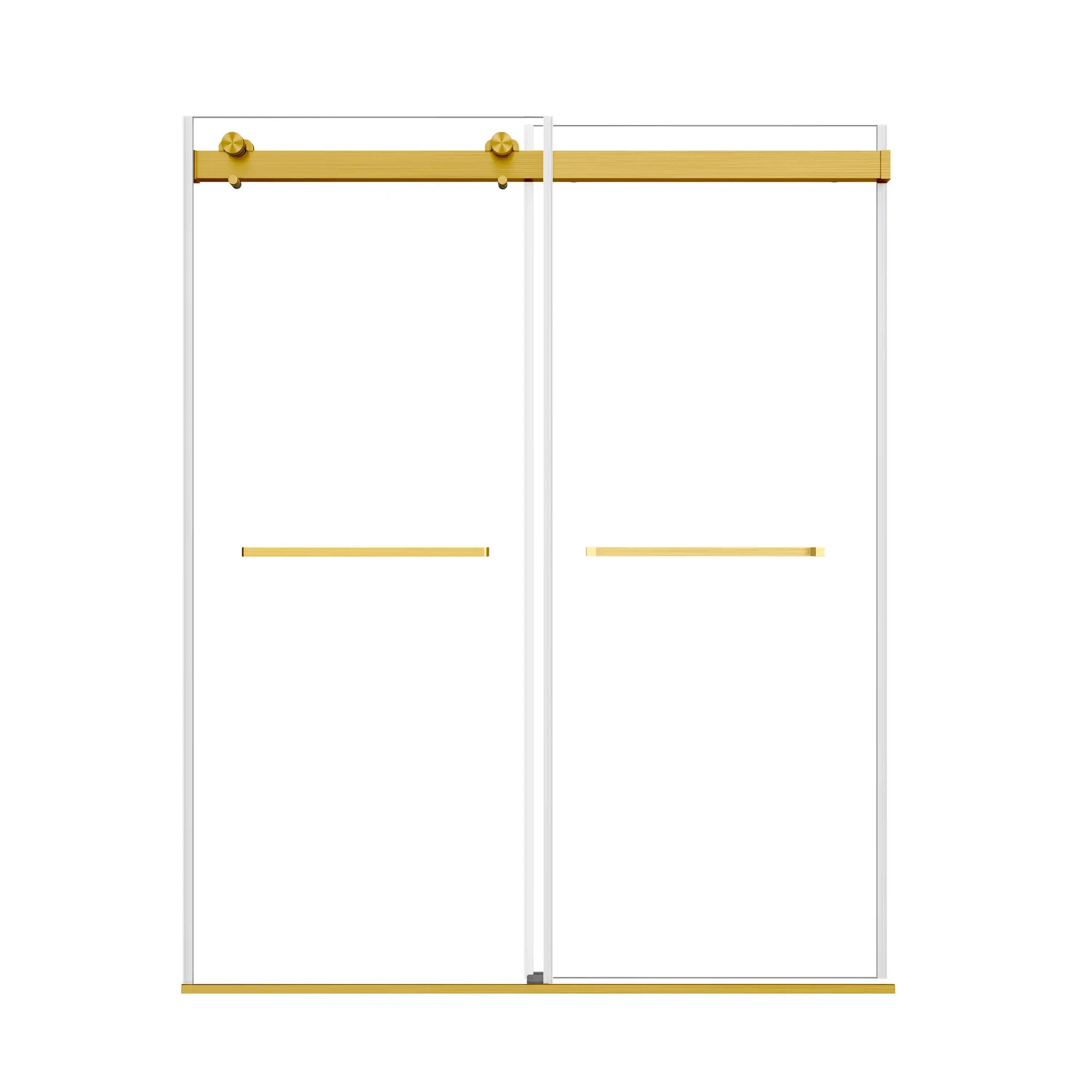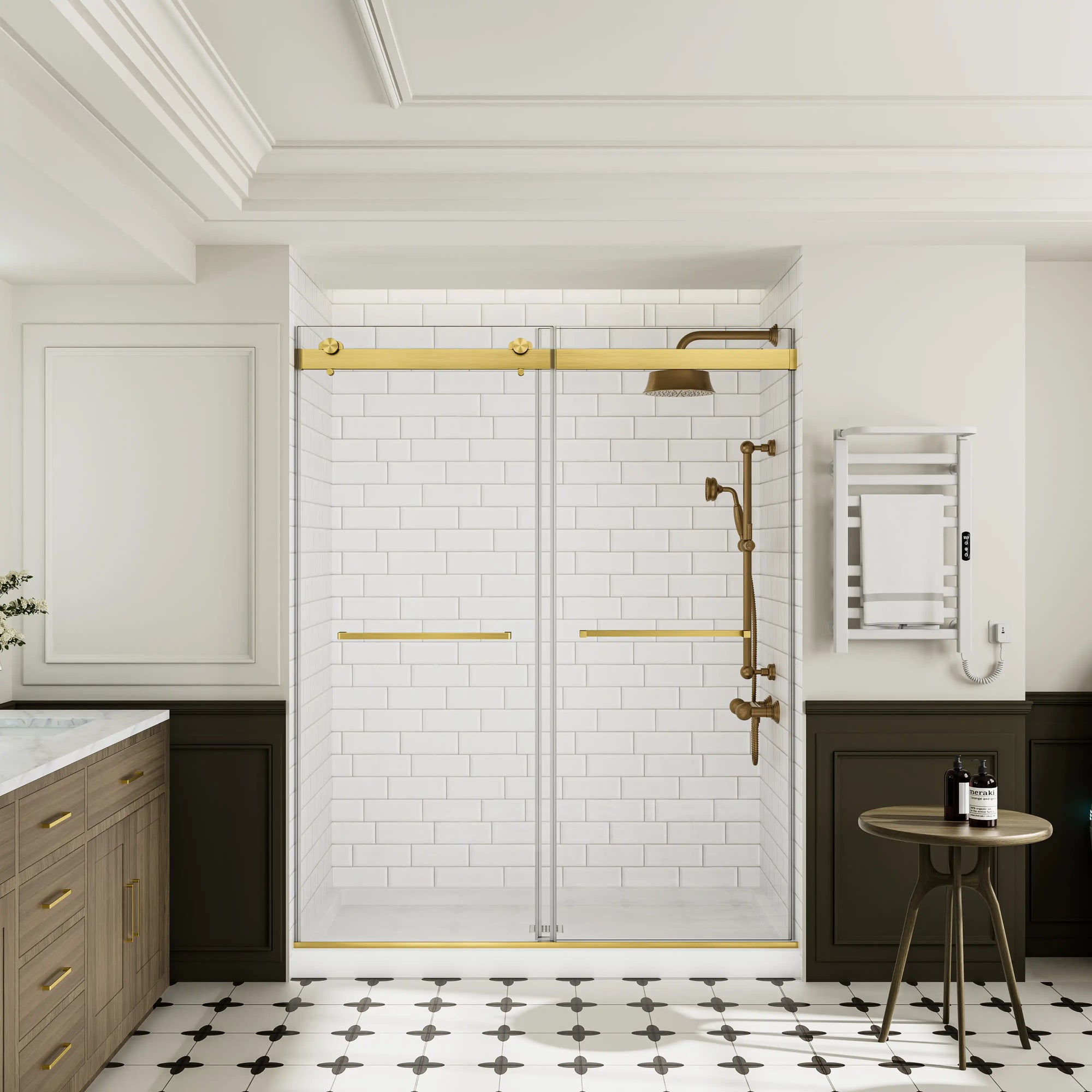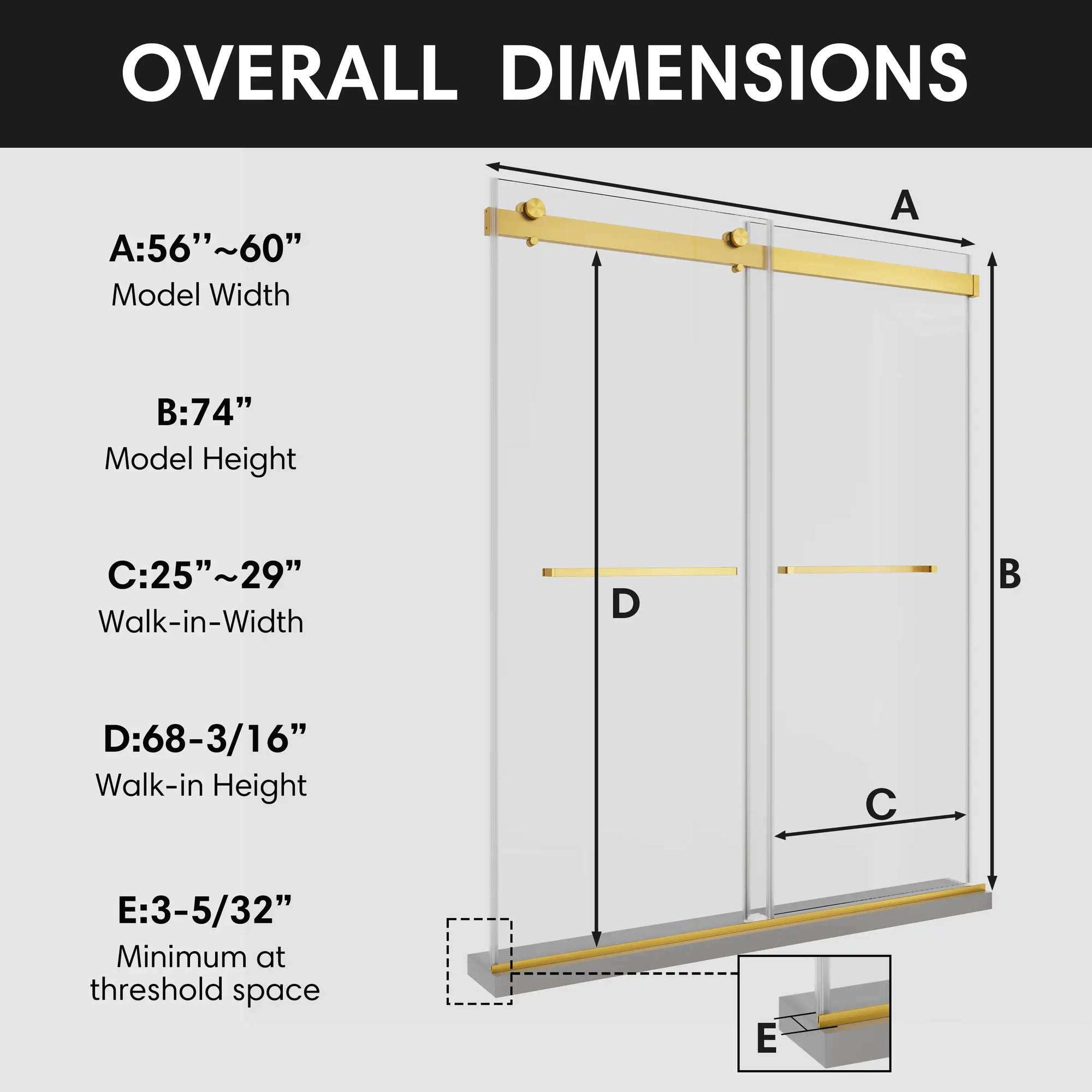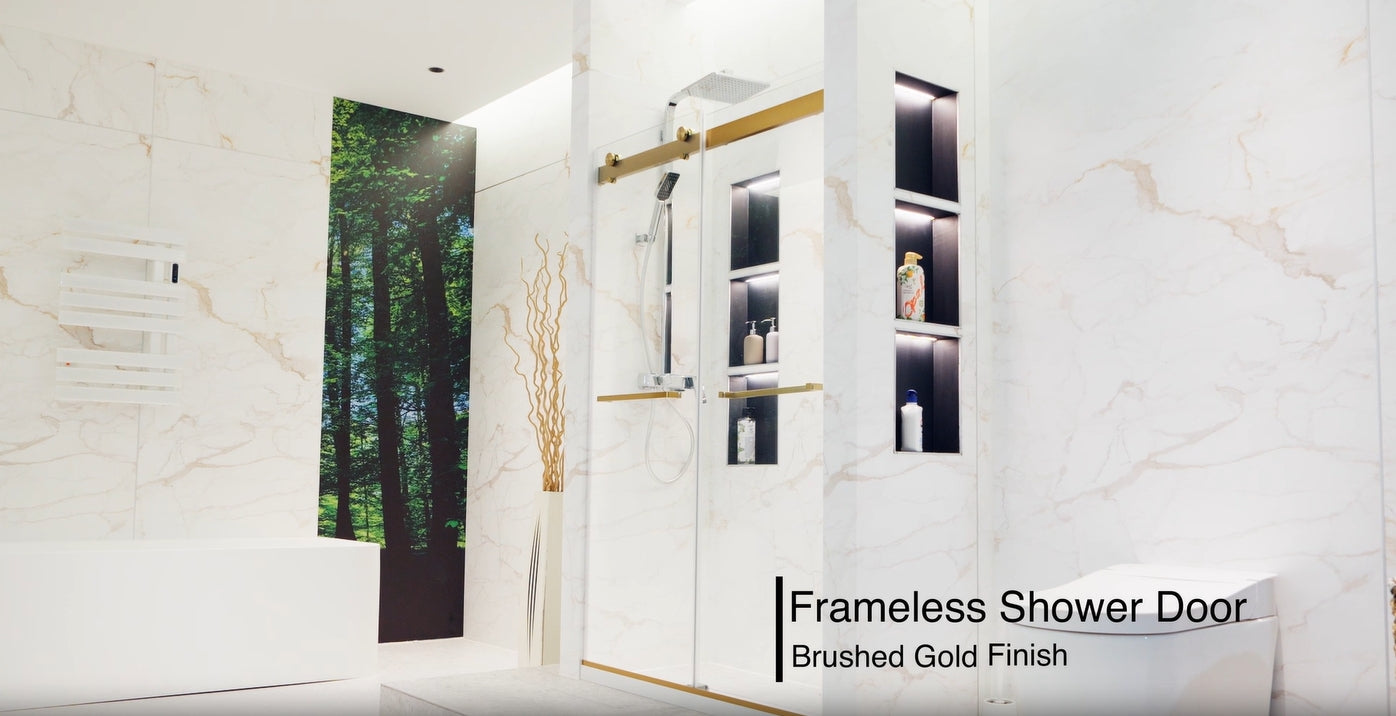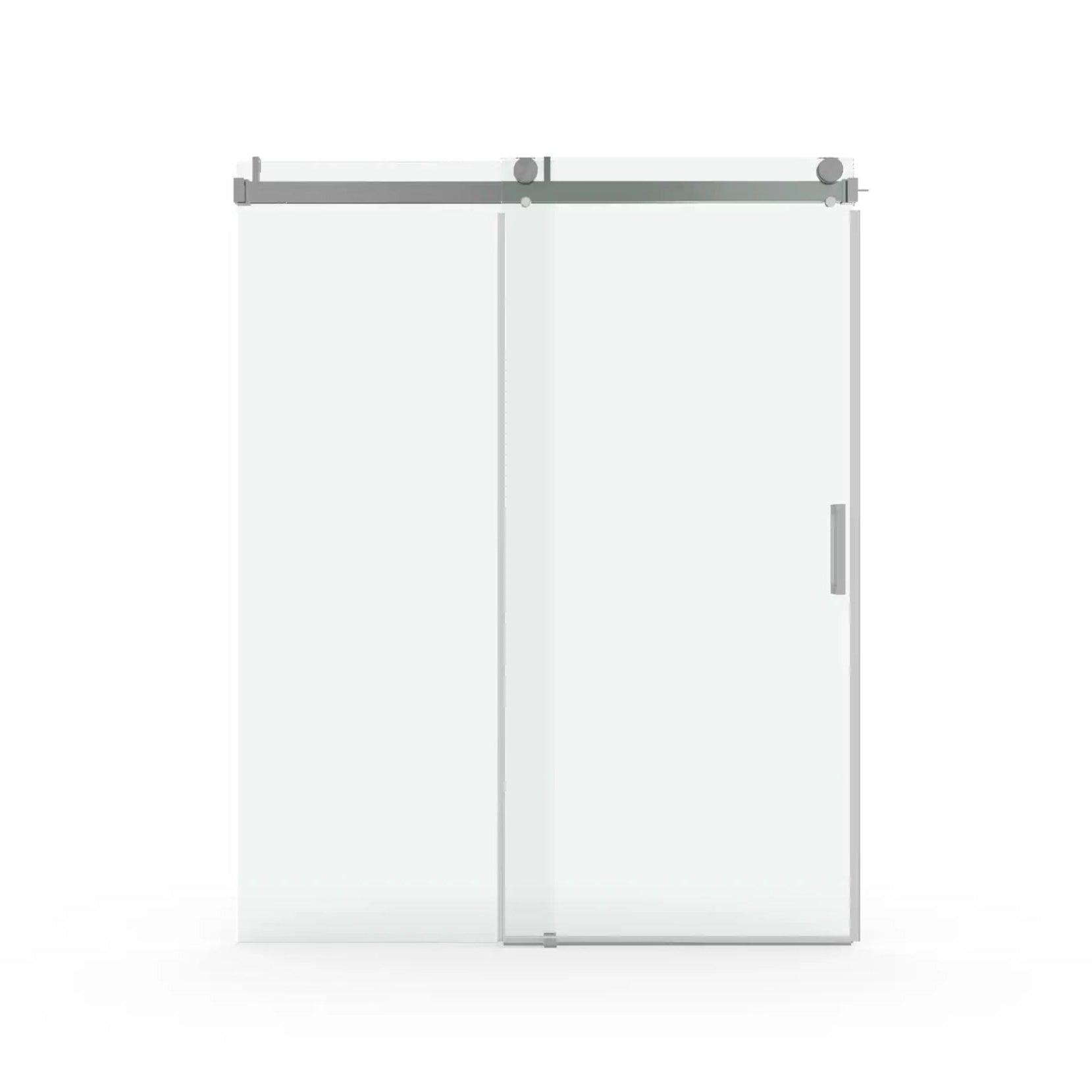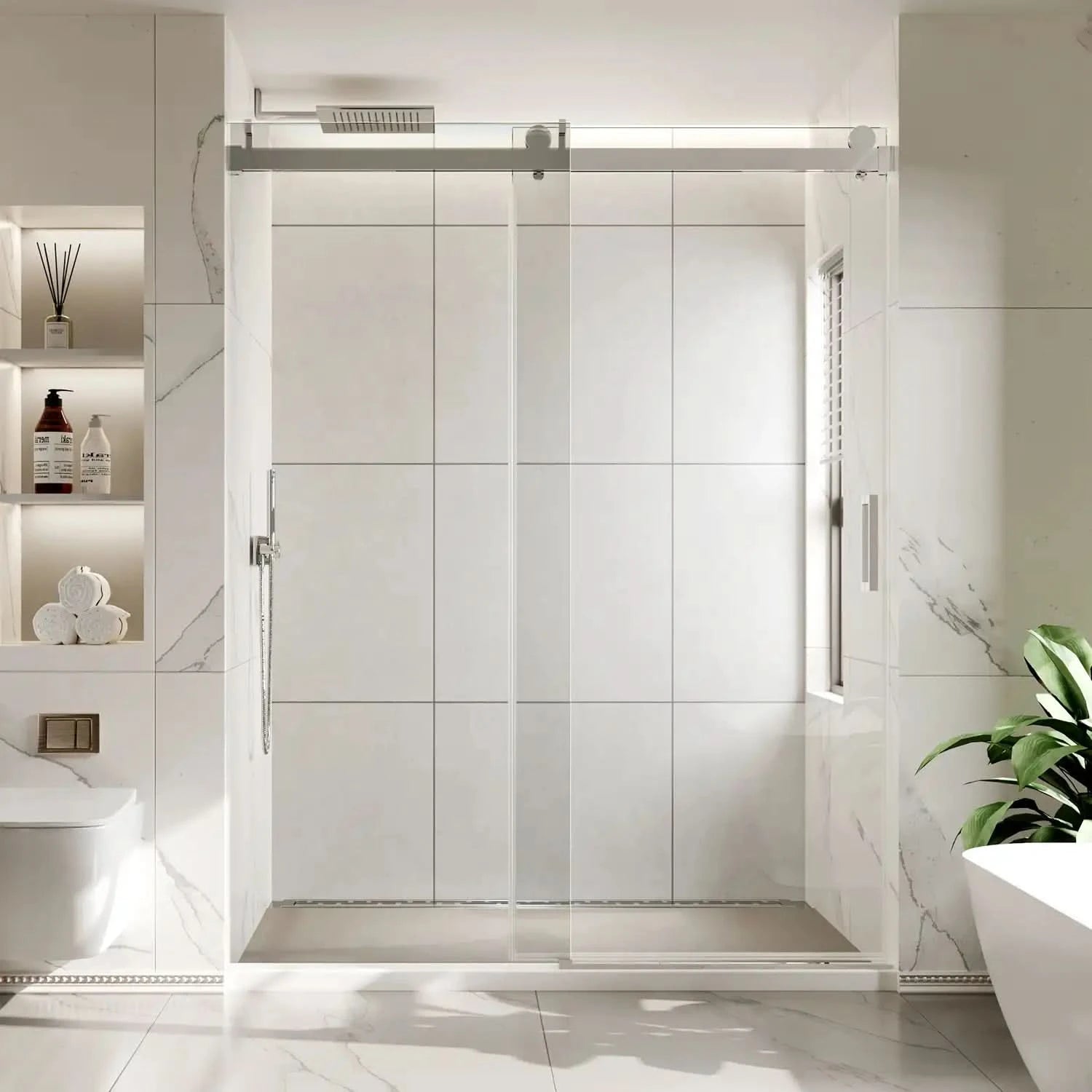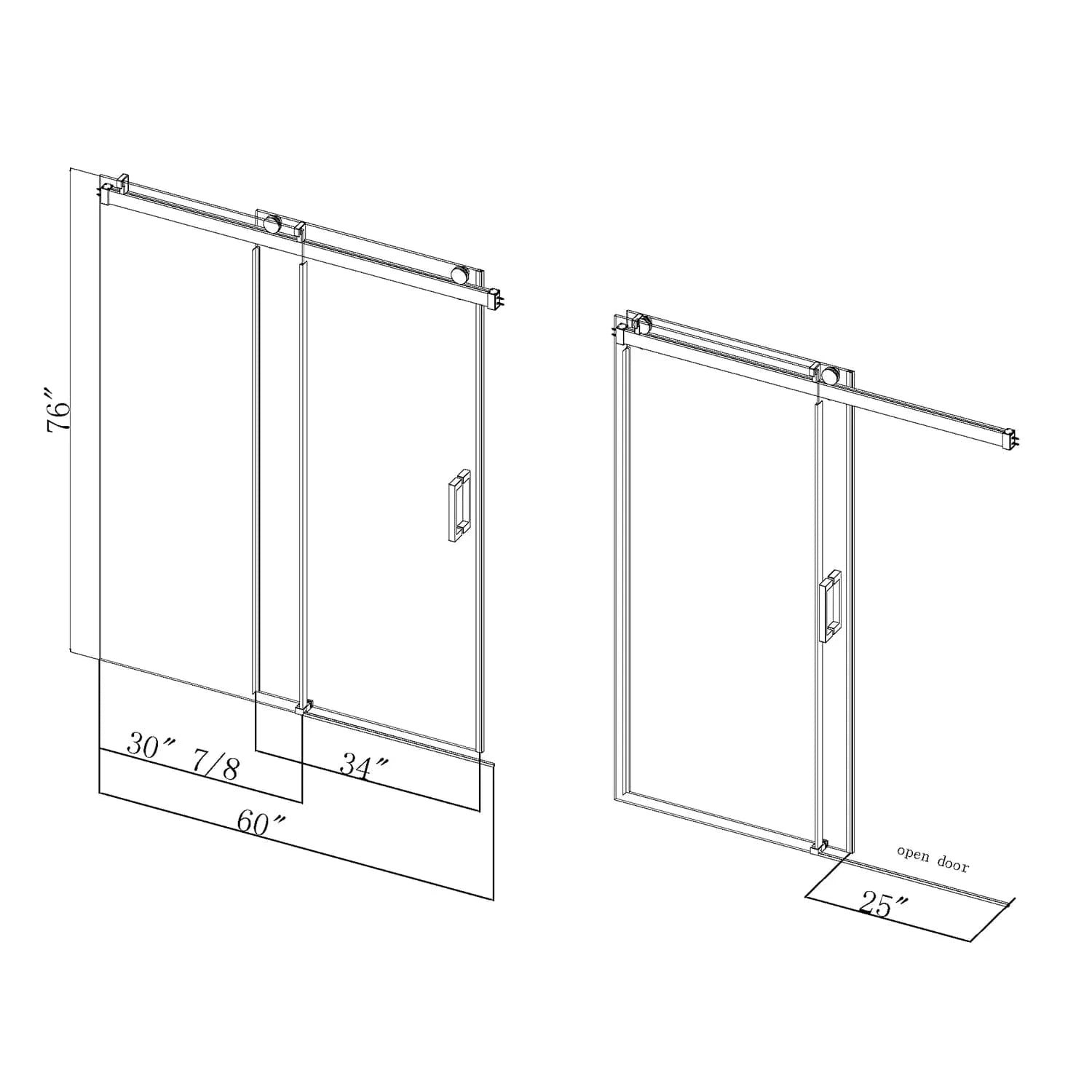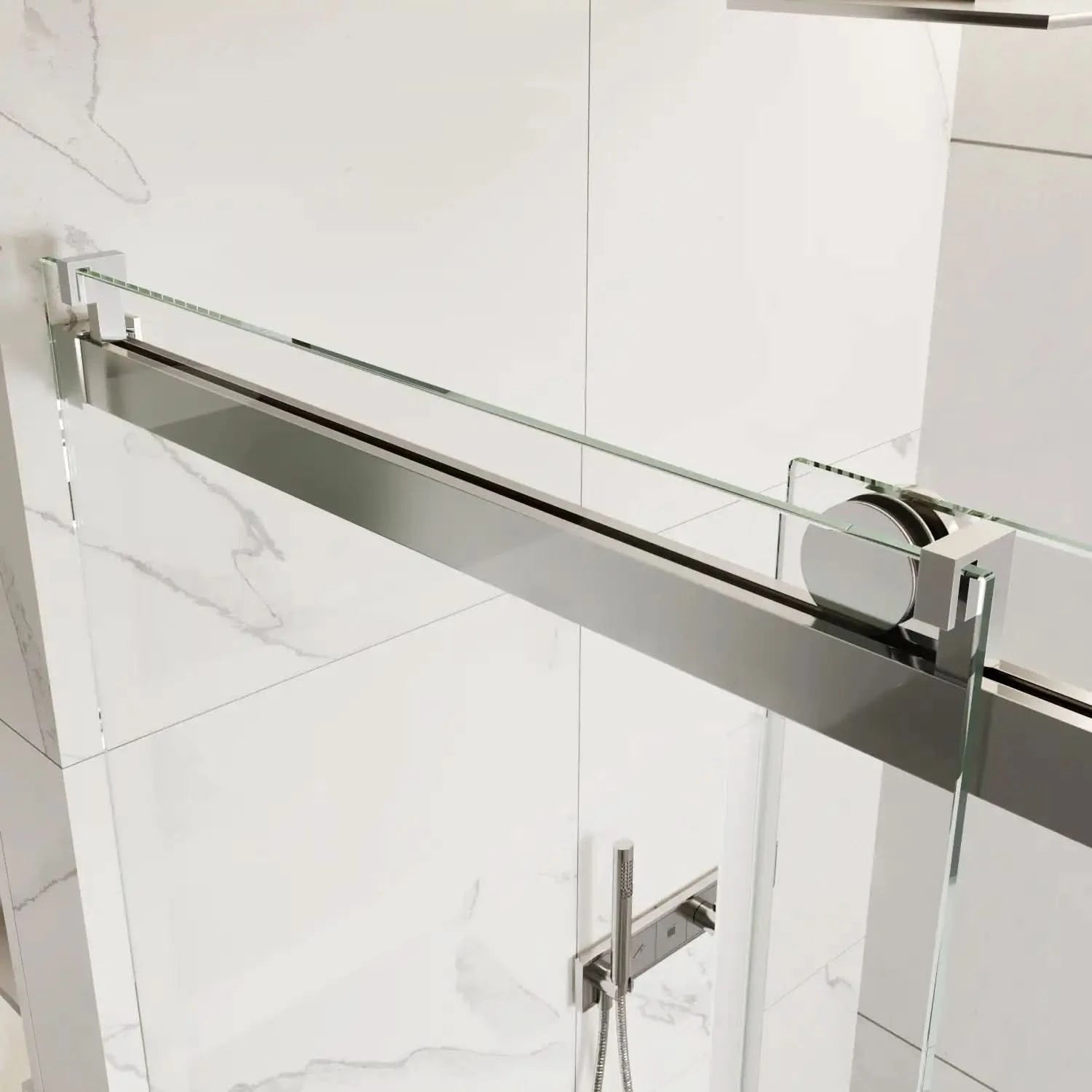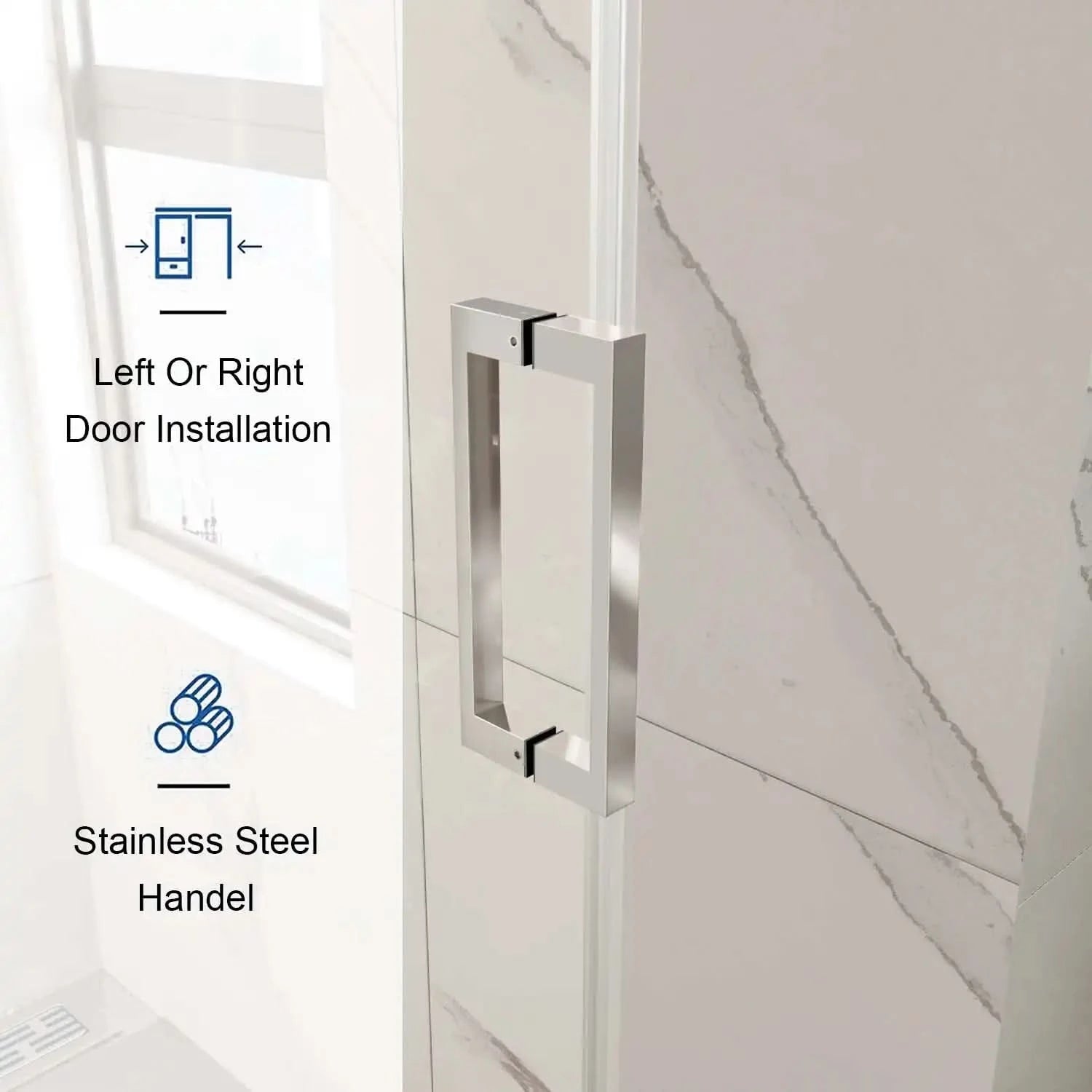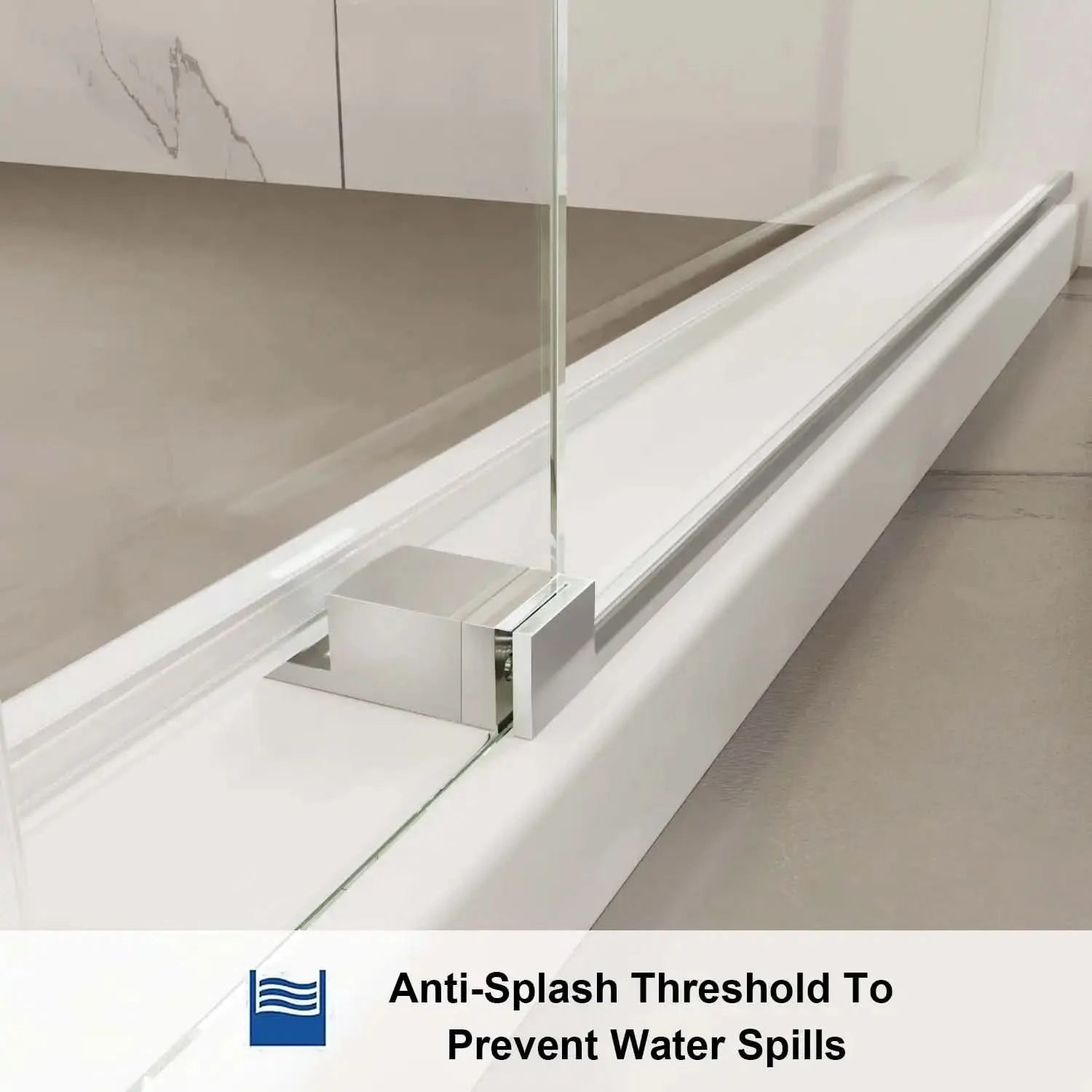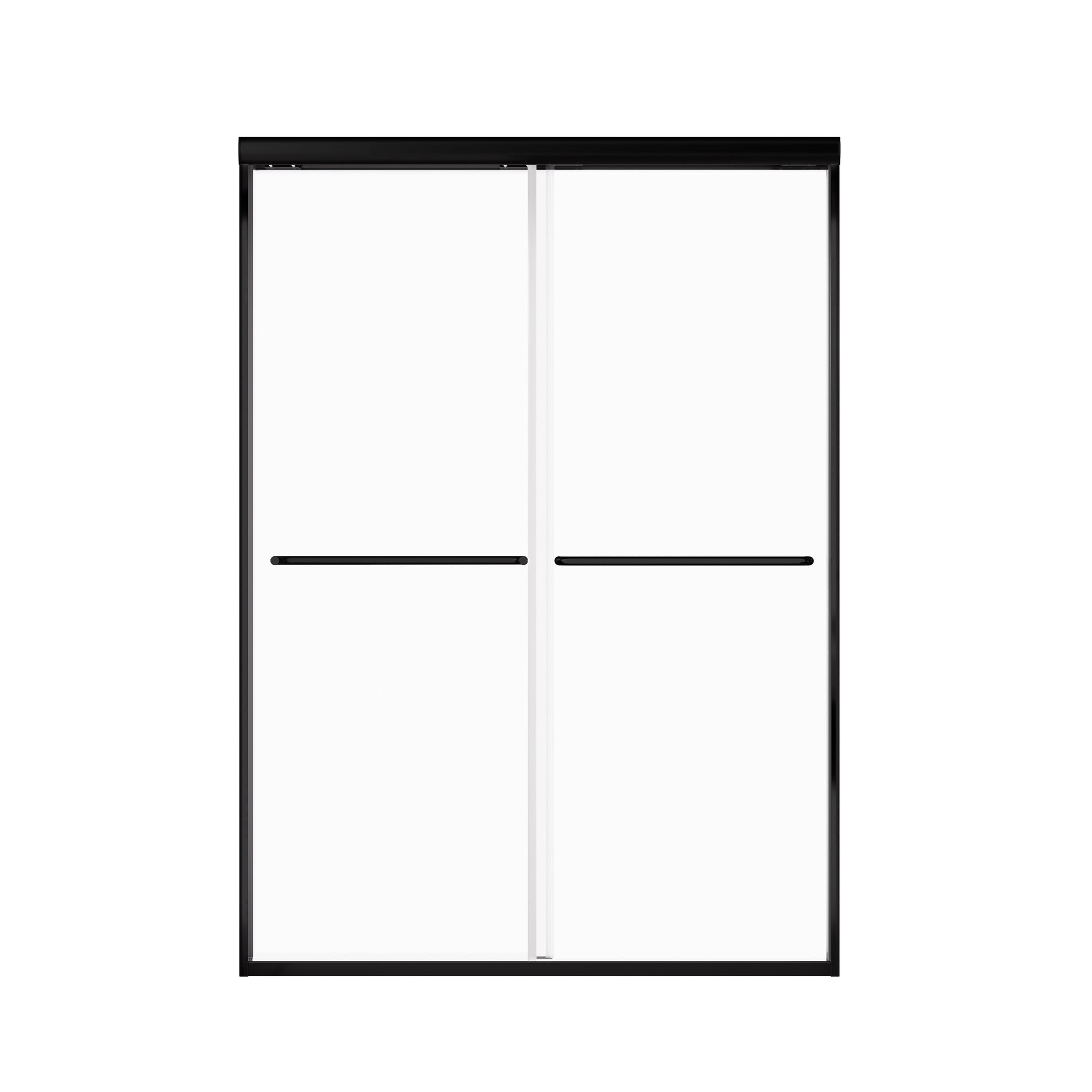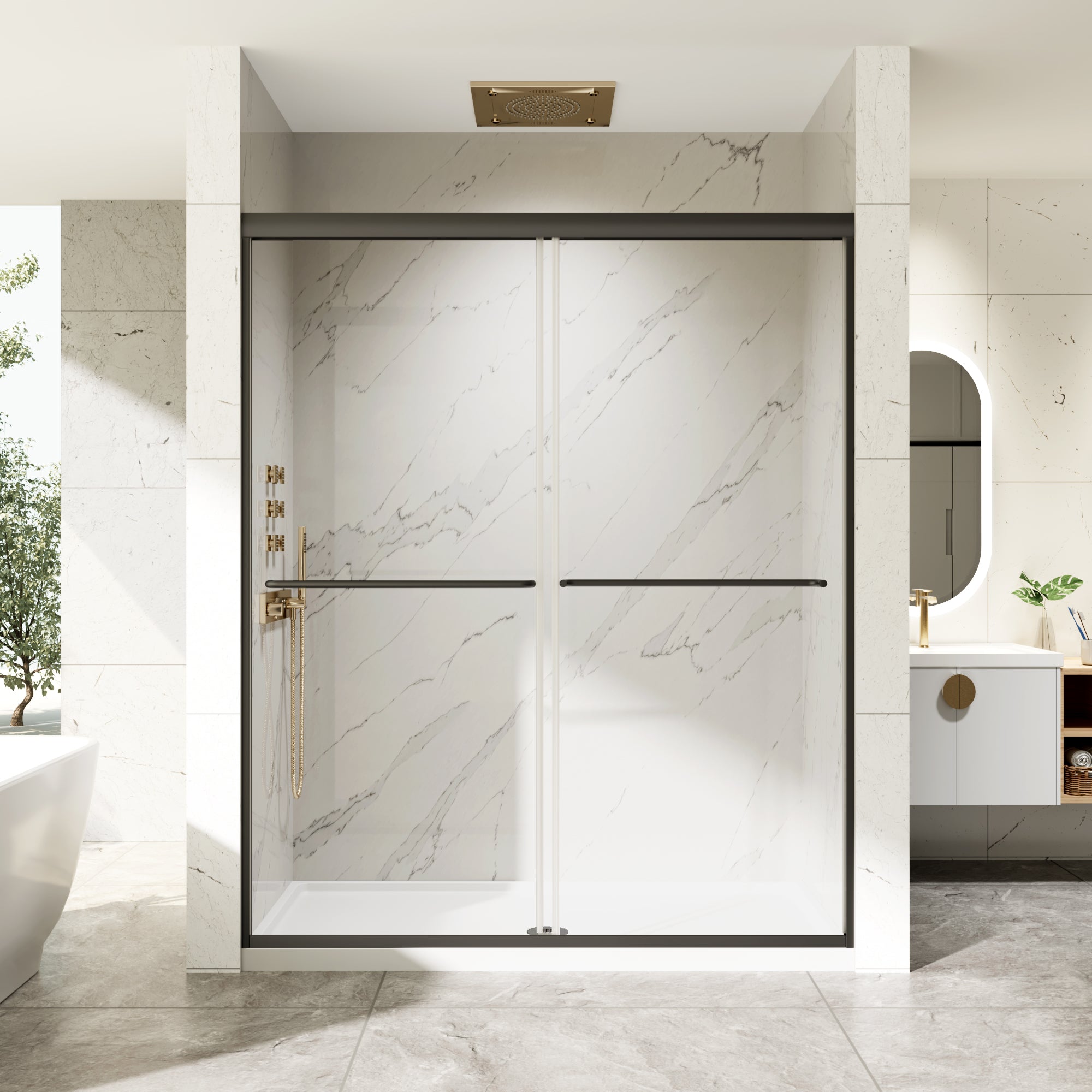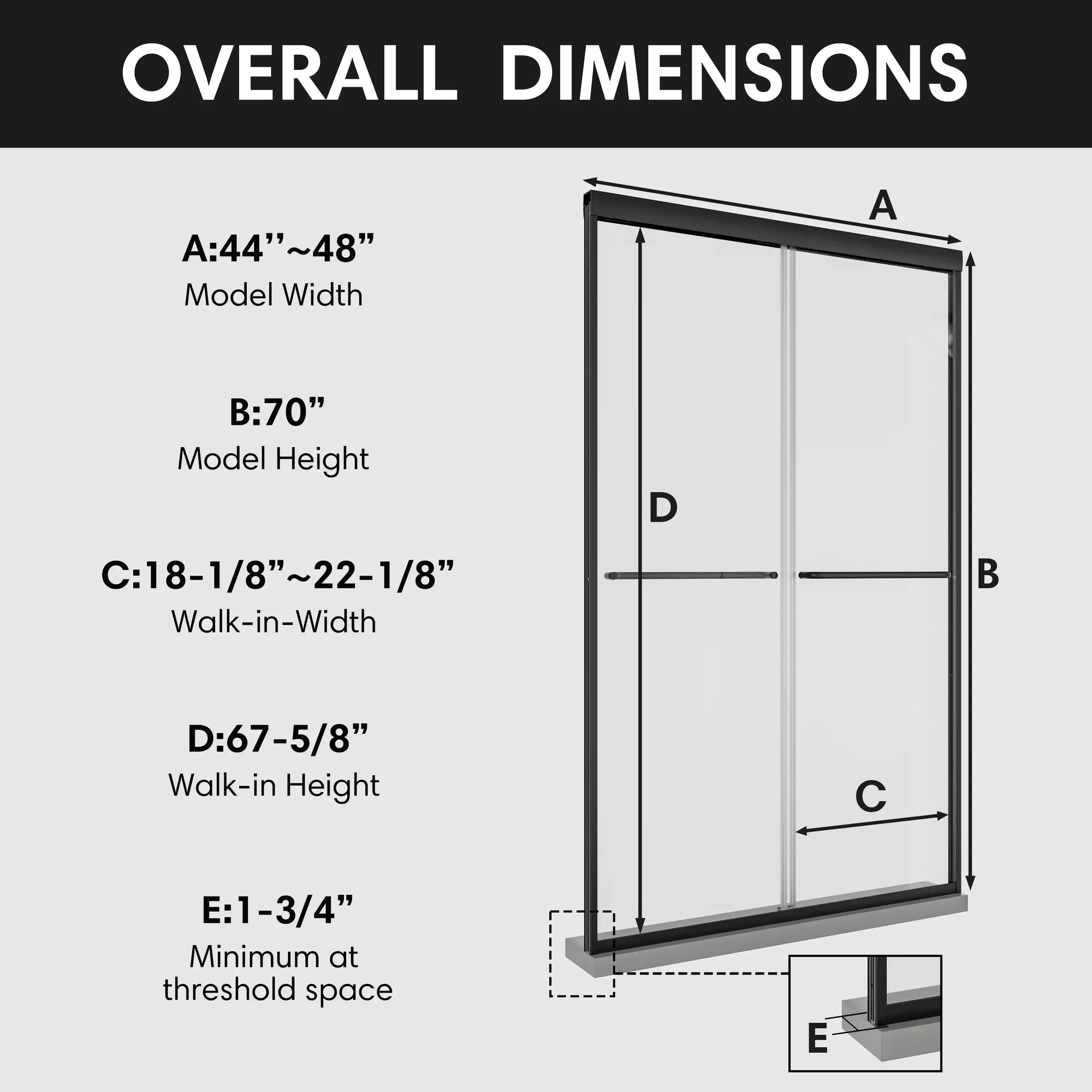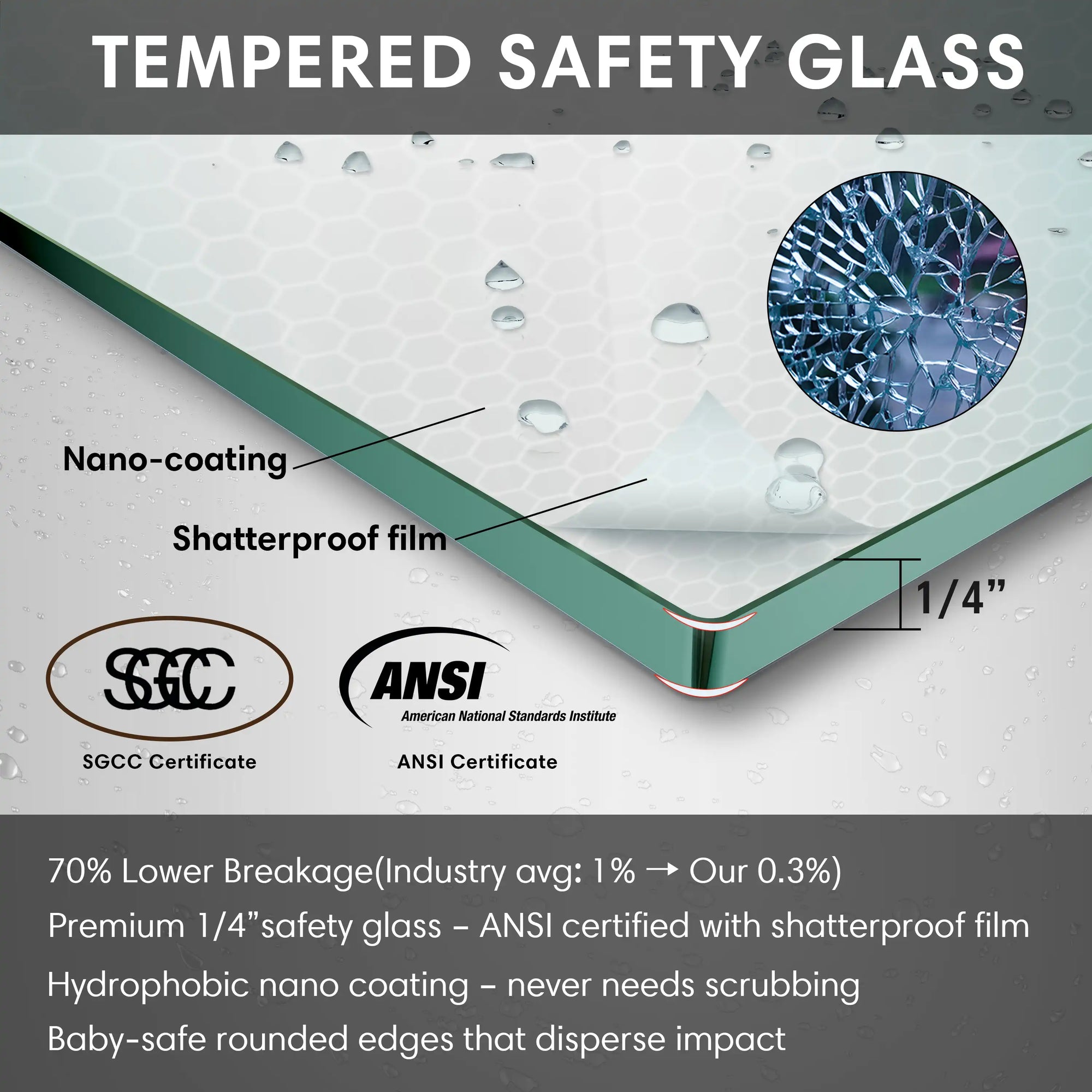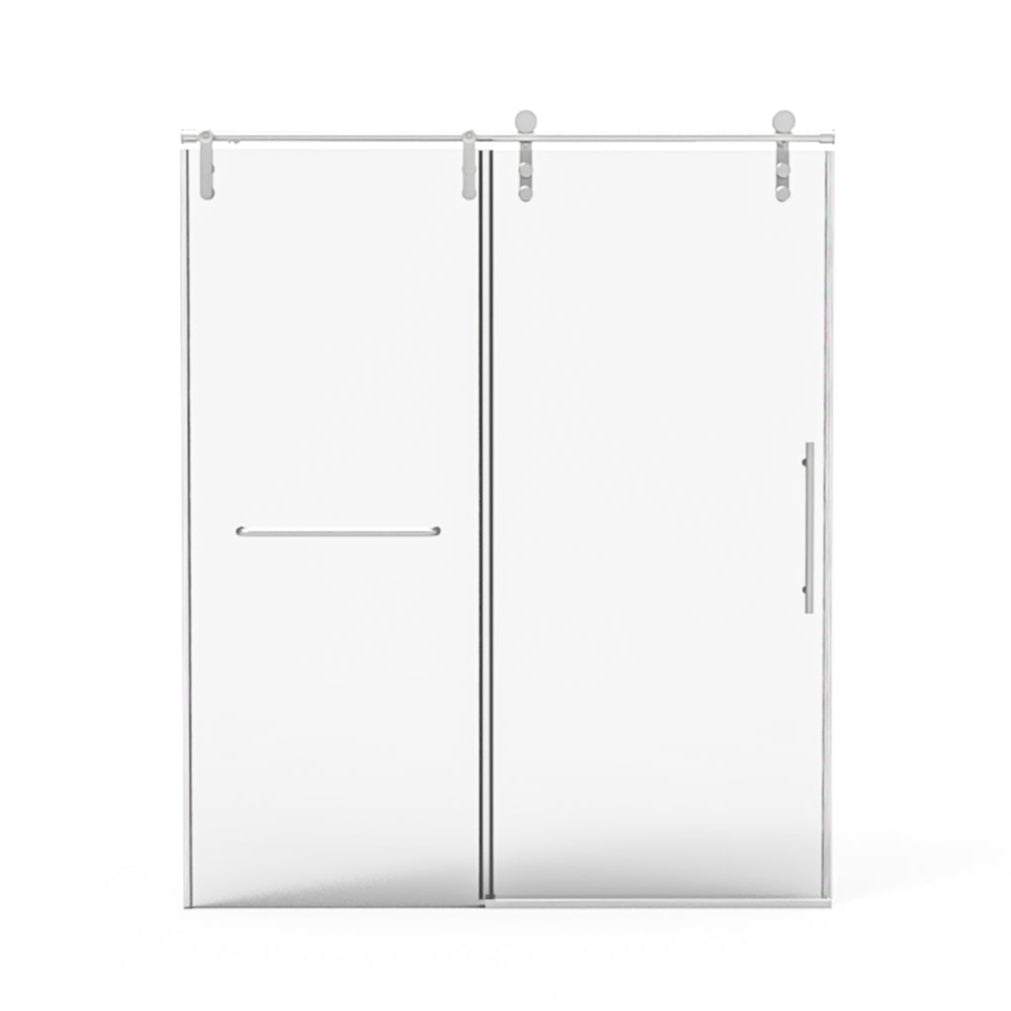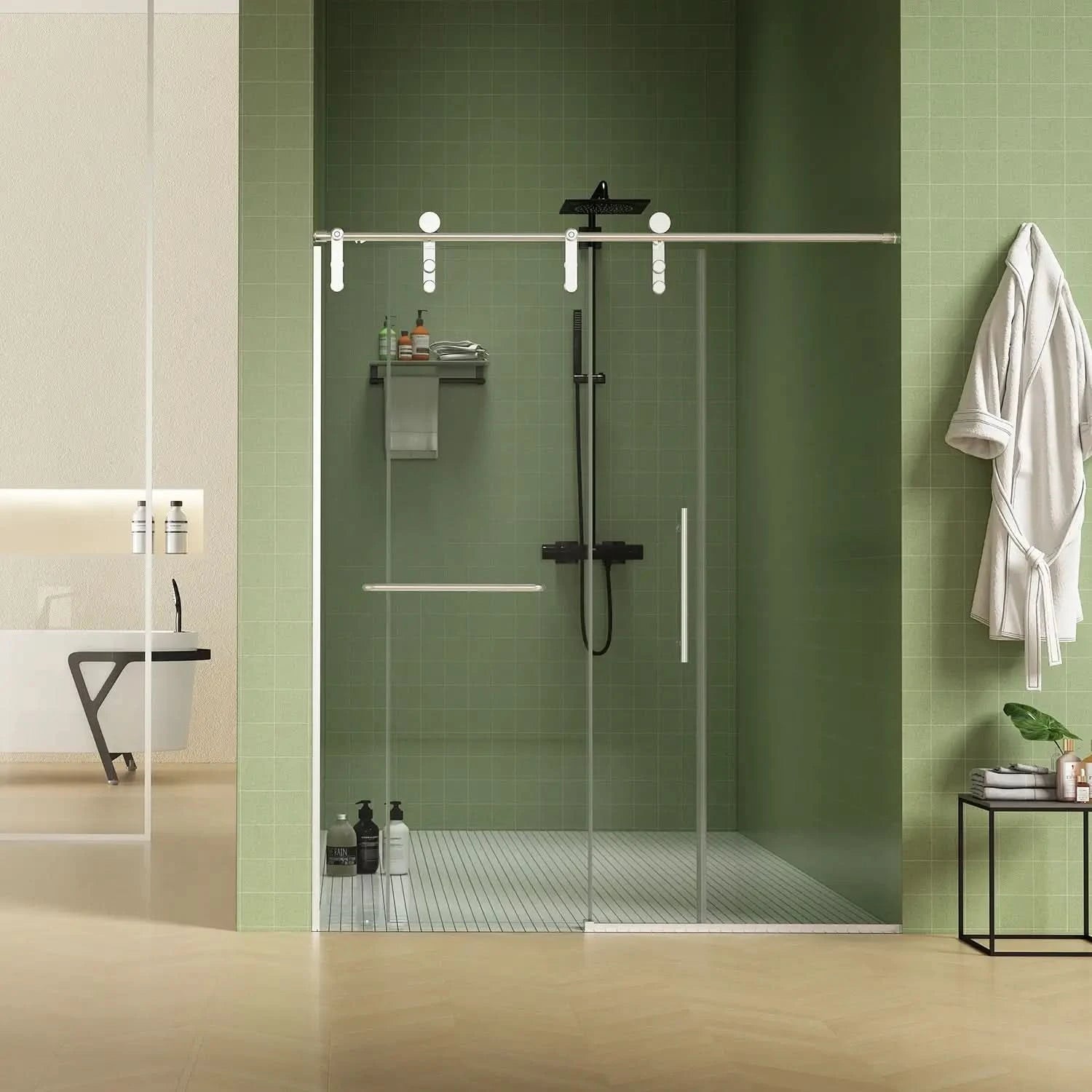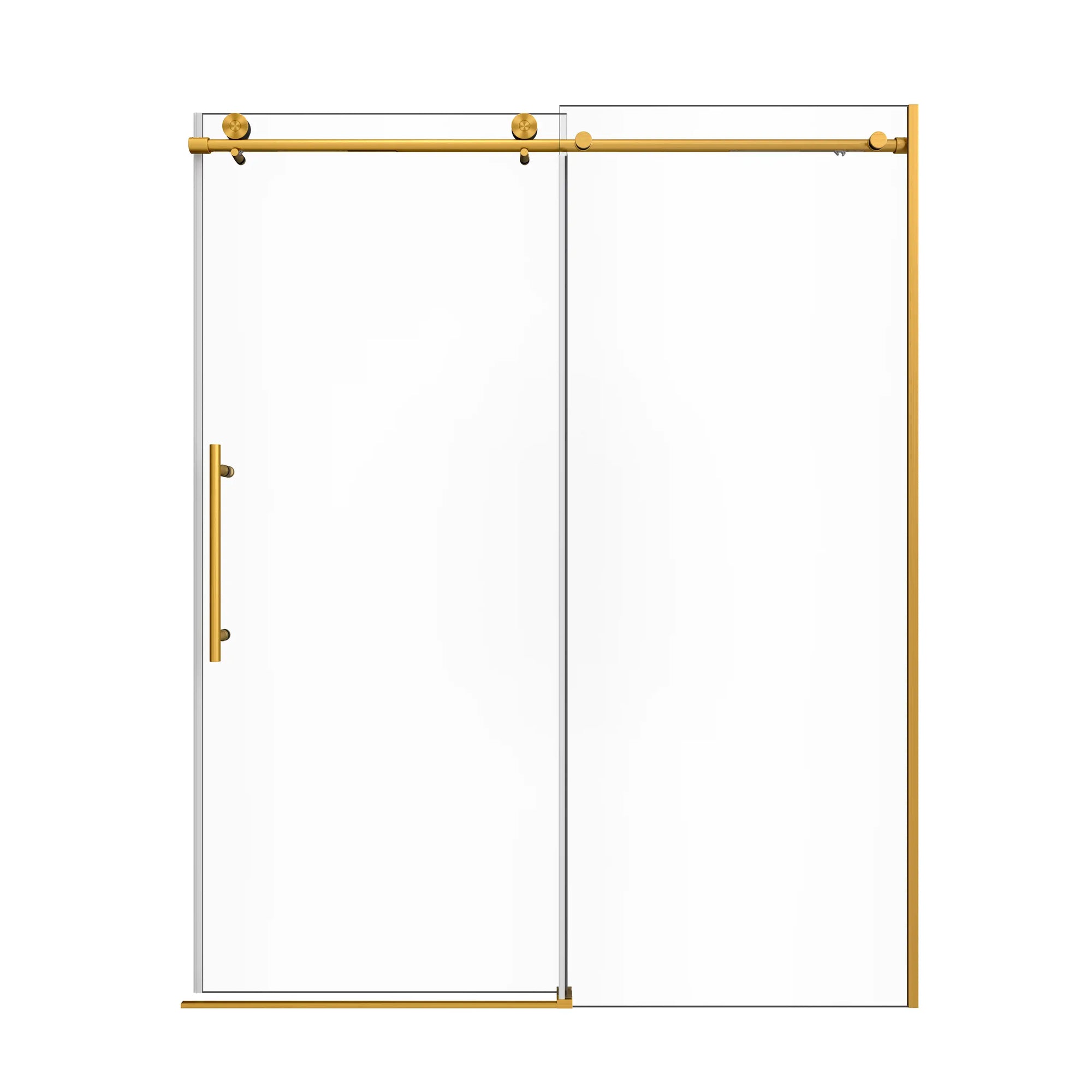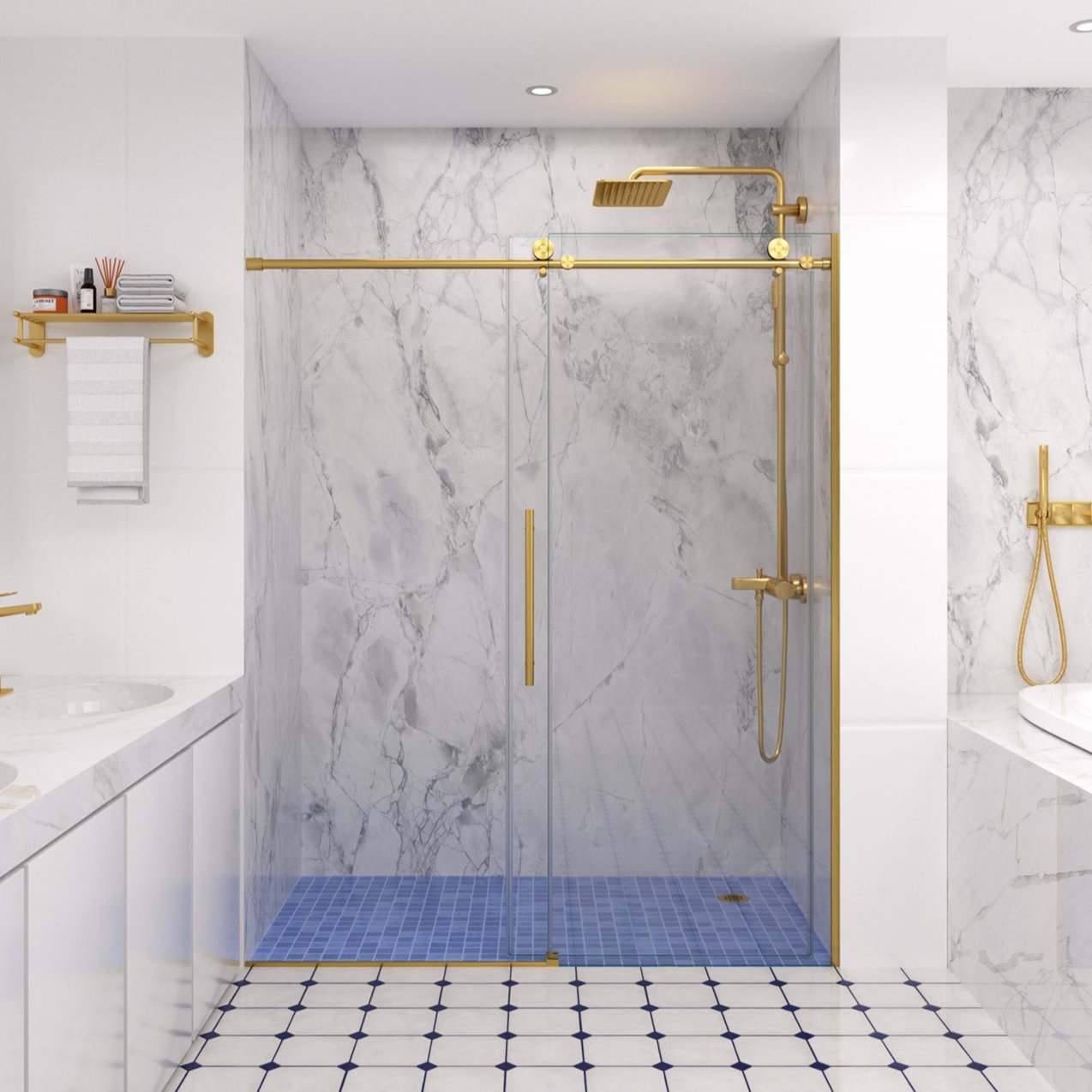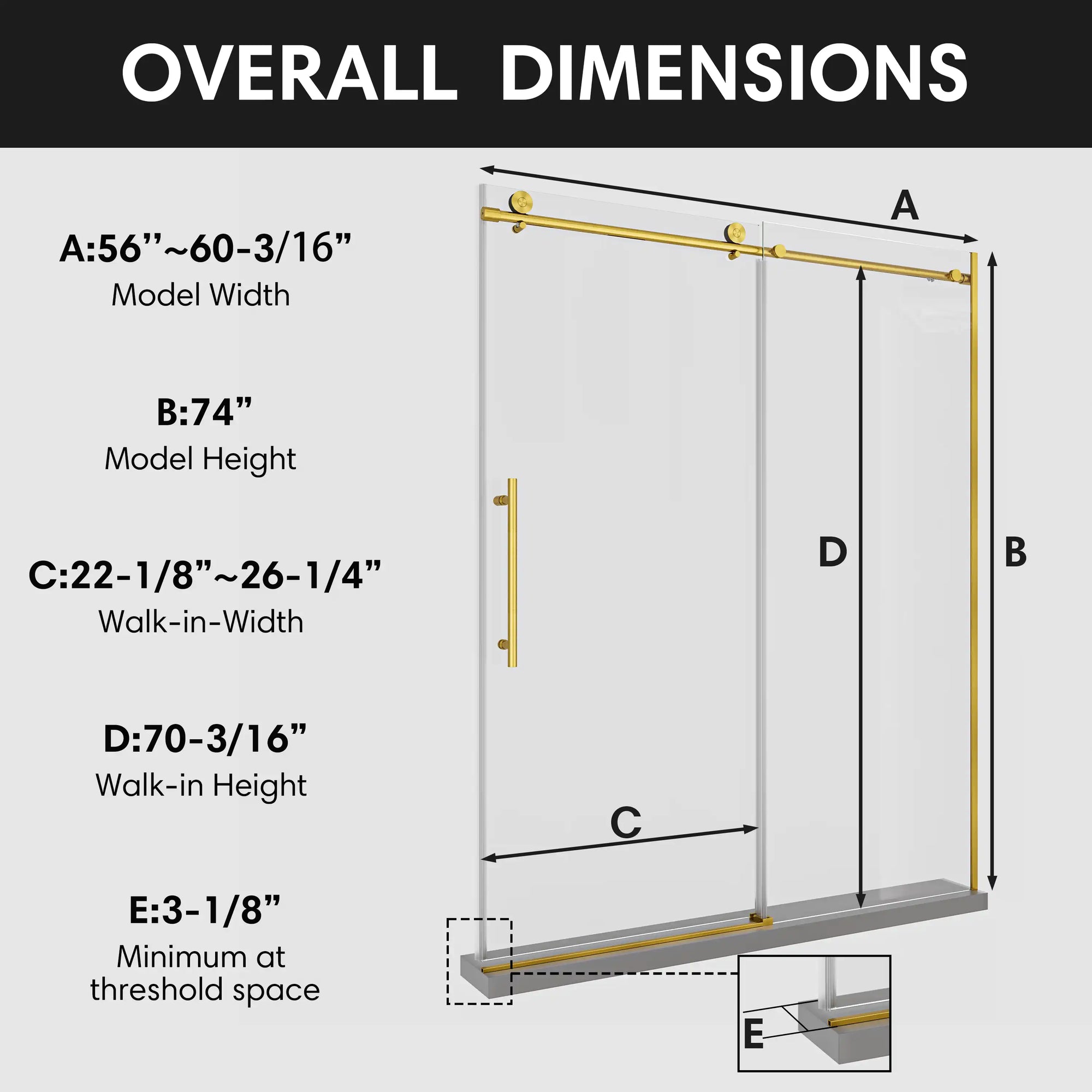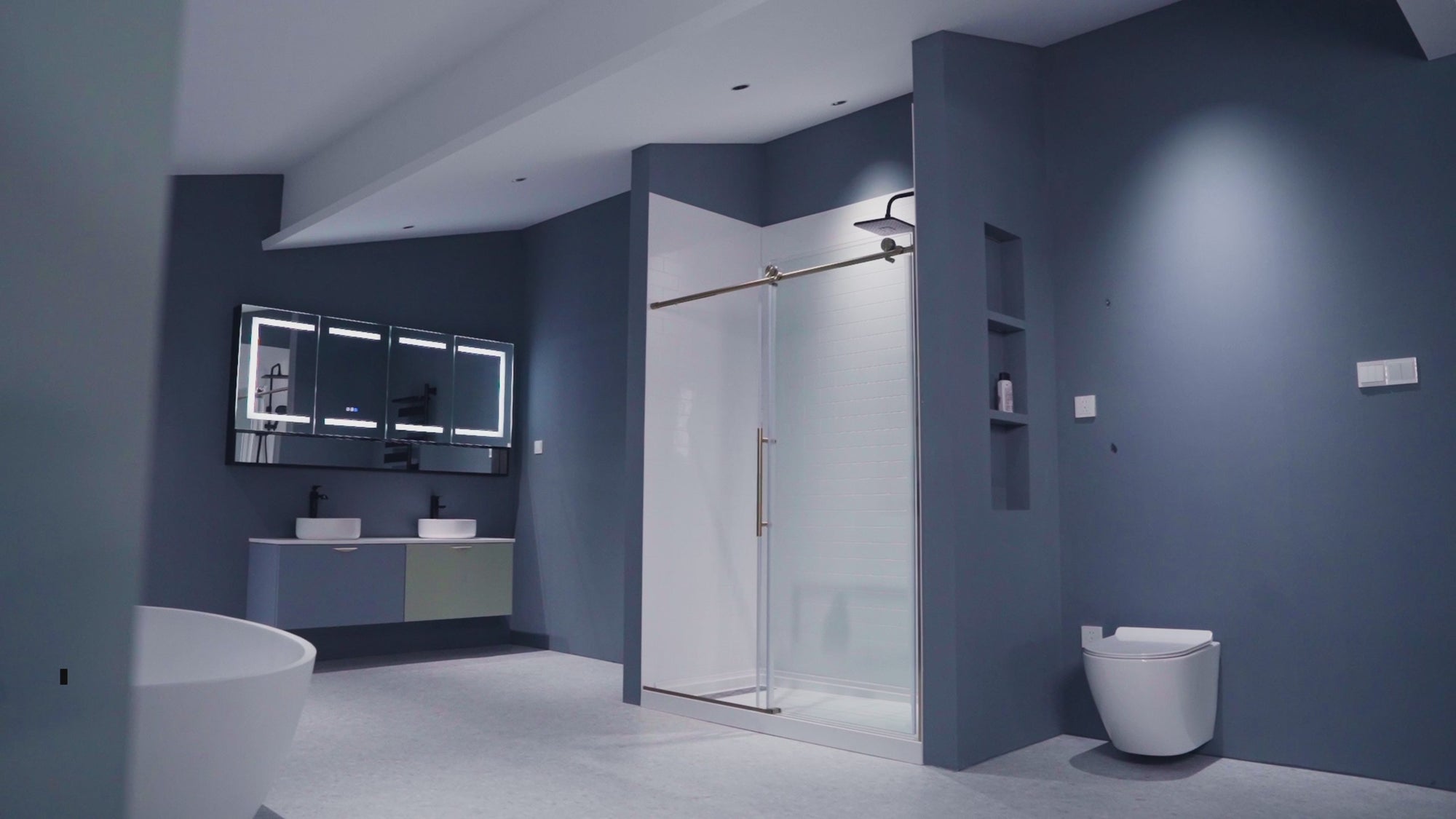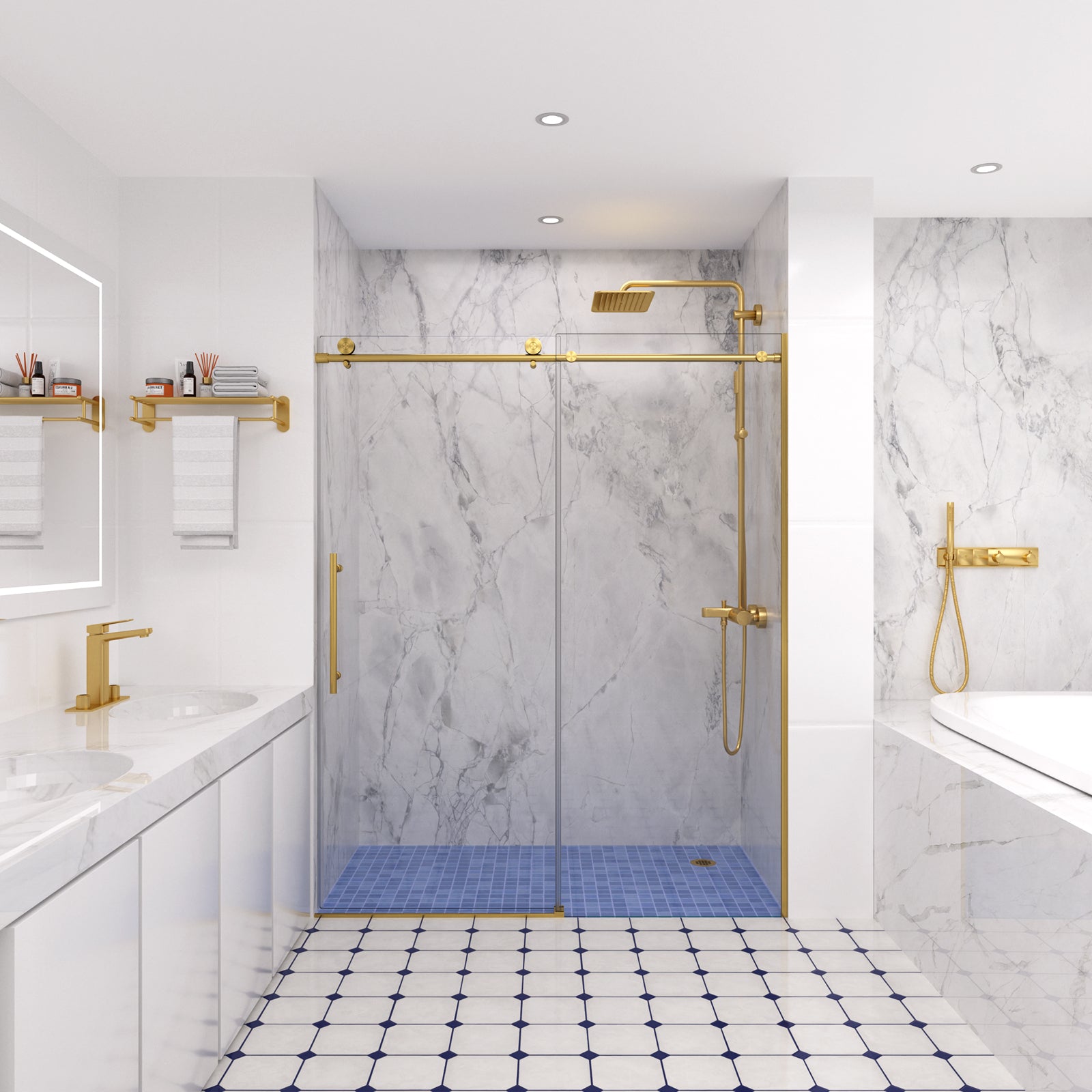Table of Contents
- Stabilized Top Track – The Hidden Spine of Longevity
- Edge-to-Edge Water Sealing Functional Gasket Design (It Really Seals!)
- Soft-Close Damping and Acoustic Shock Control
- Putting It All Together: The Sliding Door You Don't Need to Babysit
- Final Word: Compare All You Want, But Read the Fine Print
When you're shopping for a shower glass door sliding system, it's easy to get caught up in looks. Sleek glass, frameless design, brushed aluminum tracks—they all seem appealing at first glance.
But the honeymoon with a lousy sliding shower door is over in a hurry. Perhaps it begins with a bit of rattling. The door starts to shake, and make the door knob jiggle. In the end, you're left with a gentleman's puddle of water that leaks out of it after each shower. Sound familiar?
That's where Model 2112 from Ace Decor steps in—designed not just for aesthetic performance, but for structural integrity. In this article, we're not going to focus on superficial beauty. We're going to talk about what's beneath the surface: how this shower glass door sliding system is engineered to eliminate the three biggest user complaints:
- Wobble during use
- Noisy operation
- Water leakage at the edges
Let's pop the hood and see what's so different about Model 2112.
1. Stabilized Top Track – The Hidden Spine of Longevity
Virtually all sliding shower doors are dependent on their top track for structural integrity. But some tracks are more equal than others. The line between a door that remains firm and in place and one that starts to float and rattle has to do with track design, materials and how it was put together.
The Importance of the Top Track
In a typical shower glass door sliding system:
- The upper track supports the weight of the movable panel(s).
- Rollers travel along or under the track to facilitate movement
- The door shake body also experiences impact at the time of opening/closing the door heavily.
If a track is of a relatively thin form and without internal reinforcement, it begins to warp on application of force, primarily in a humid state which accelerates the building fatigue.
That's when you get:
- Slight misalignment → door begins to "wobble"
- Uneven weight distribution → rollers wear out
- Tension between glass and hardware → noise, premature failure
The 2112 Solution: A Reinforced Dual-Layer Rail System
The Model 2112 features a double-thick anodized aluminum top track, custom-extruded with:
- Internal stabilizing fins to resist flex
- A dual anchoring system that bolts the track into both the side wall and ceiling support
- Anti-corrosion treatment for damp or coastal installations
The result?
- Glass glides with almost no lateral drift
- The door feels solid in hand, with no side-to-side shake
- The whole circuit left counteracts the moment arms from uneven pressures (as they appear during a fast slide)
Engineering Snapshot:
| Feature | Standard Sliding Door | 2112 Sliding System |
|---|---|---|
| Top Track Thickness | 1.2 mm | 2.5 mm dual-wall extrusion |
| Material | Basic anodized aluminum | Marine-grade alloy |
| Track Flexibility | High (bends under weight) | Near zero |
| Wall Fixation | End caps only | Full-span bracketed anchors |
So when a customer first slides the 2112 door and says, "Wow, that feels different" — they're feeling applied physics, not merely style.
And if you're working with tight bathroom layouts, it's worth learning why sliding shower doors are the top choice for small bathrooms — they maximize functionality without cluttering the space.

2. Edge-to-Edge Water Sealing Functional Gasket Design (It Really Seals!)
Water leakage is one of the most common reasons homeowners regret their sliding door purchase.
Why? Because many brands depend on decorative sealing: little vertical bumpers or silicone beads that appear to "clean" up a storm when you install them, but that wear down fast.
Where Competitors Fail:
- Tiny gaps between glass and wall aren't addressed
- Corner joints rely on adhesive, not mechanical seal
- Sealing is often added after installation, not built-in
On top of that, many brands choose to cut corners on their metal accessories as well — if you're comparing parts, understanding the difference between 304 stainless steel and chrome-plated accessories is key to preventing rust and long-term structural fatigue.
The result?
- Water sneaks out from the bottom corners
- Joints with silicone sealer will need to be shortened on a regular basis
- Stains and fungi develop at the glass-to-wall junctions
The 2112 Solution: Engineered EPDM Edge Seal Extrusions
Model 2112 integrates a full-height EPDM compression gasket into the vertical edges of each glass panel. Unlike basic PVC strips, EPDM:
- Maintains elasticity across temperature swings
- Repels mold, mildew and hard water buildup
- Compresses on door impact to form a watertight seal
This gasket isn't just a sticker—it's part of the structural interface between the door and the wall. In addition, 2112 eliminates the gap found in many "framed" systems by pulling the door closer to the wall profile without friction.
Real-World Benefit:
- No visible sealing tape
- No re-caulking required
- No compromise on design minimalism
- No leaking when using normally
Technical Breakdown:
| Attribute | EPDM Seal (2112) | Traditional Seal |
|---|---|---|
| Seal Length | Full vertical edge | Often partial |
| Compression Type | Dual-lip, impact-reactive | Static |
| Replacement Cycle | 5+ years | < 2 years |
| Appearance | Flush-fit, invisible | Often exposed |
If you've ever stepped out of your shower to a wet bathroom floor, you already understand how important real sealing is. With 2112, it's designed in—not patched on.
And since we're talking about water safety, shower door glass shattering might sound rare—but it's a real risk without tempered glass and safety film. Make sure your choice is built to protect.
3. Soft-Close Damping and Acoustic Shock Control
Let's talk about noise.
It might not seem like a lot, but the daily clack of a glass panel against a wall can get quite irritating over time—especially in smaller homes and in the case of bathrooms located near bedrooms.
Worse still, that "clack" is often a sign of hardware wear. Without proper damping, repeated shocks slowly crack brackets, wear out rollers, and destabilize the door.
How Most Sliding Doors Handle Impact
Most doors include:
- A rubber bumped resigned at the end of the track
- Some kind of corner bumper
- Or even worse, nothing at all
These nominally absorb little true energy. The door simply bounces off the wall. Over time, this:
- Loosens track brackets
- Causes rattling sounds
- Makes the entire system feel cheaper
The 2112 Advantage : Multi-Zone Damping System
Ace Decor integrates a two-level damping system in Model 2112:
- Hidden Soft-Close Brake: slows the door automatically in the final 10cm of motion
- Compression End Seals: foam-core buffers mounted in the frame do not make hard surface contact
Together, they achieve:
- Whisper-quiet operation
- Gentle, controlled stops
- Zero risk of glass-to-metal impact
Measured Acoustic Performance:
| Sliding Door Type | Closing Sound (dB) | Vibration Transfer | User Feedback |
|---|---|---|---|
| Basic aluminum rail | 45–60 dB | High | “Clacky” or “cheap” |
| 2112 sliding system | 25–30 dB | Very low | “Soft and silent” |
This is not just a luxury feature. It extends the life of your rollers, glass edges, and wall fittings. Fewer replacements. Better daily experience.
These seals act as a cushion between moving glass and structural contact points, ensuring every motion is soft and controlled—not abrupt.
It's a reminder that every part of the system matters—yes, even the handle can do more than you think. Today's best sliding shower door handles are multifunctional by design.

Putting It All Together: The Sliding Door You Don't Need to Babysit
When you look at a shower glass door sliding system, you want it to work—not just today, but years from now. You don't want to:
- Reapply silicone sealant
- Realign glass panels
- Live with rattling, vibration, or noise
- Towel up leaks every other day
With the 2112, you don't have to.
Every feature was built to address real user frustrations. The engineers behind it didn't stop at form. They solved the three most annoying problems—wobble, noise, and leaks—through deliberate structural design.
Combined Value Table:
| Concern | Common Door Fix | 2112 Engineering Fix |
|---|---|---|
| Wobble after 6–12 months | Re-tighten or brace track | Overbuilt top rail with dual bracket anchor |
| Water leaking | Silicone caulk patching | Full-length embedded EPDM gasket |
| Noisy operation | Add rubber bumpers | Soft-close braking + foam-core seals |
| Difficult sliding | Re-lubricate track | Precision-fit rolling on stable rail |
| Edge staining | Clean mold monthly | Mold-resistant gasket material |
Final Word: Compare All You Want, But Read the Fine Print
If you are at the consideration stage, you are likely already comparing:
- Price
- Frame style
- Brand reputation
- Glass thickness
That's good—but it's not enough.
Only a few systems in the market can answer all of those confidently. Model 2112 is one of them.
And if you're cost-conscious but still looking for solid design, you might explore what it means to buy a "luxury-for-less" shower door—smart choices don't have to cost a fortune.
If you'd like specs, a detailed installation PDF, or side-by-side comparisons with your current shortlist, Ace Decor's product team is always happy to help.


